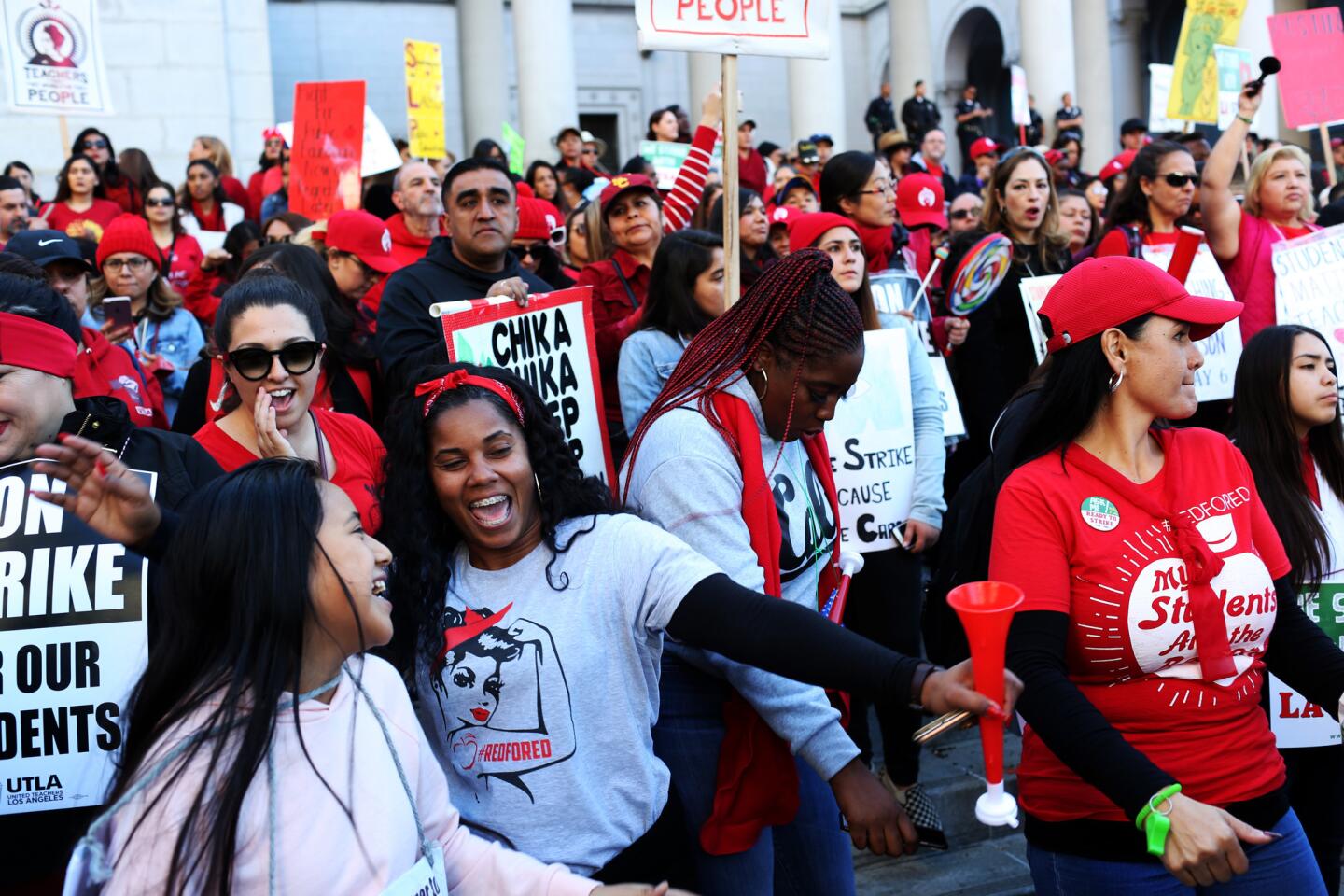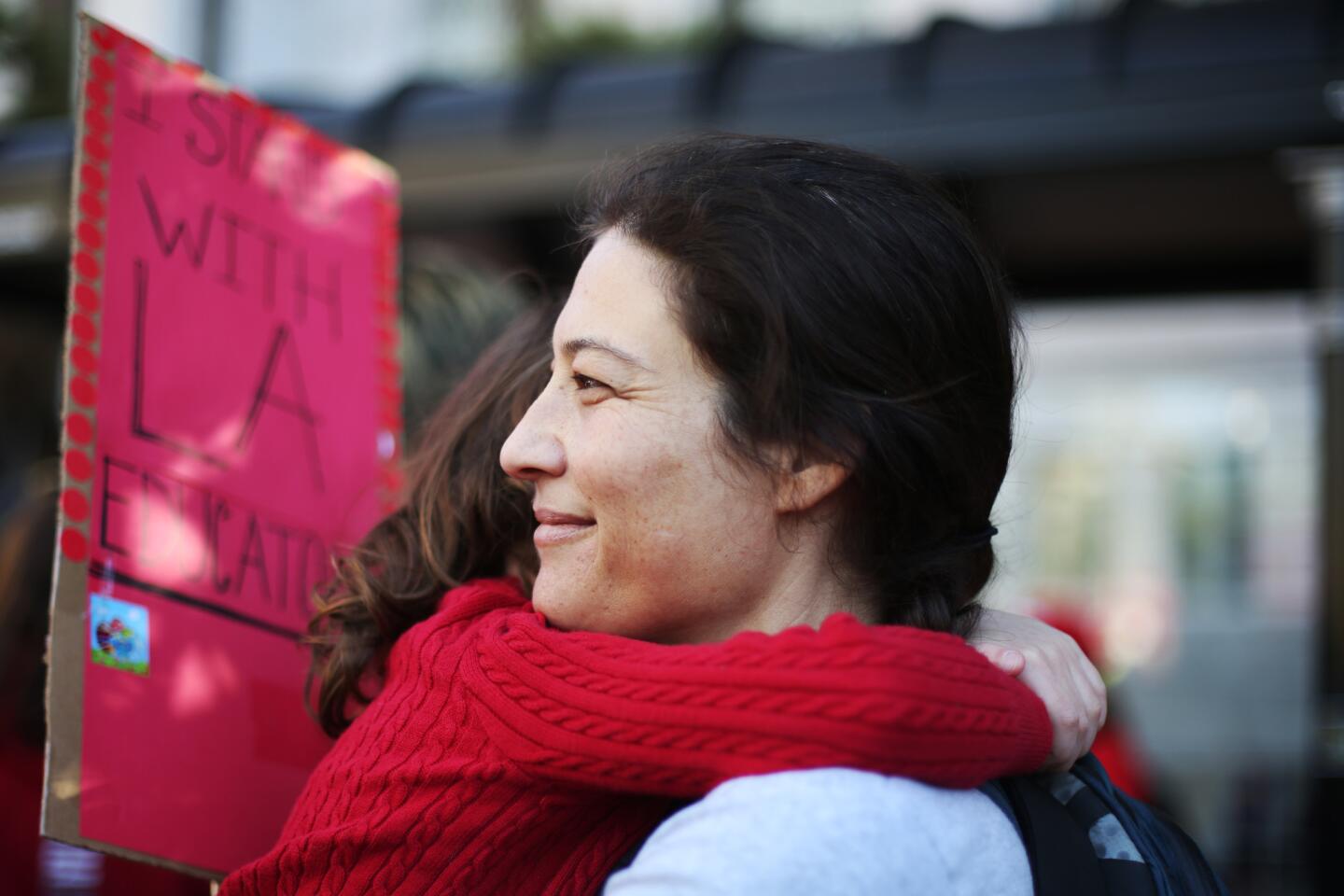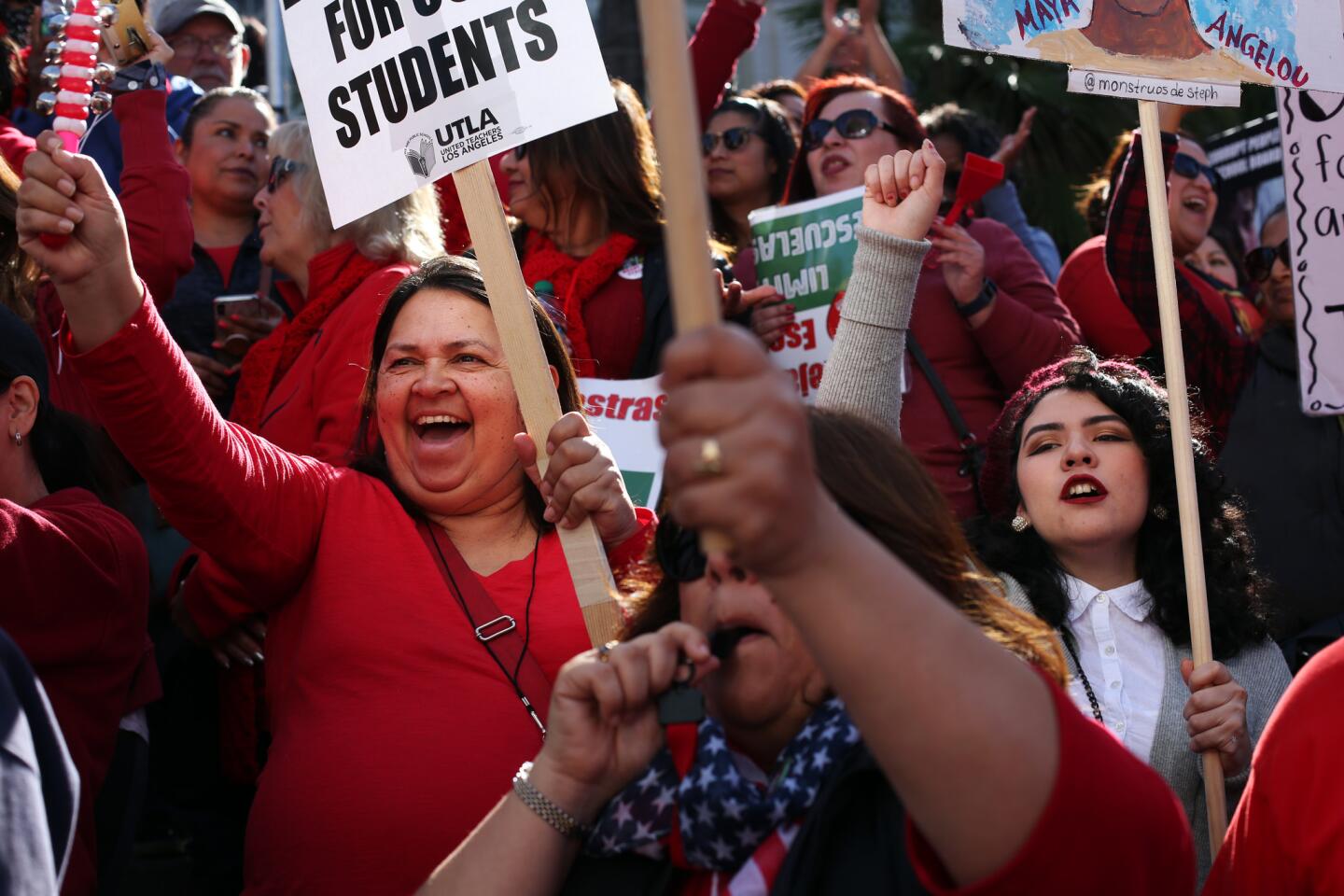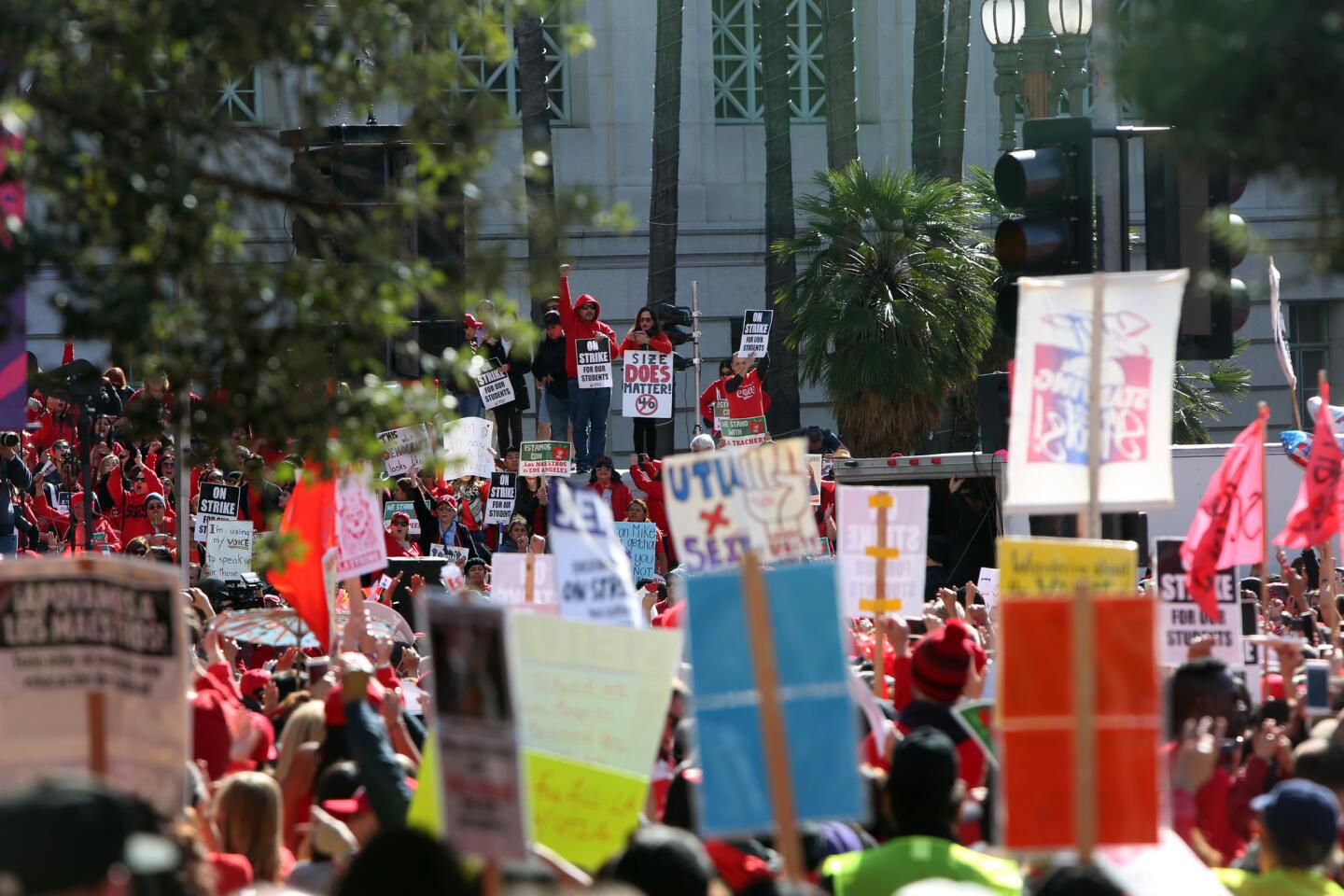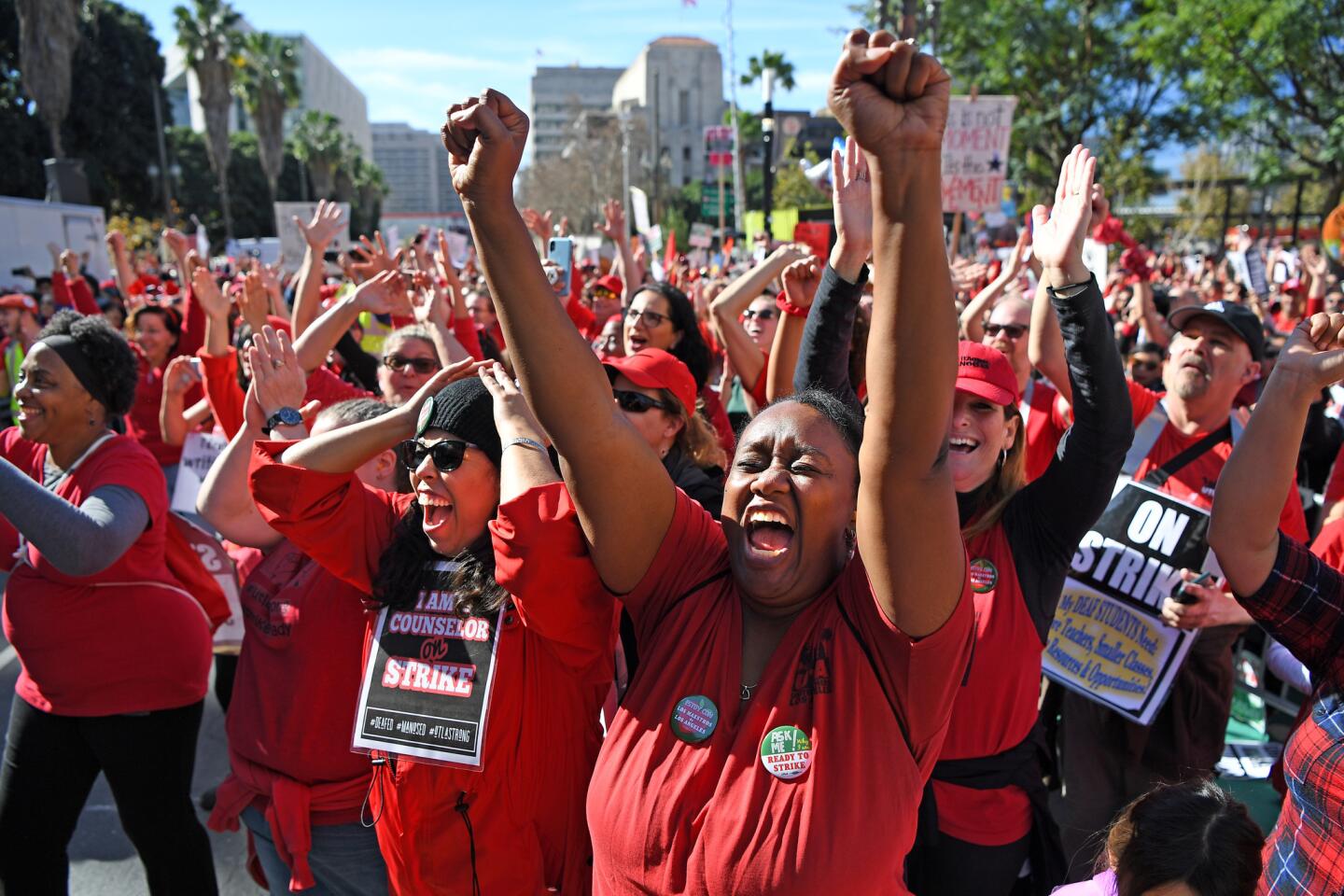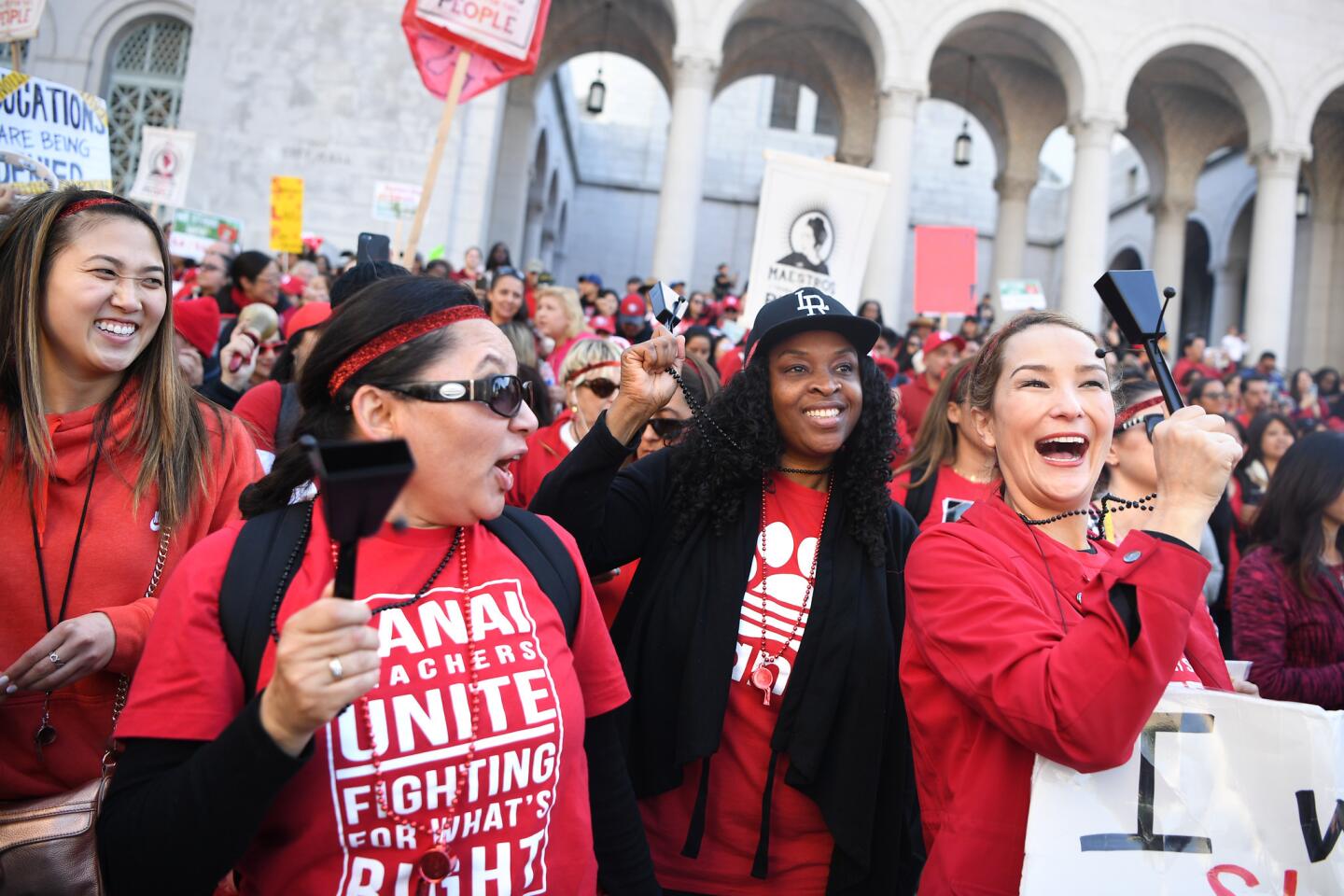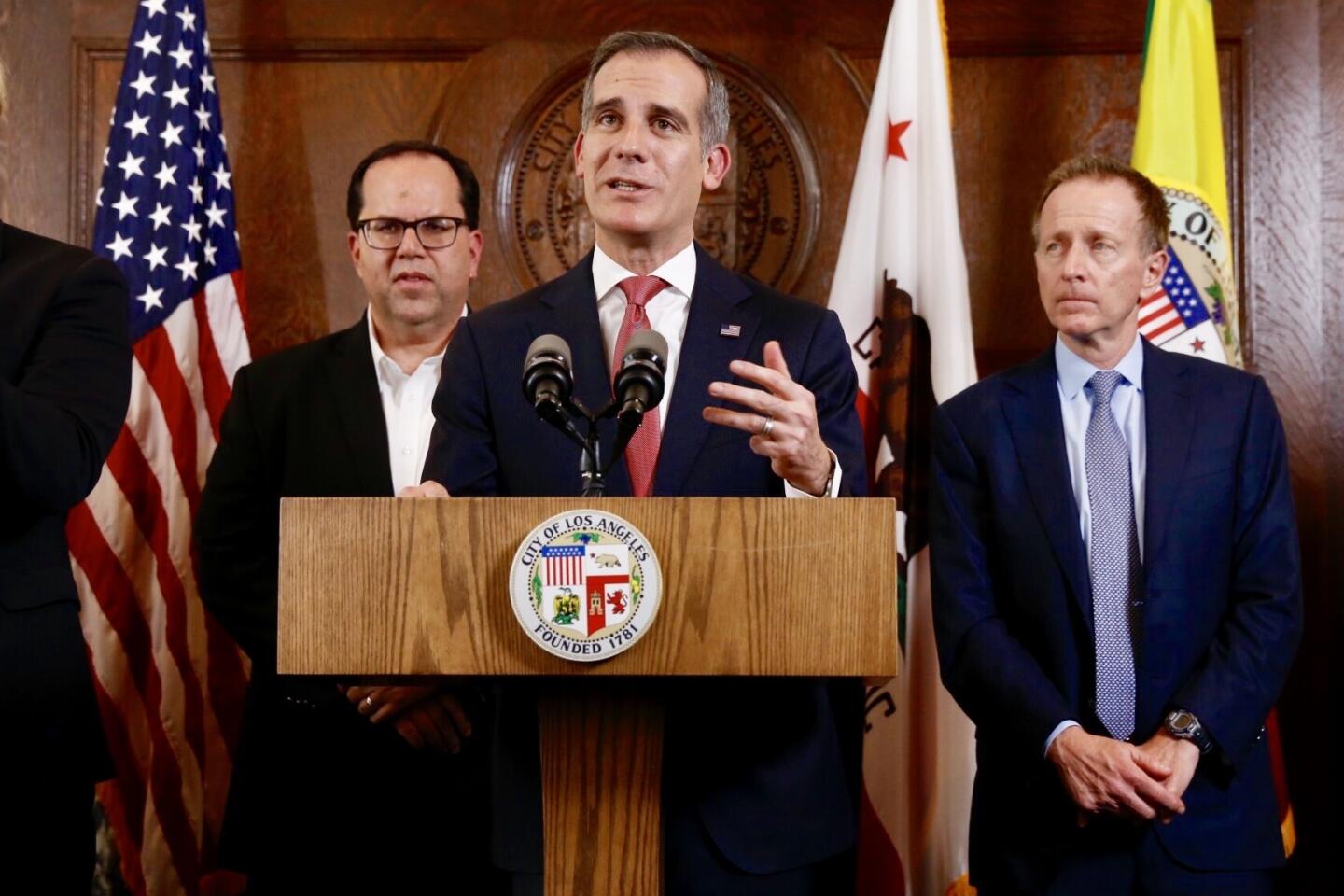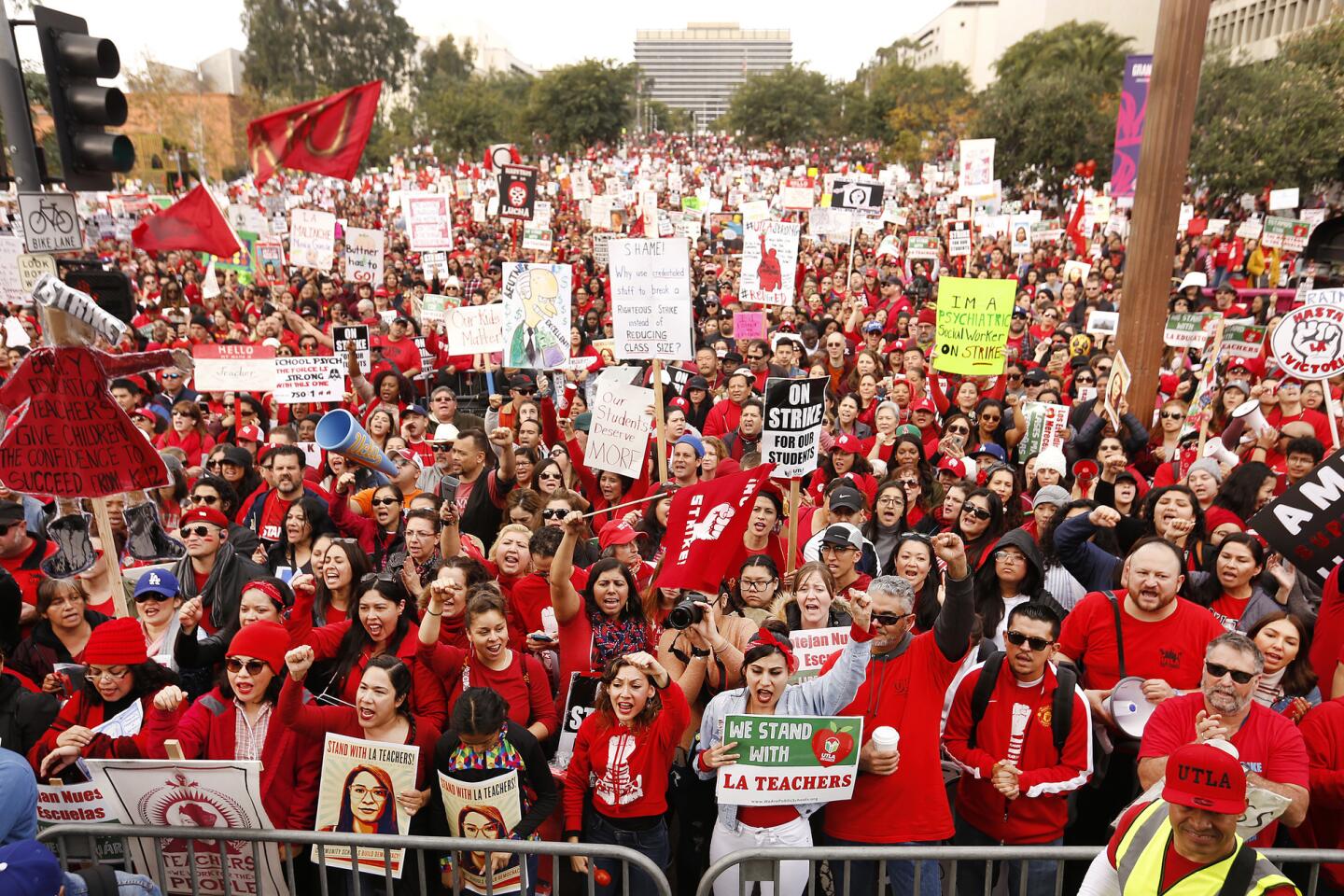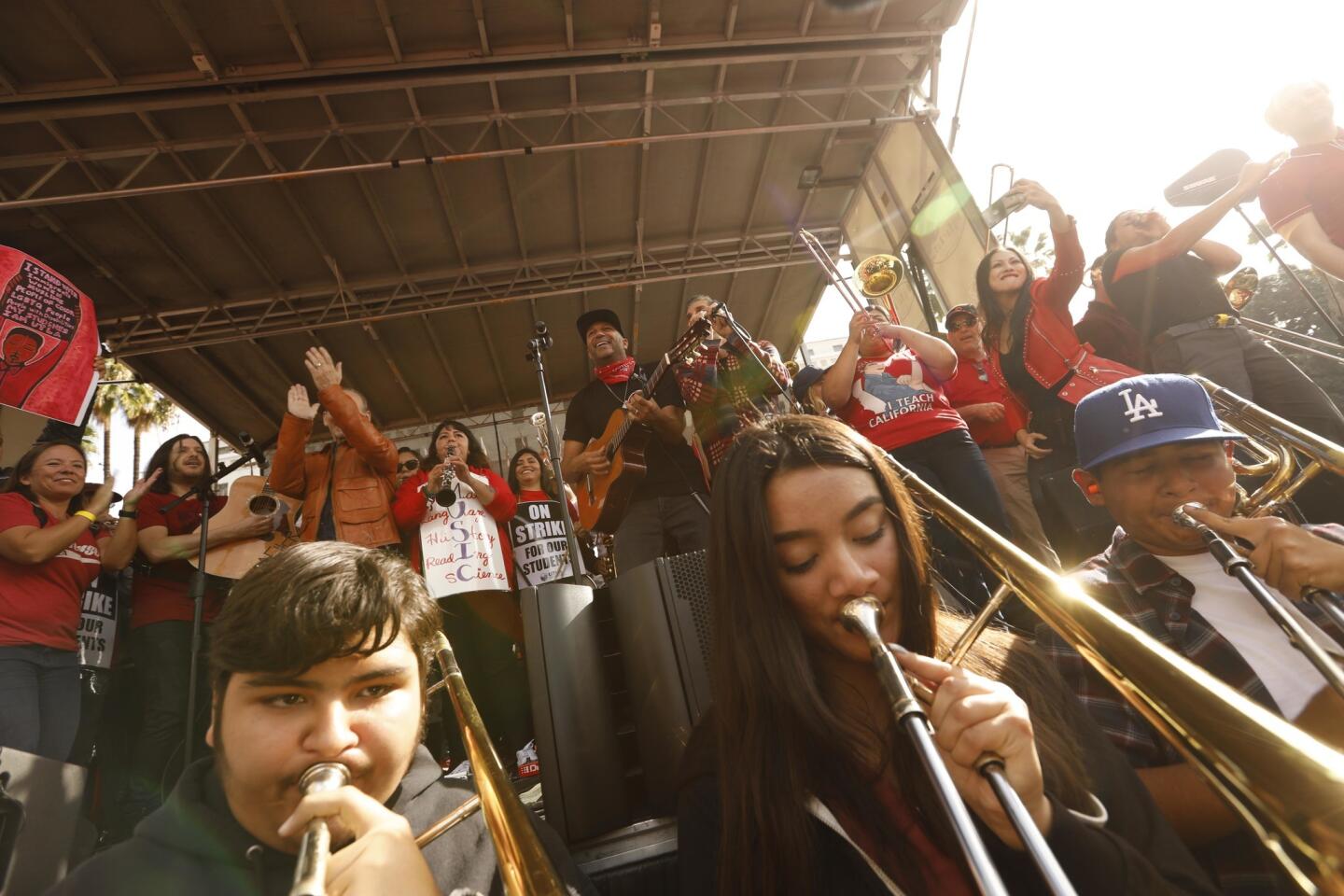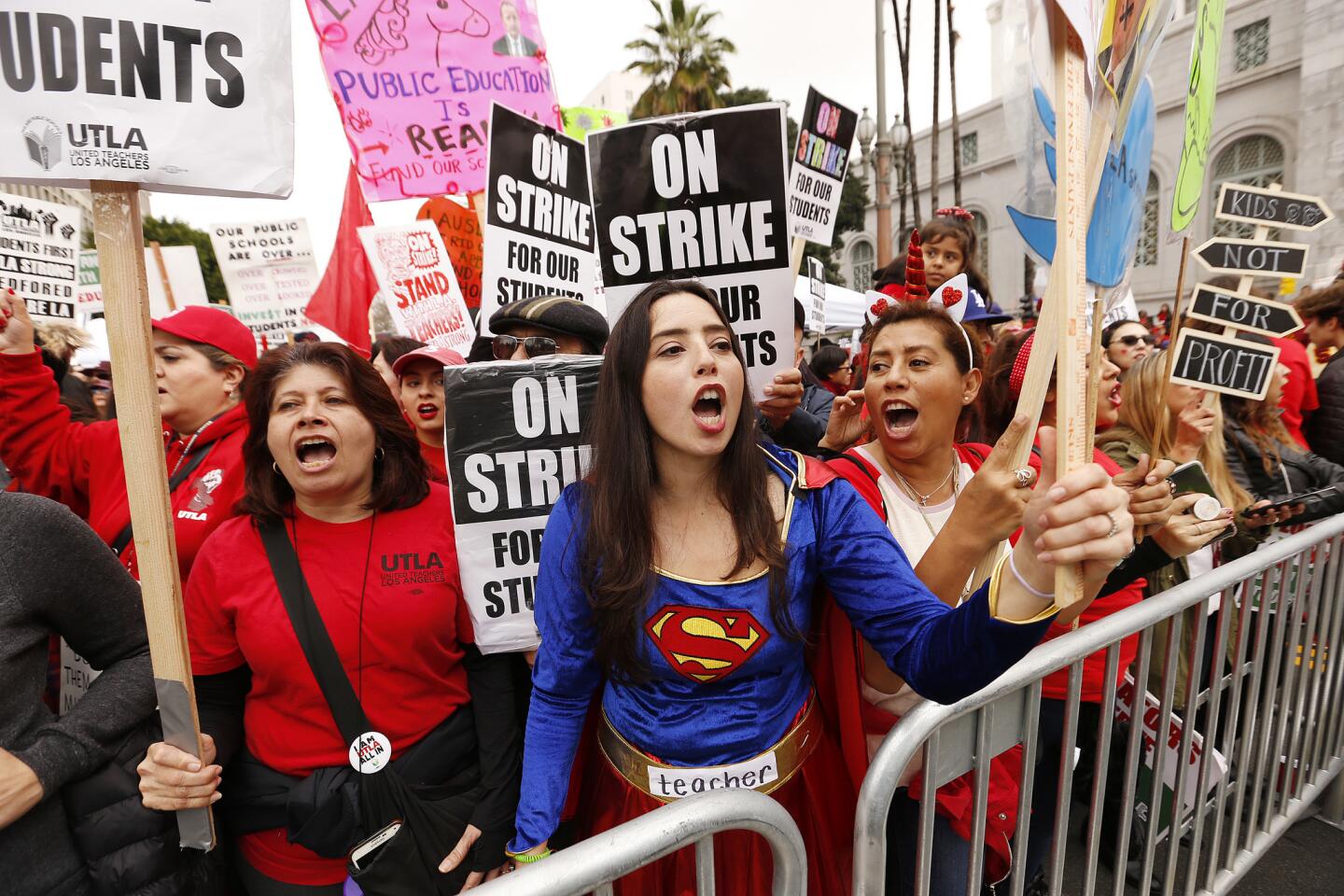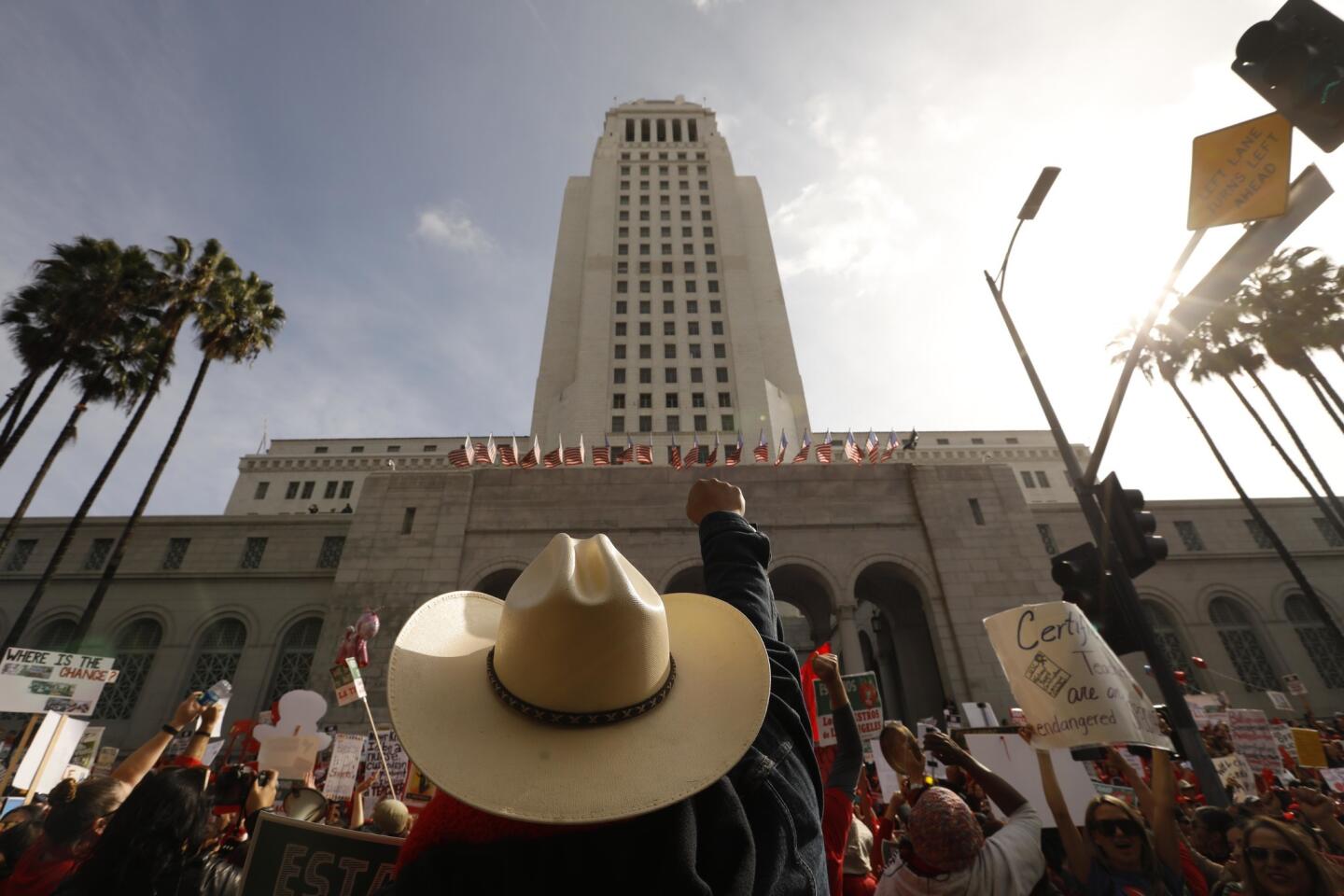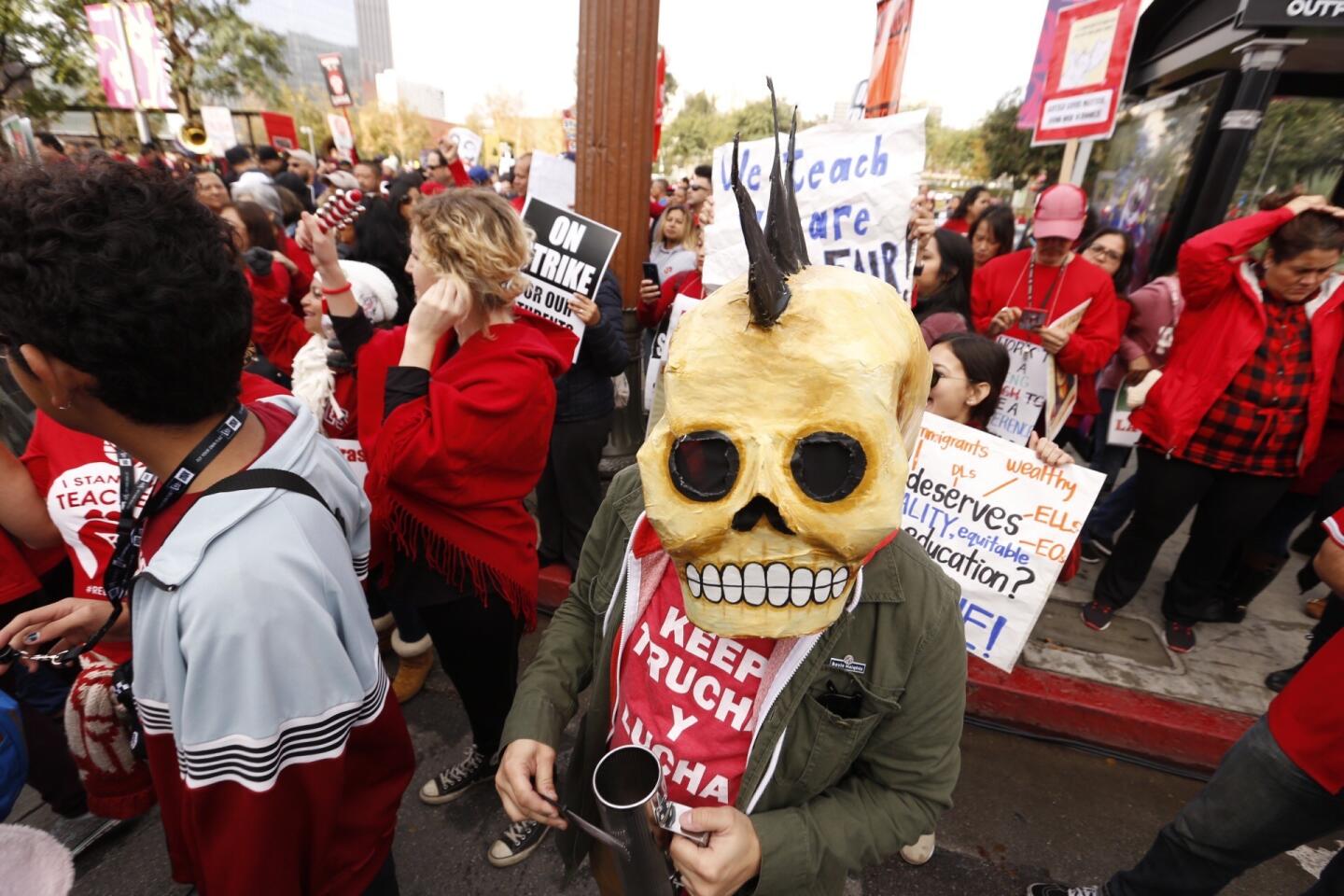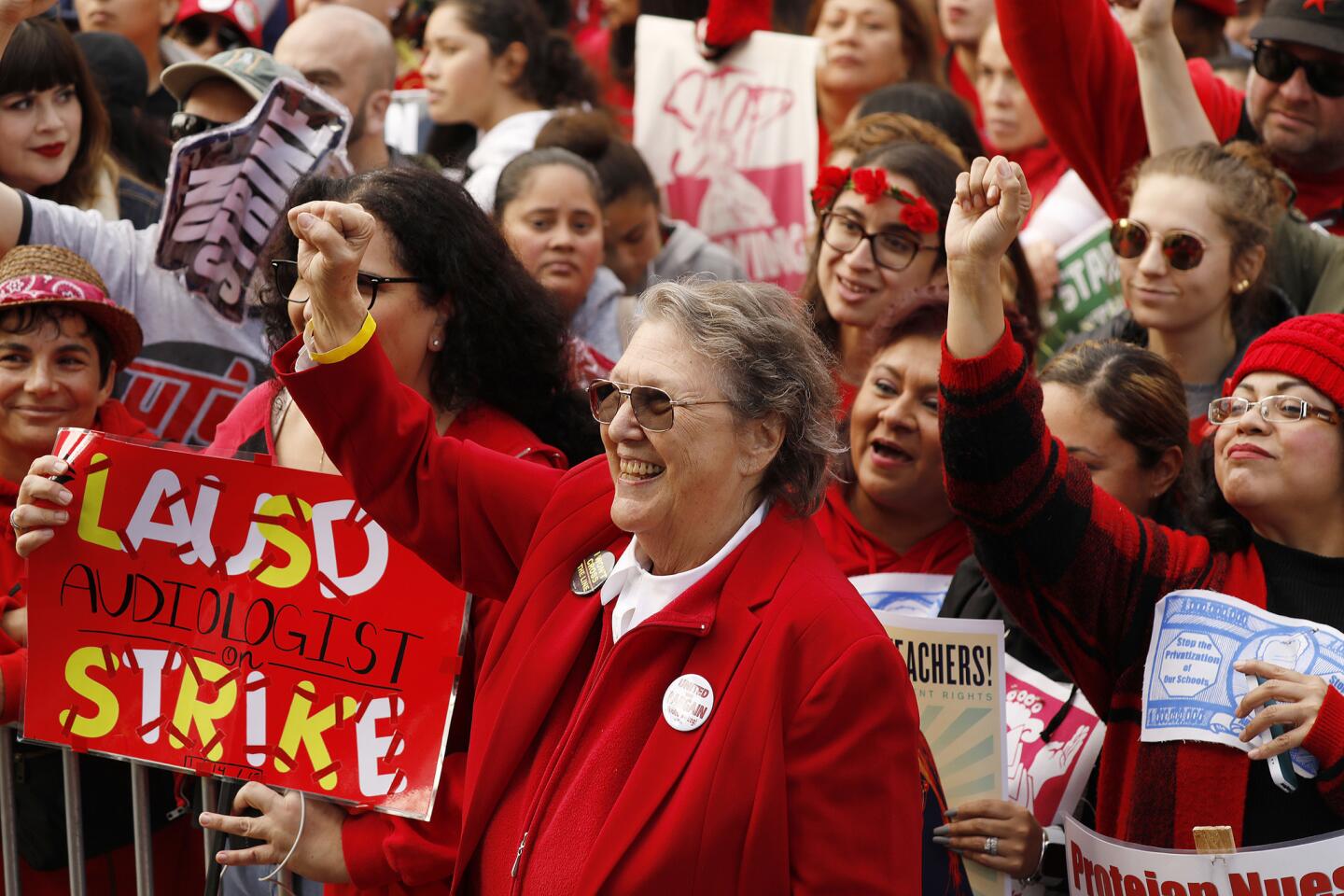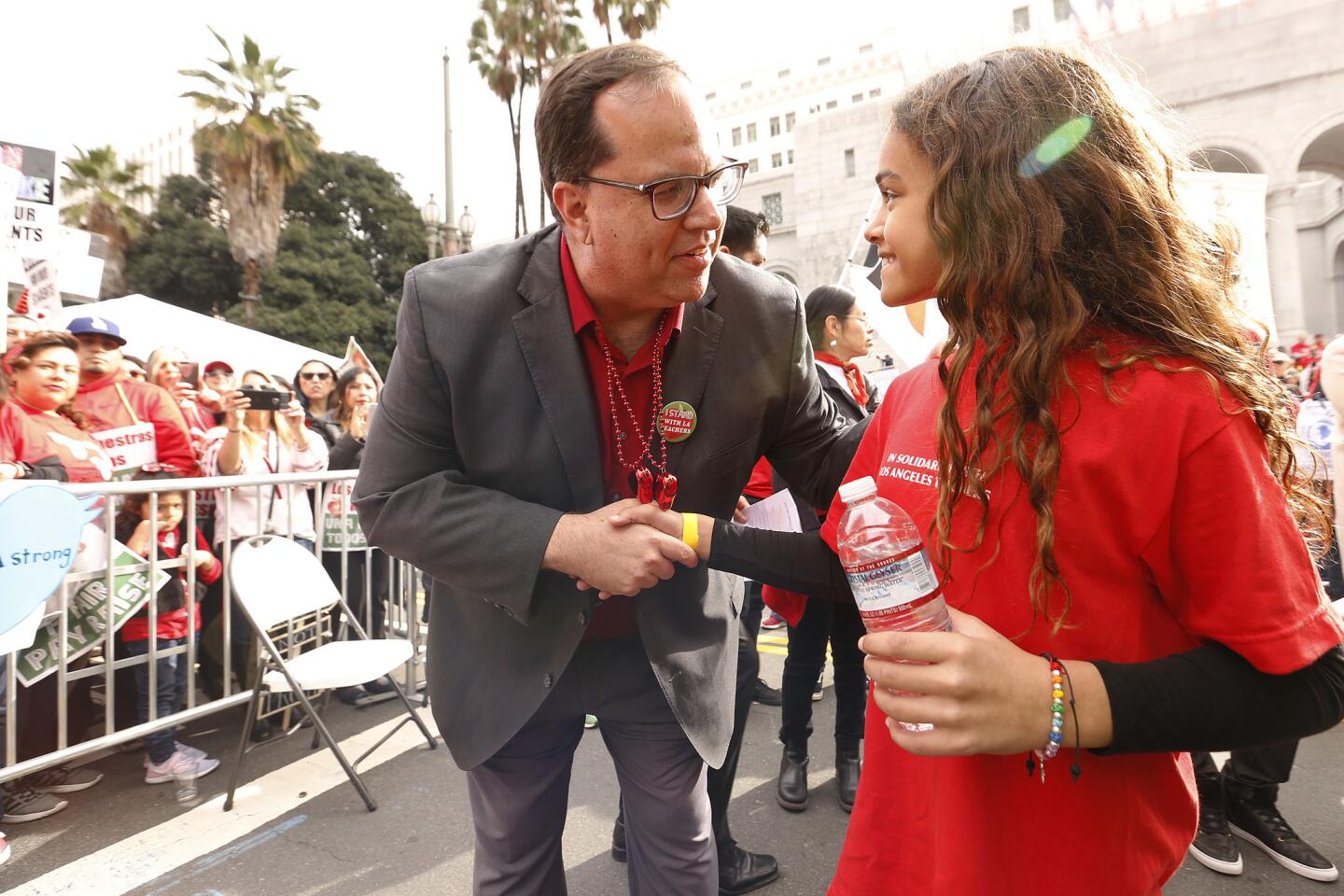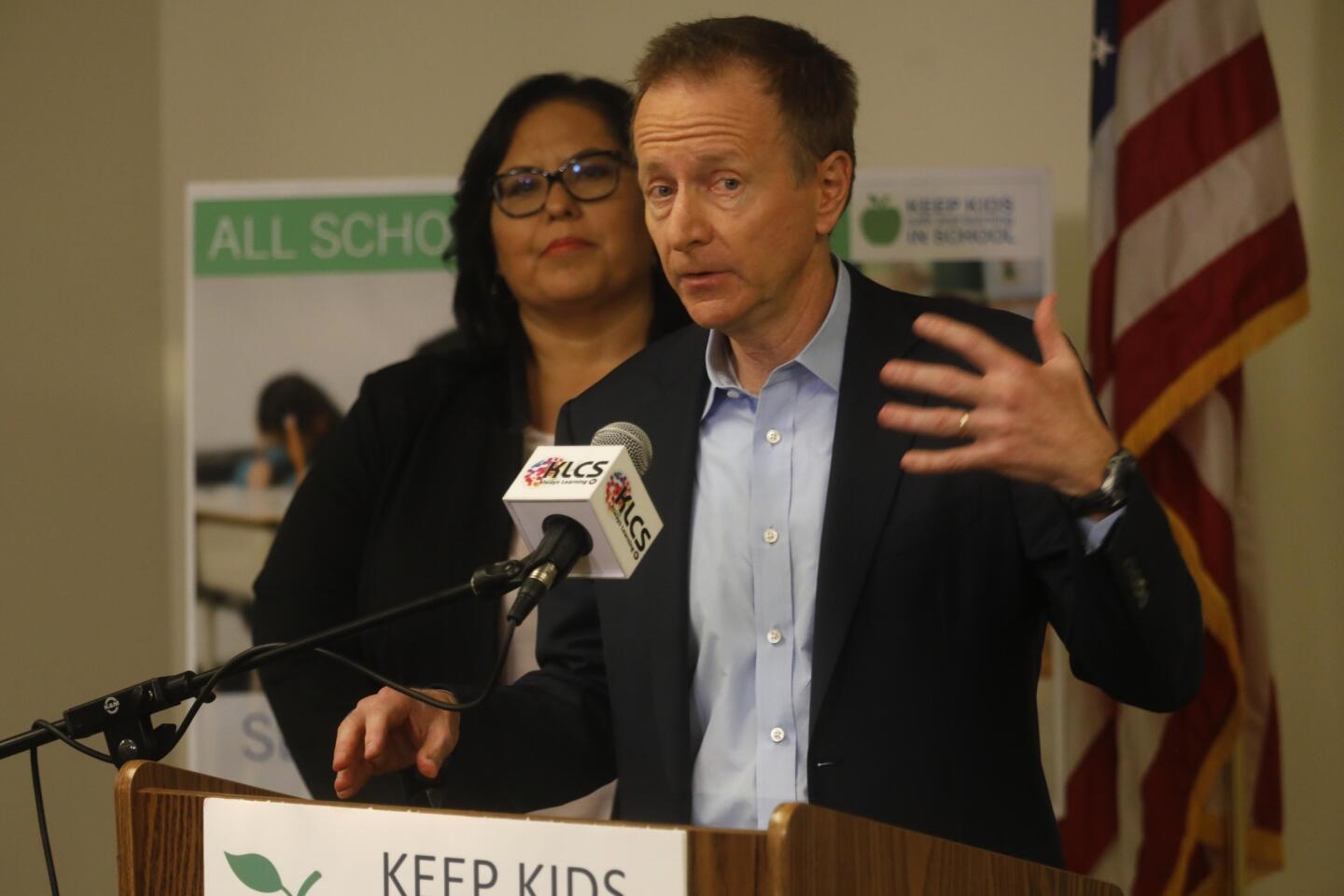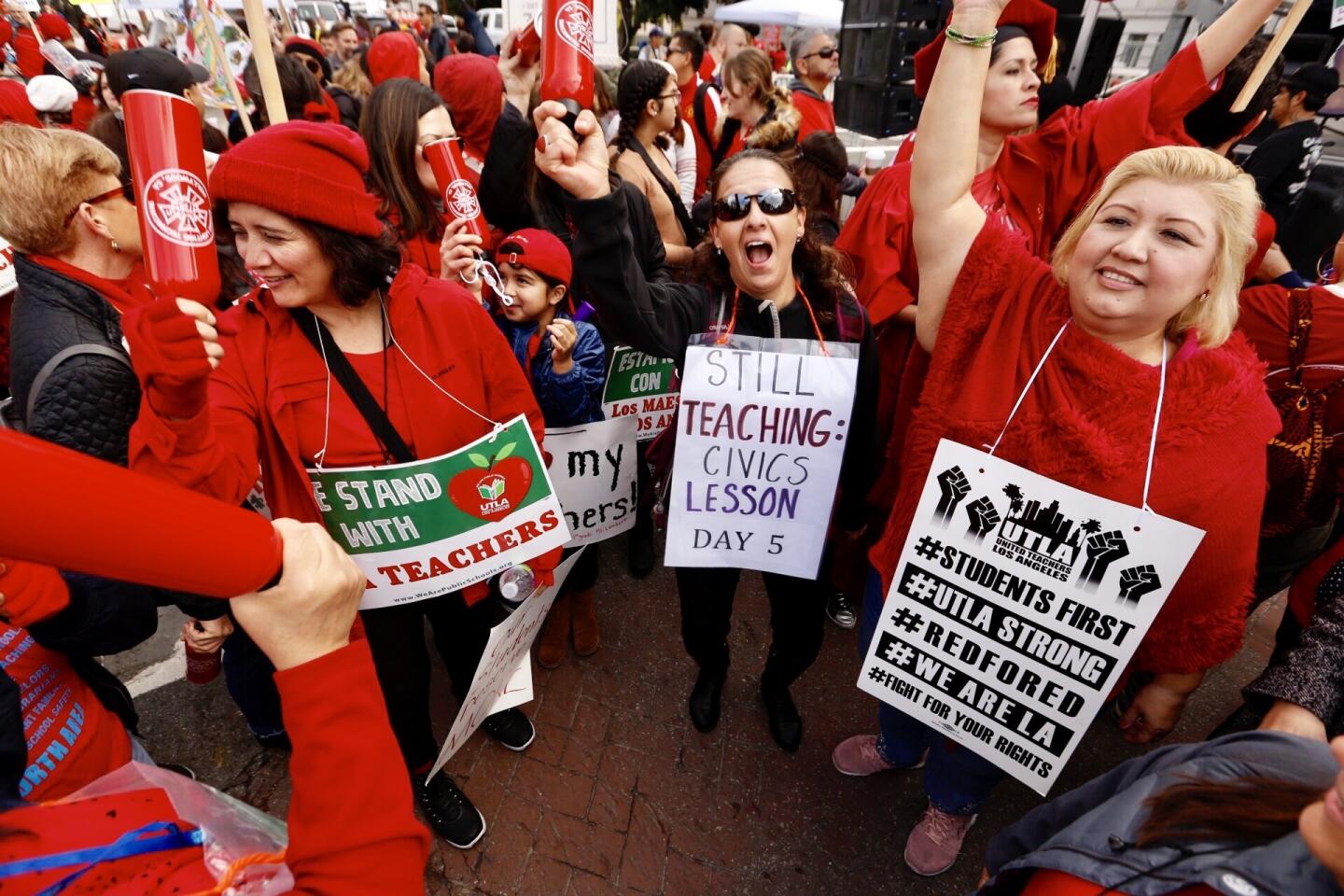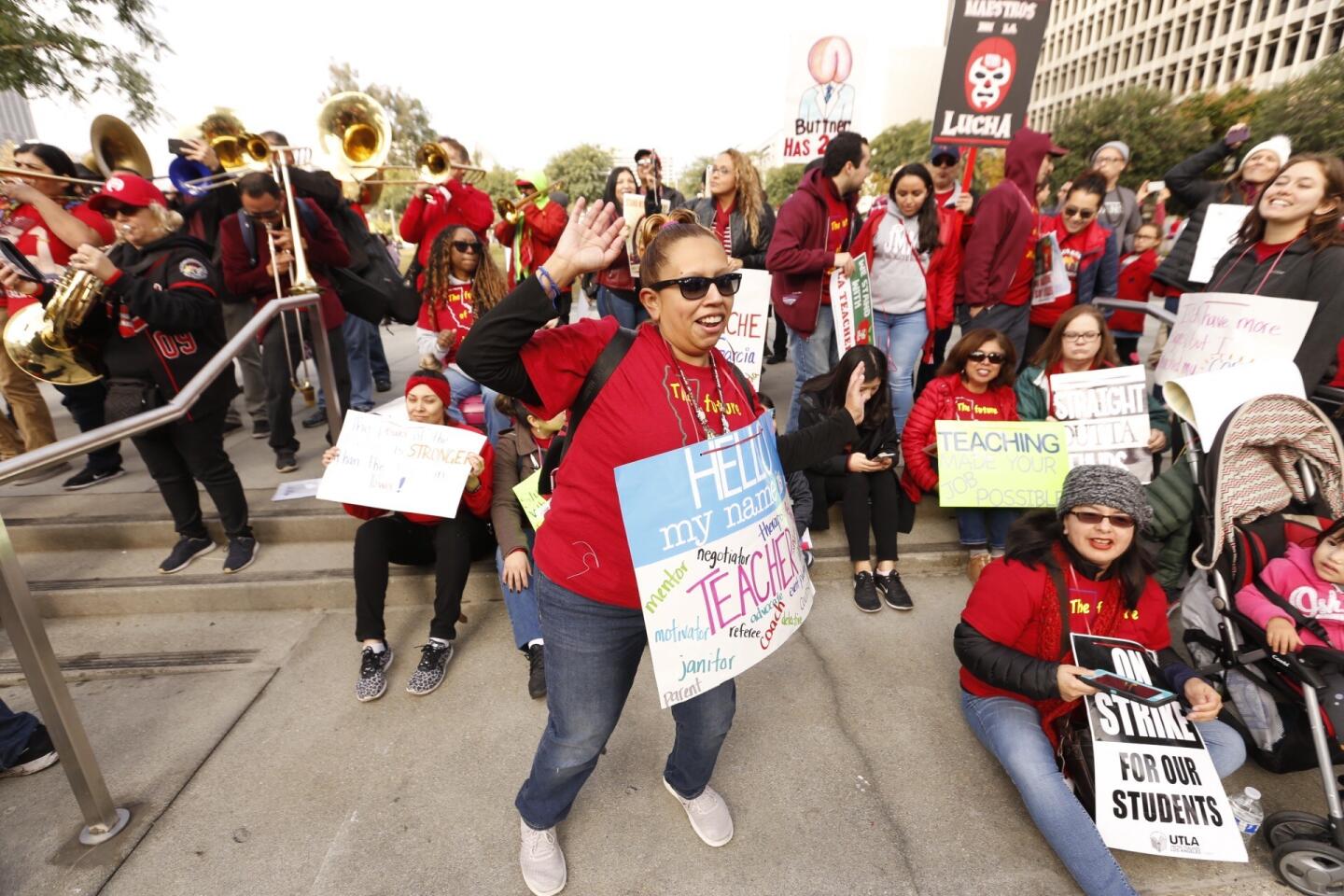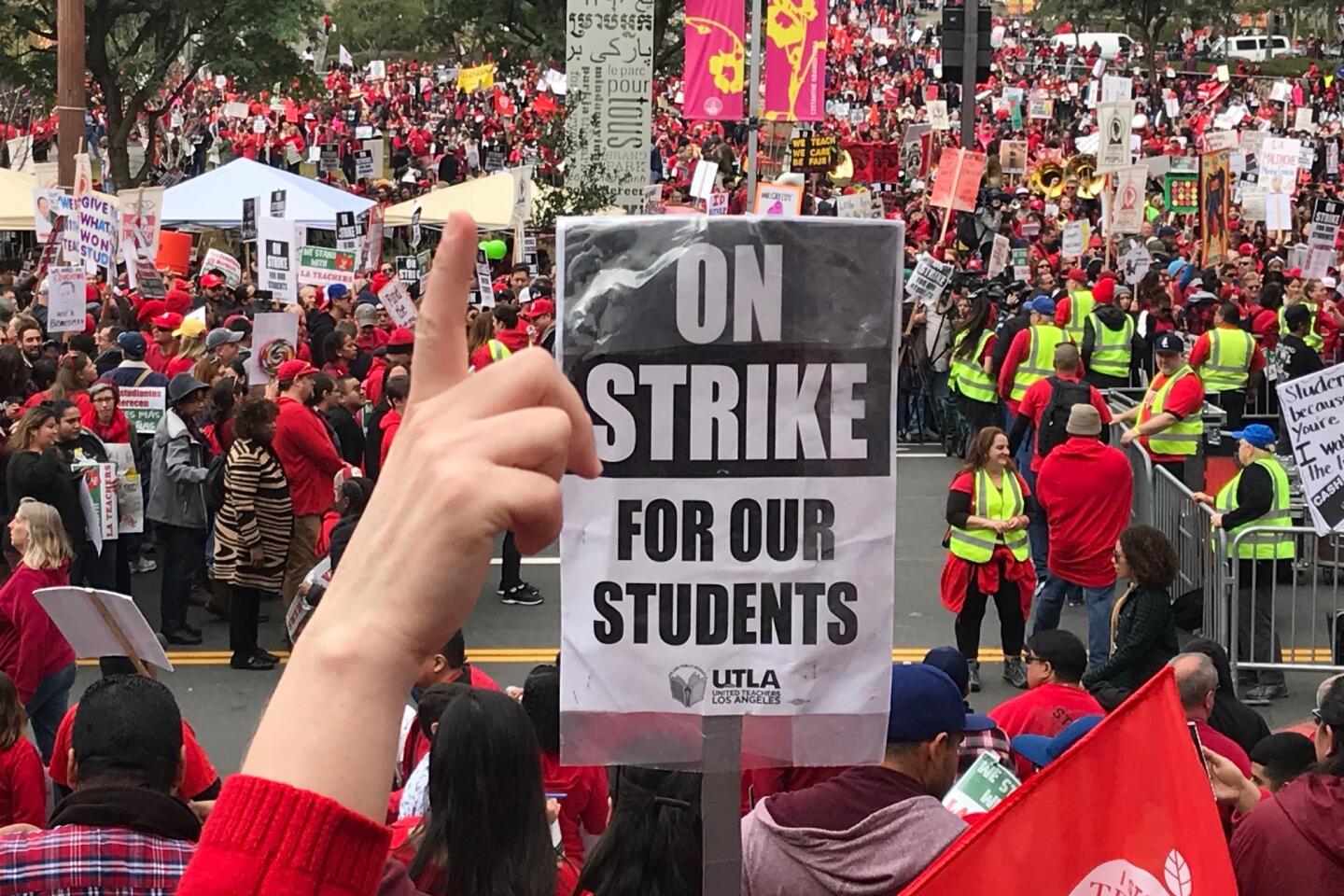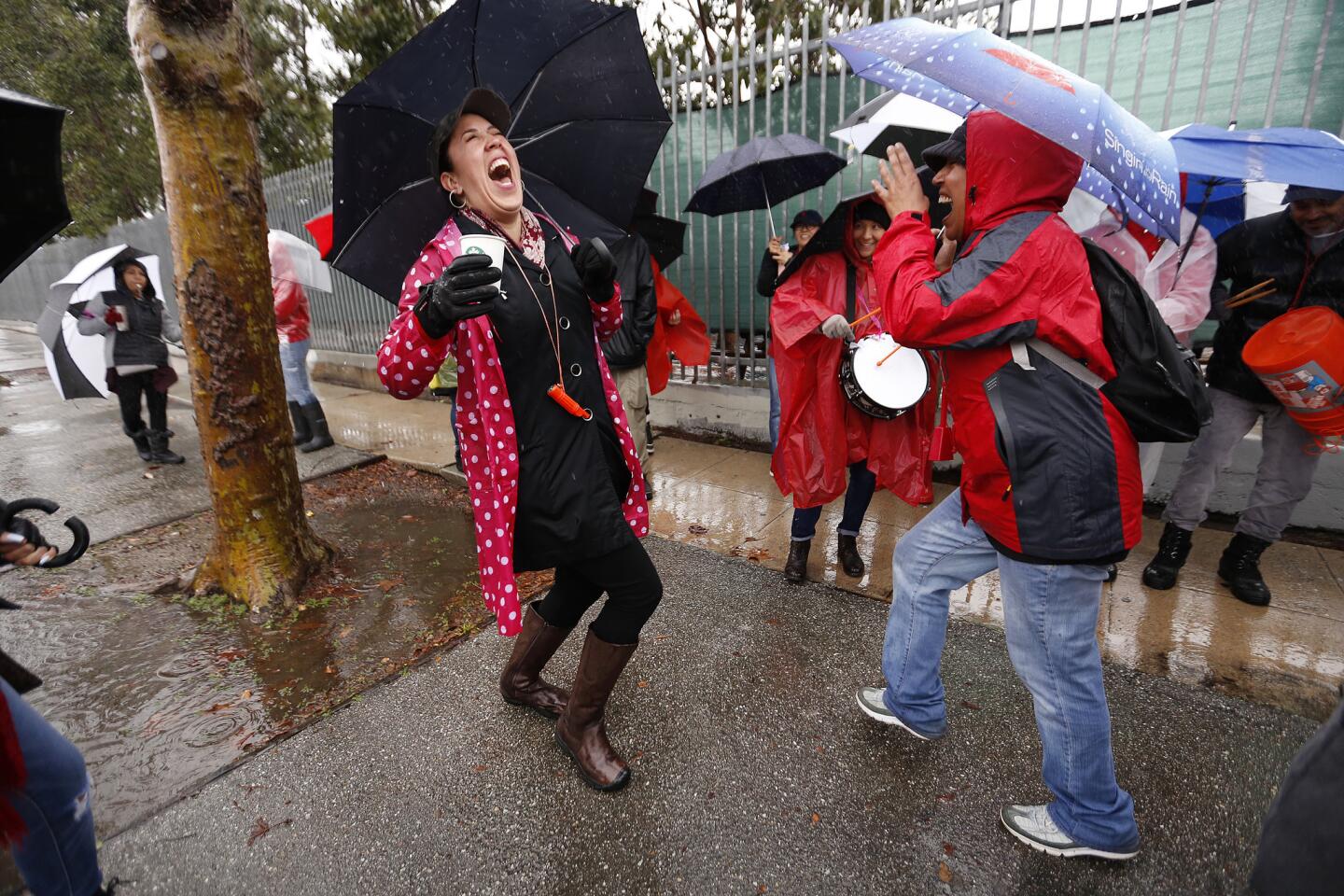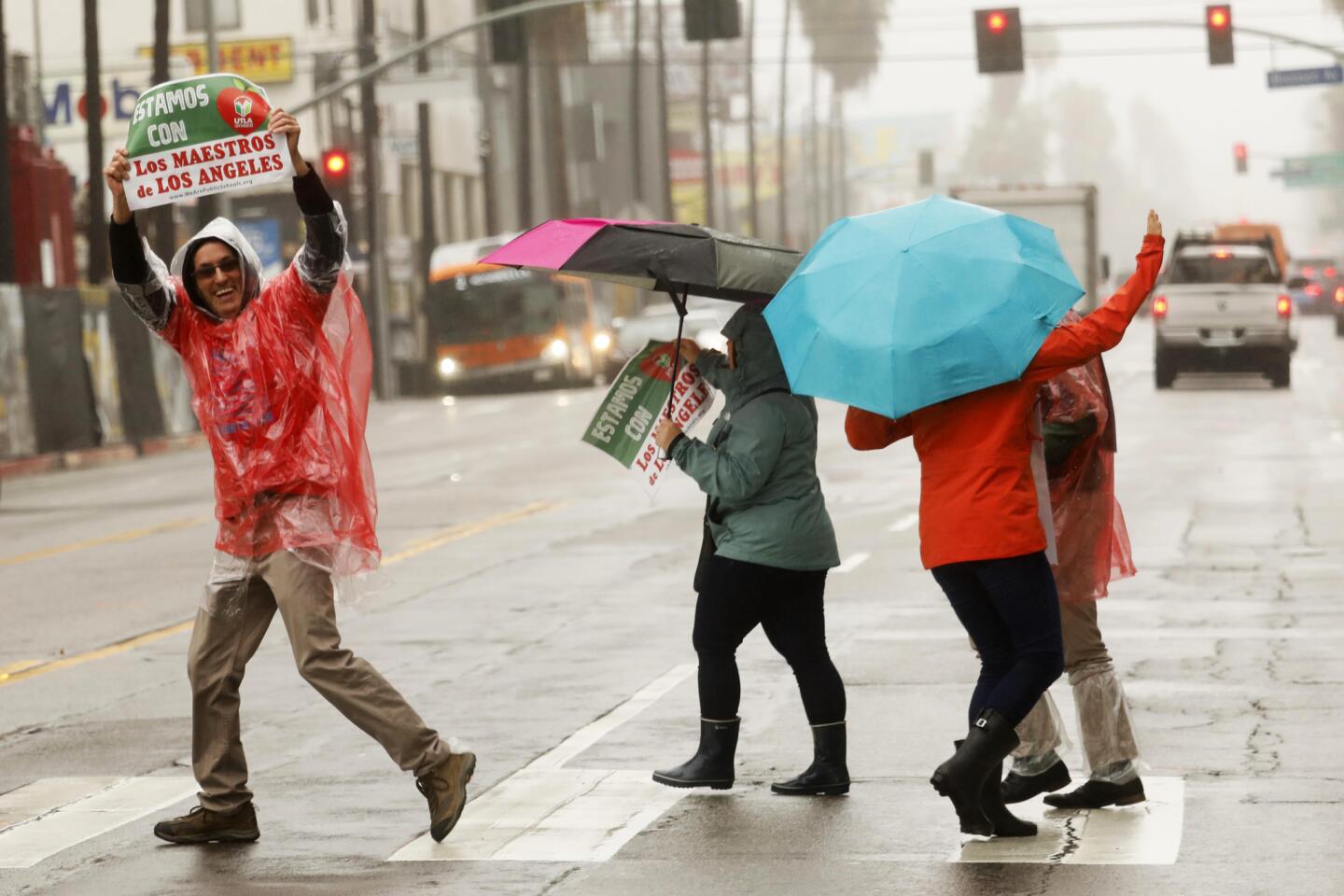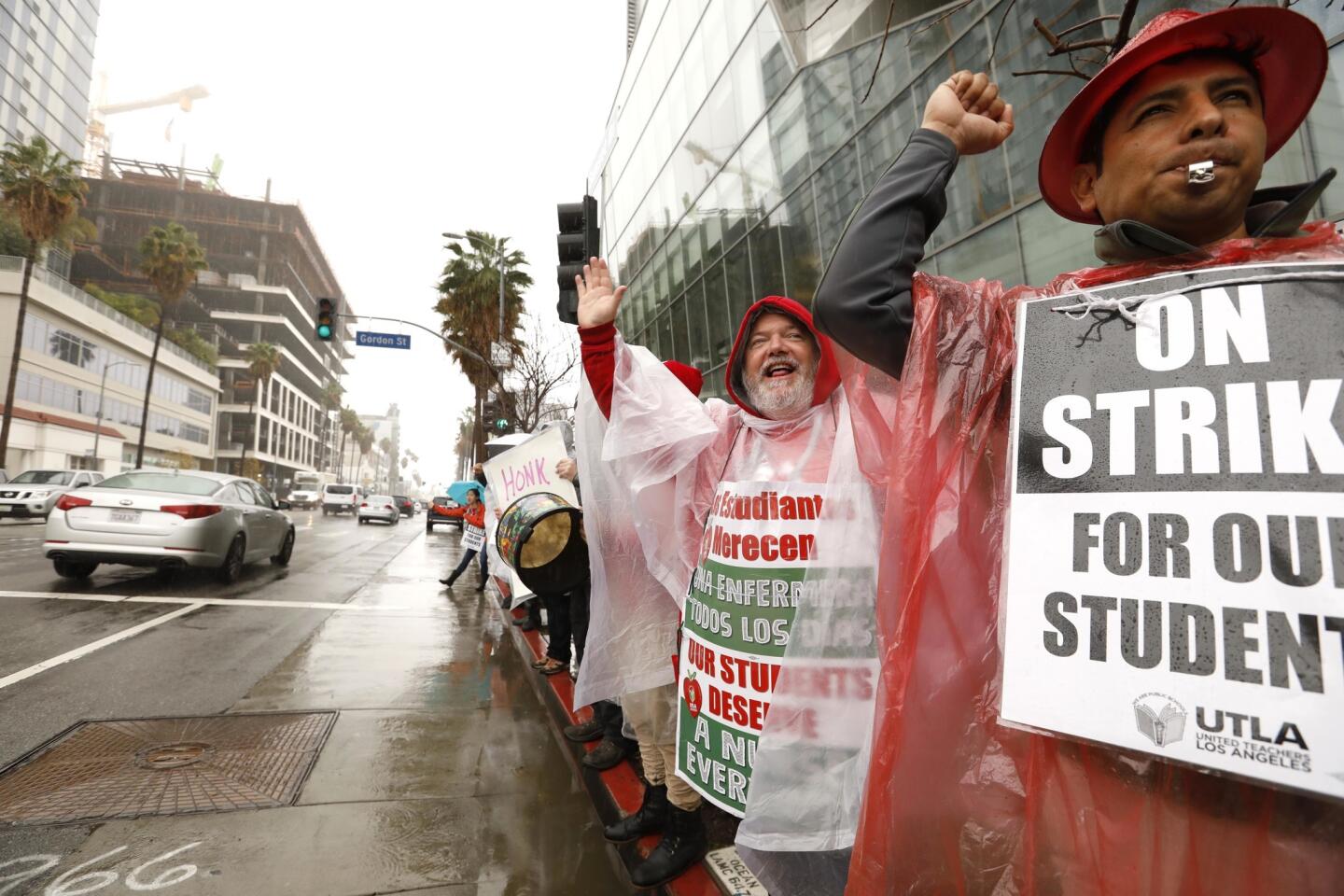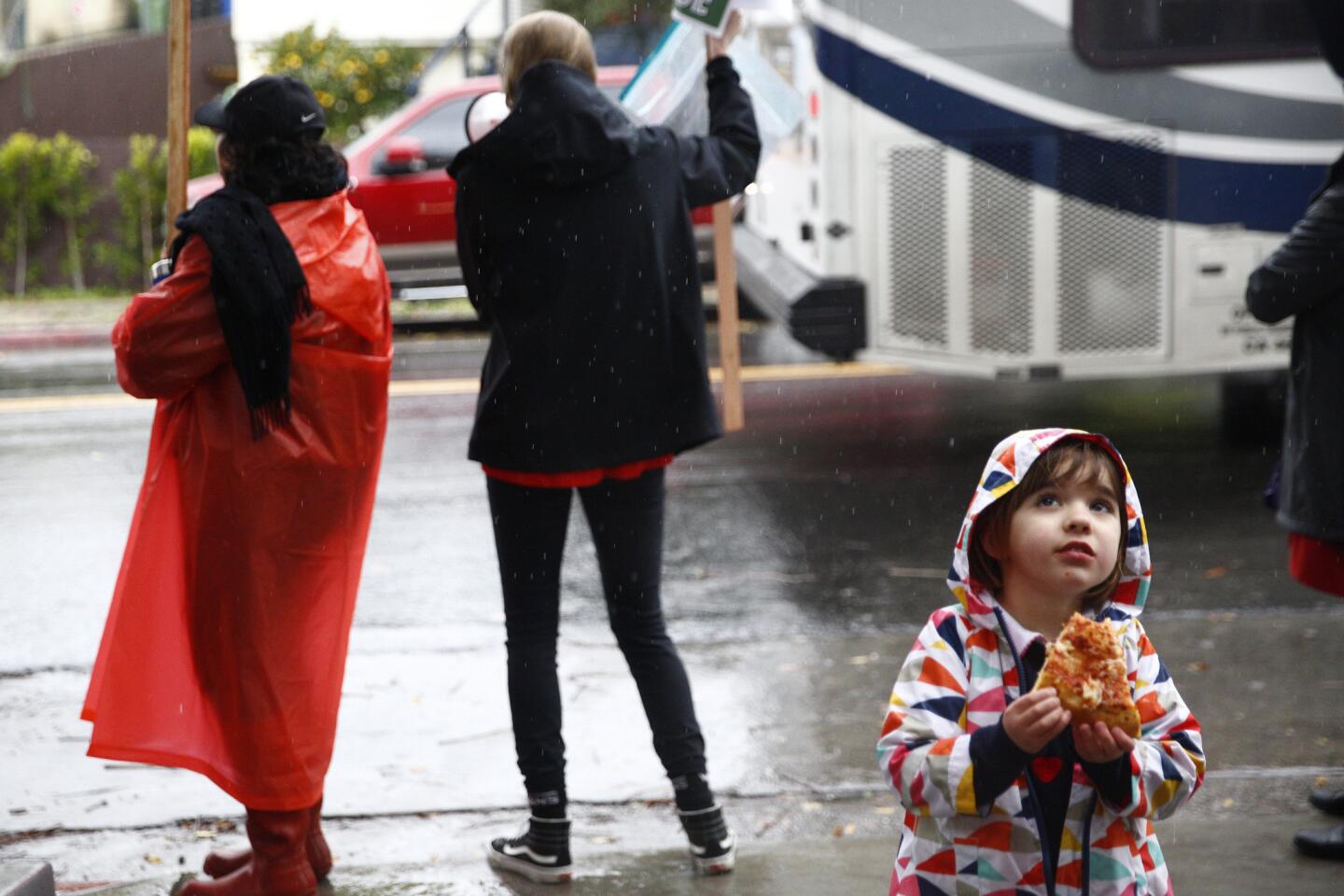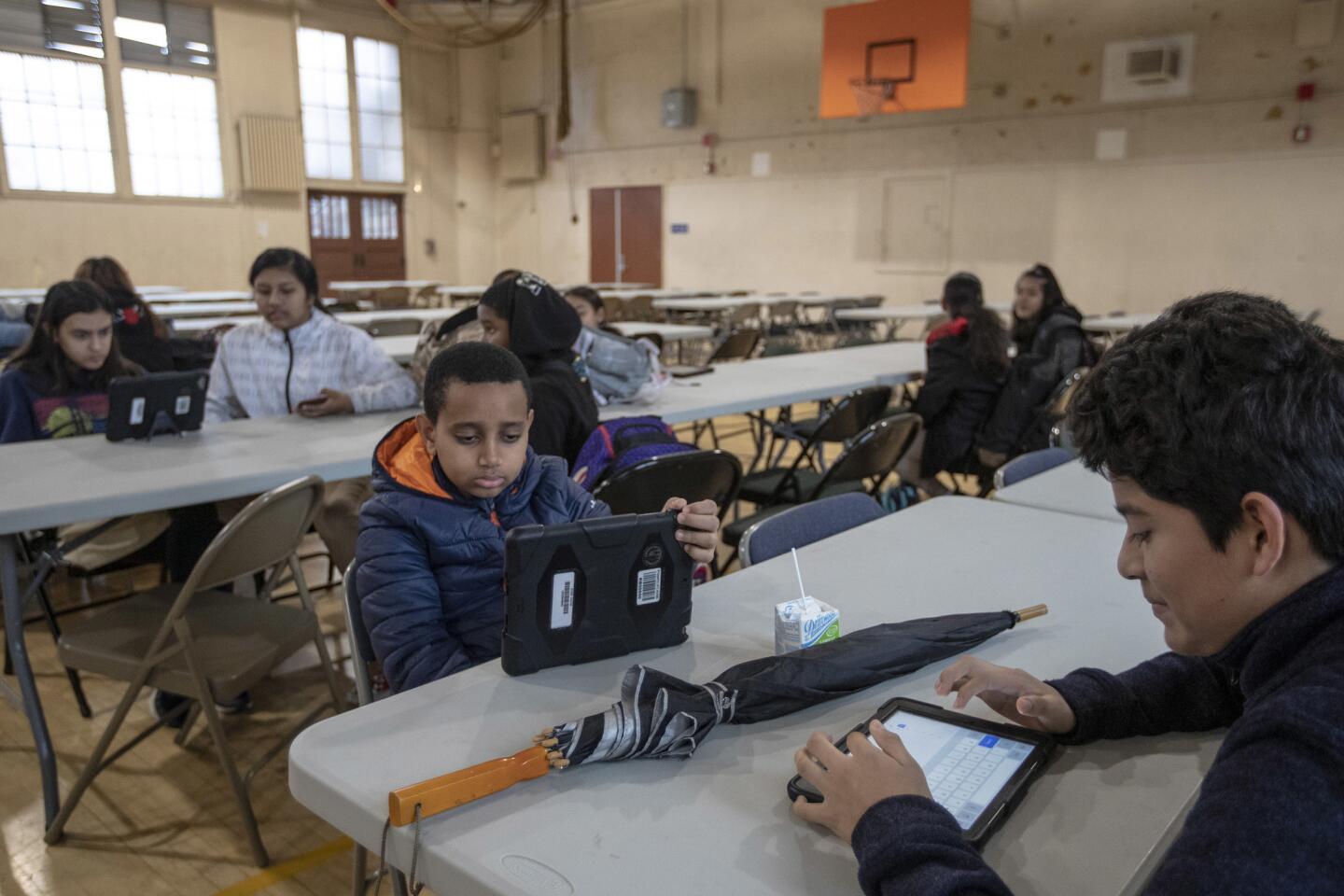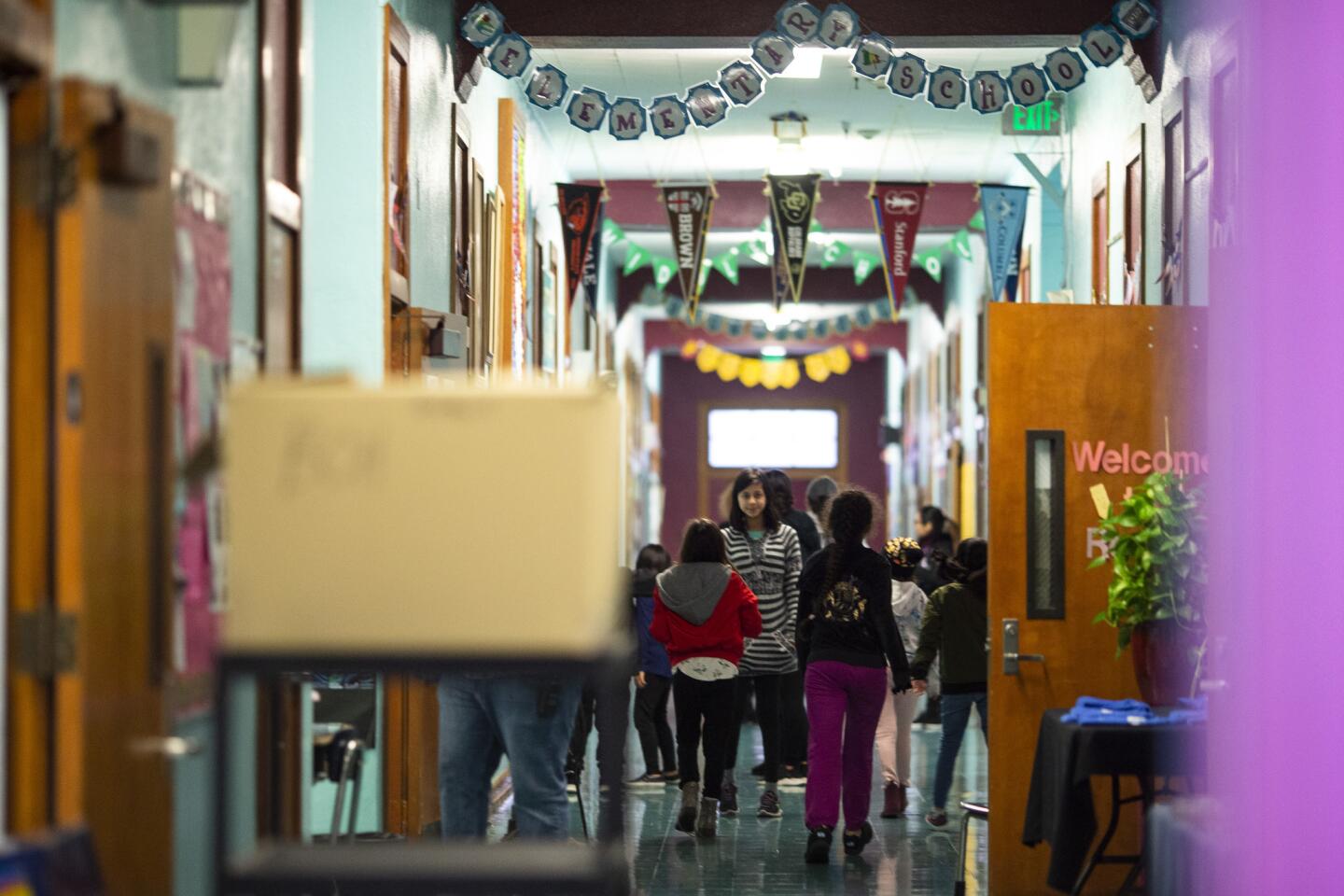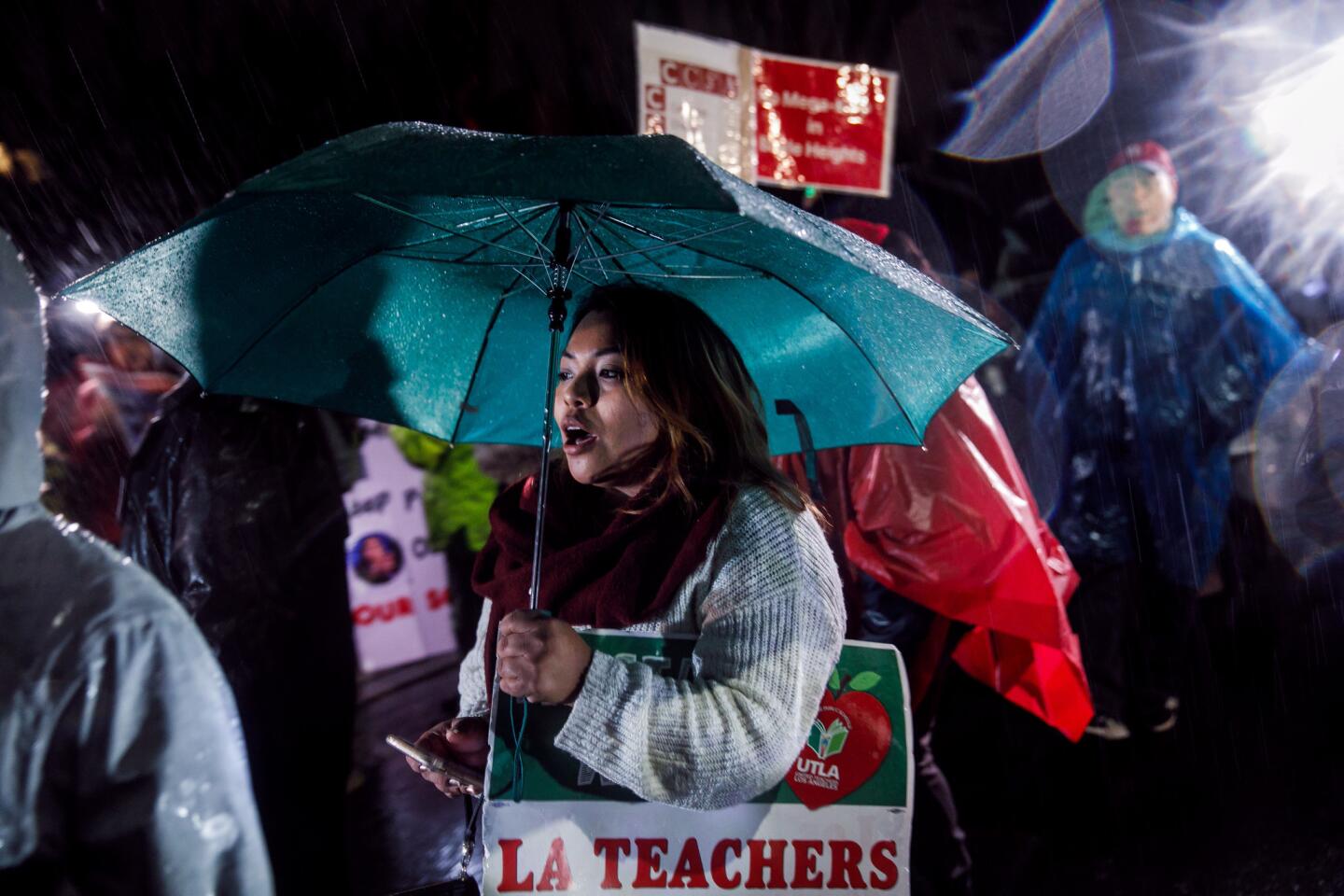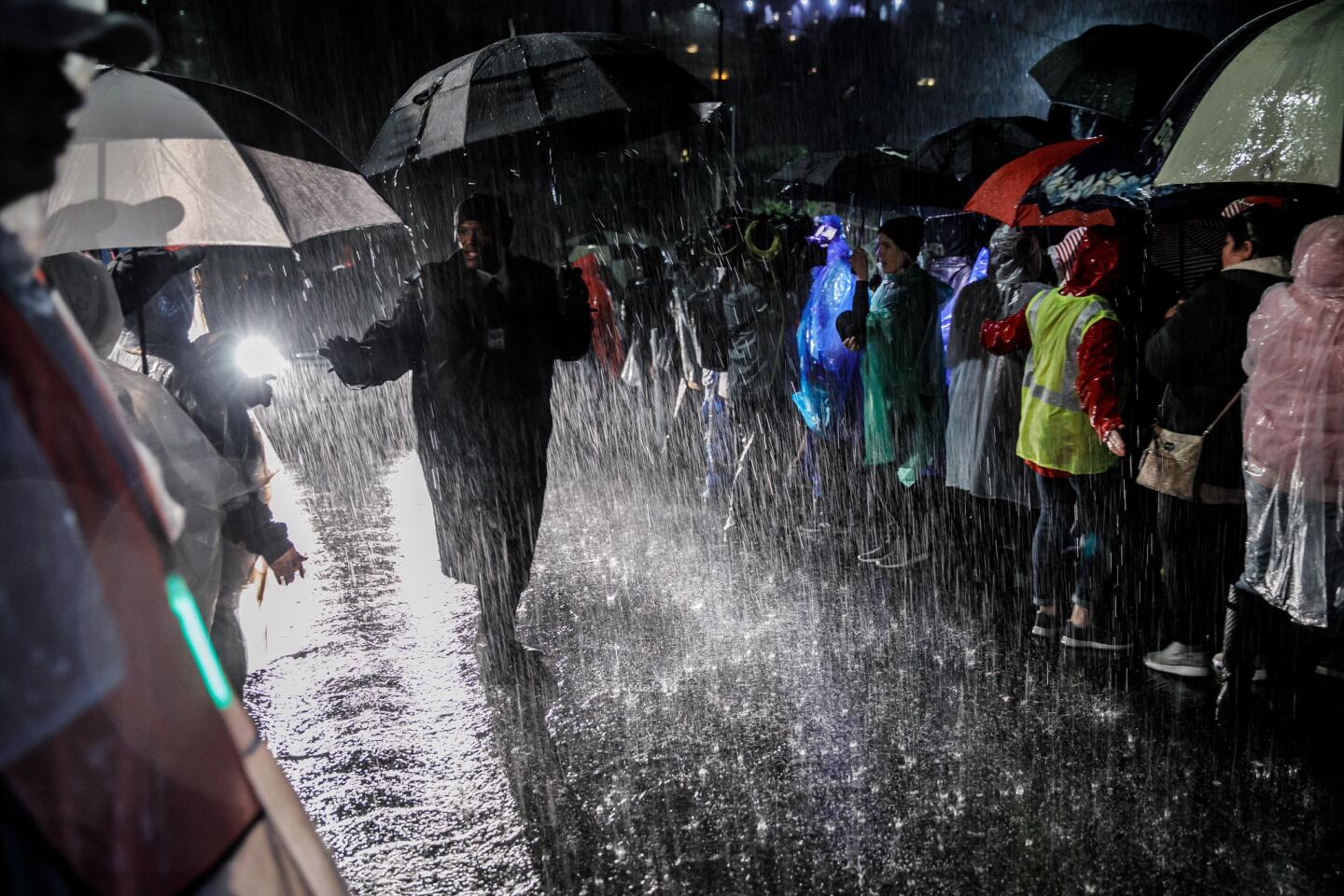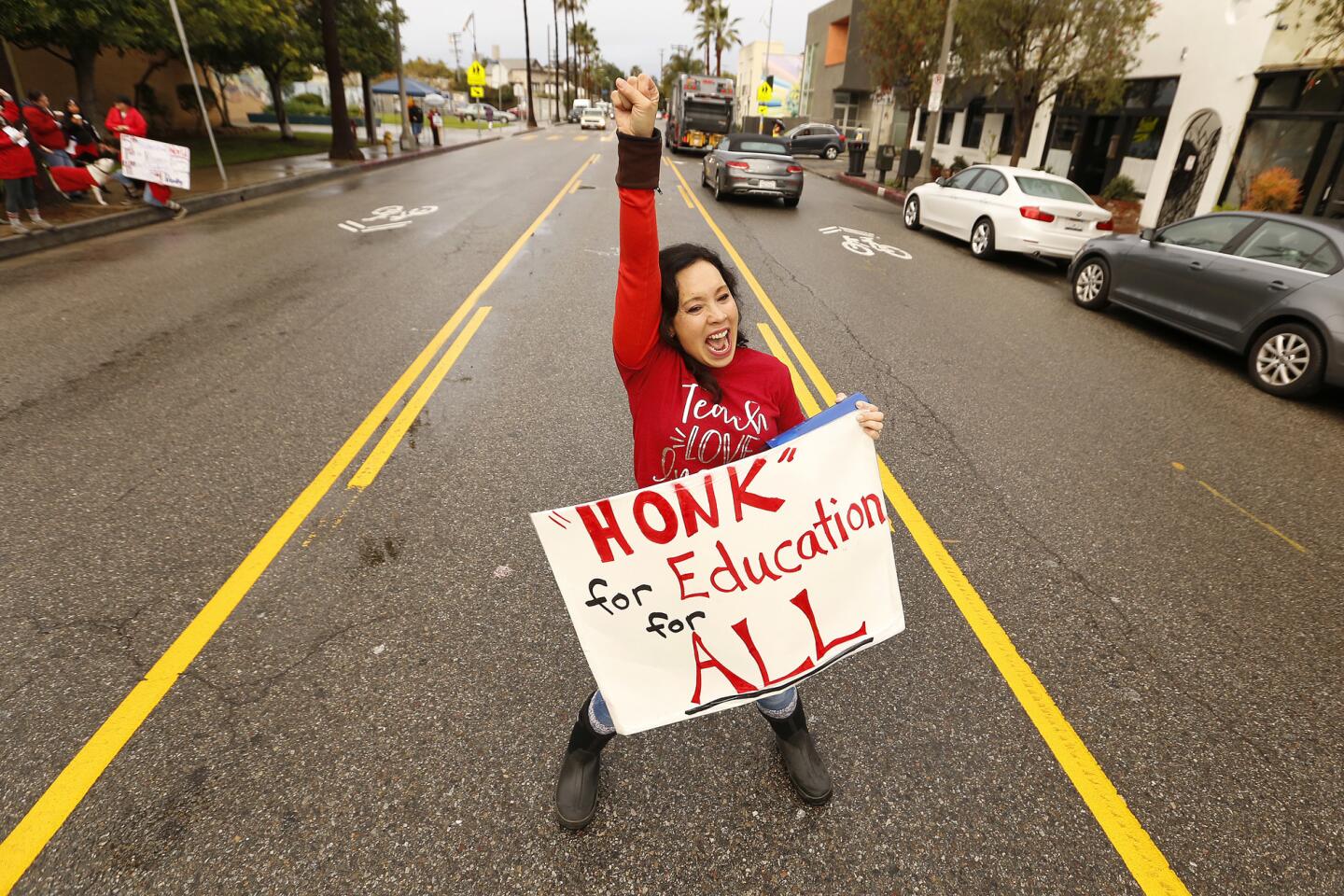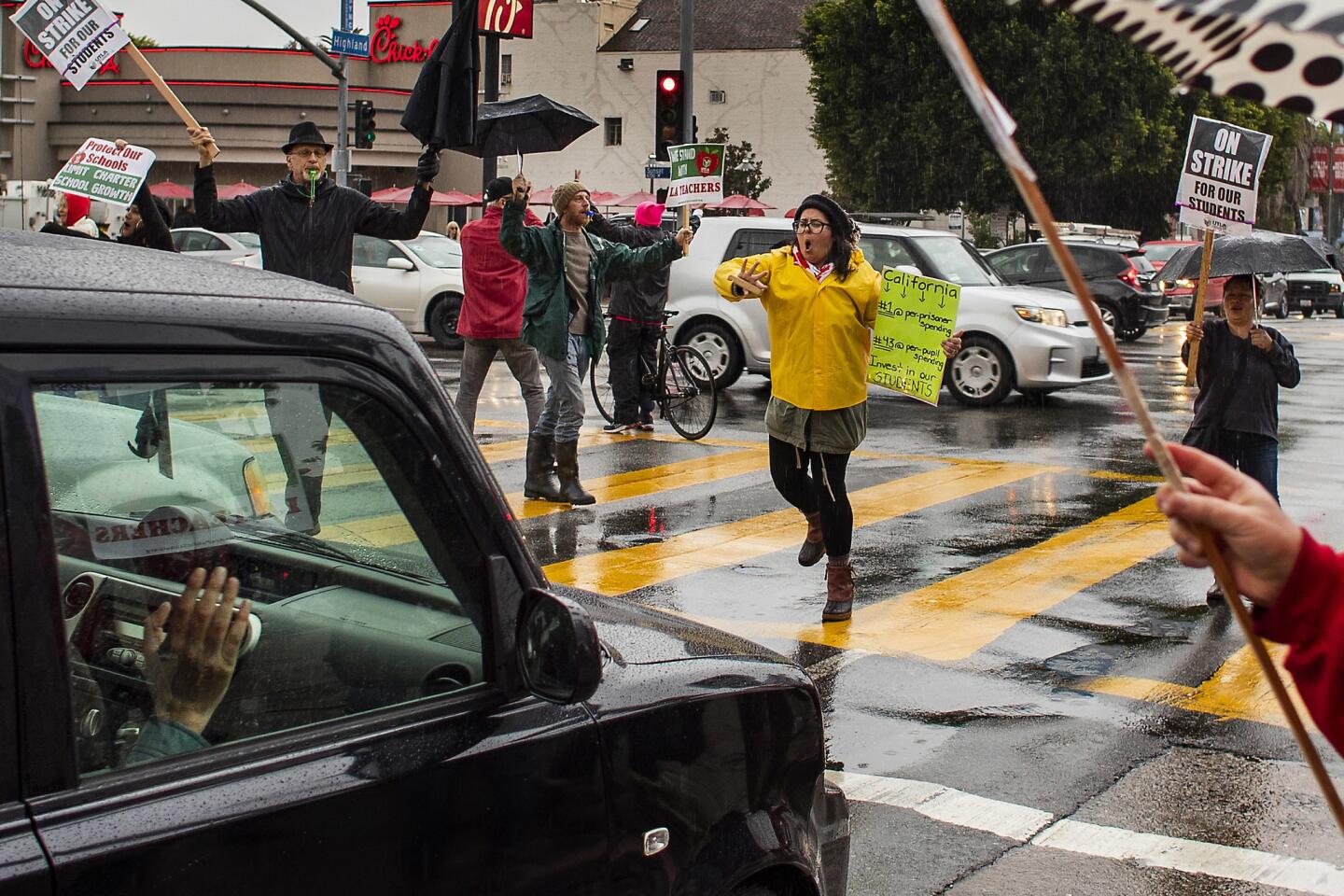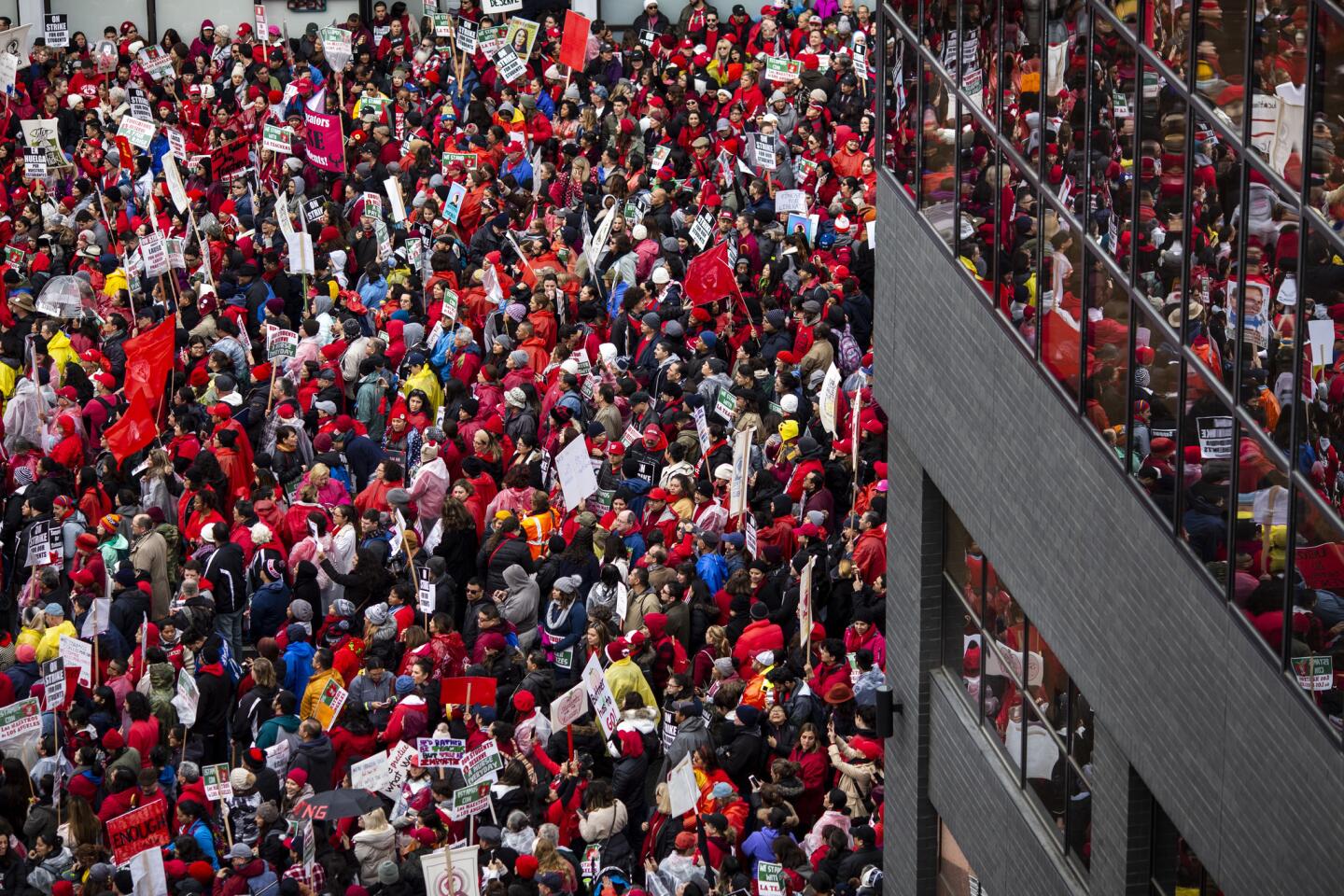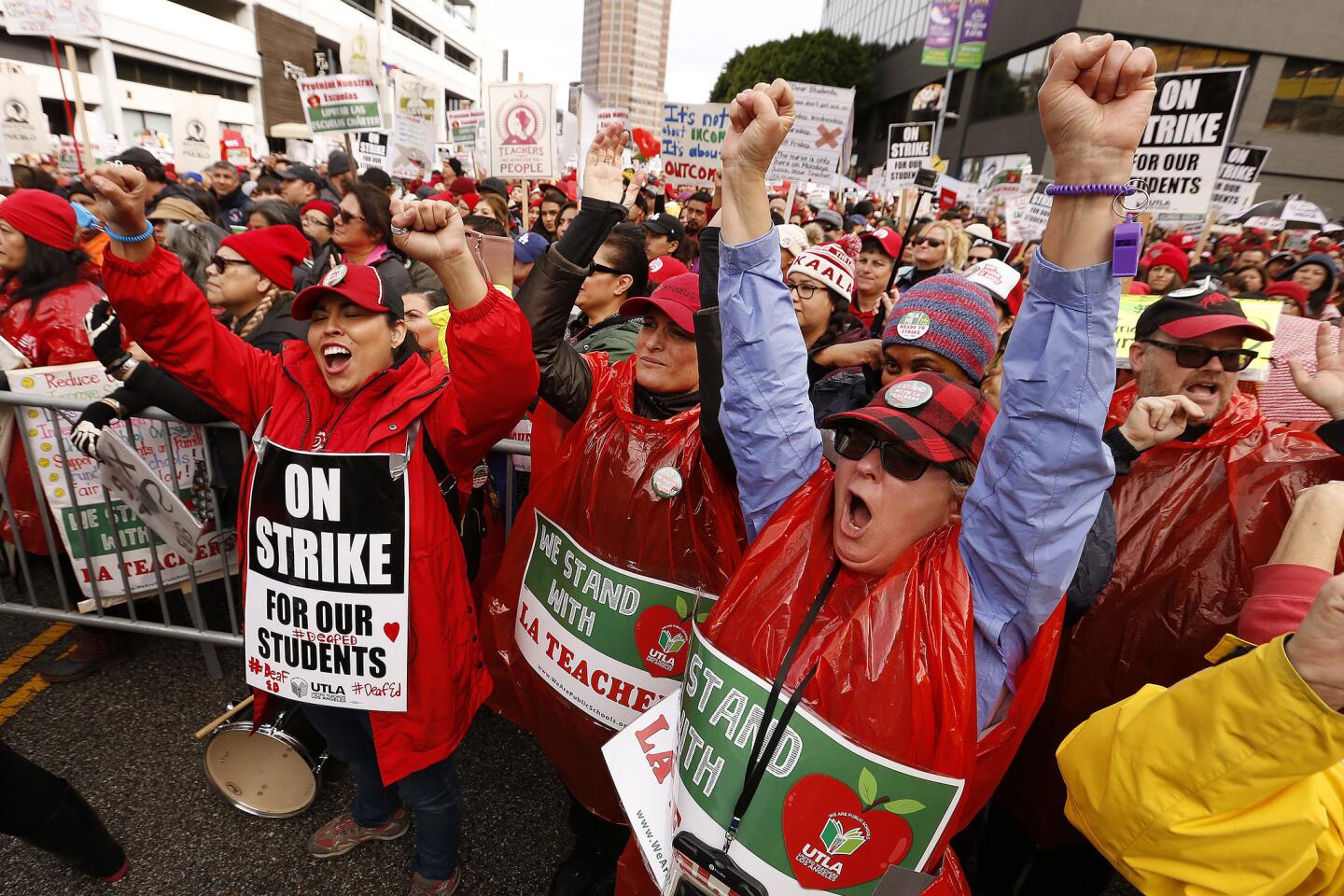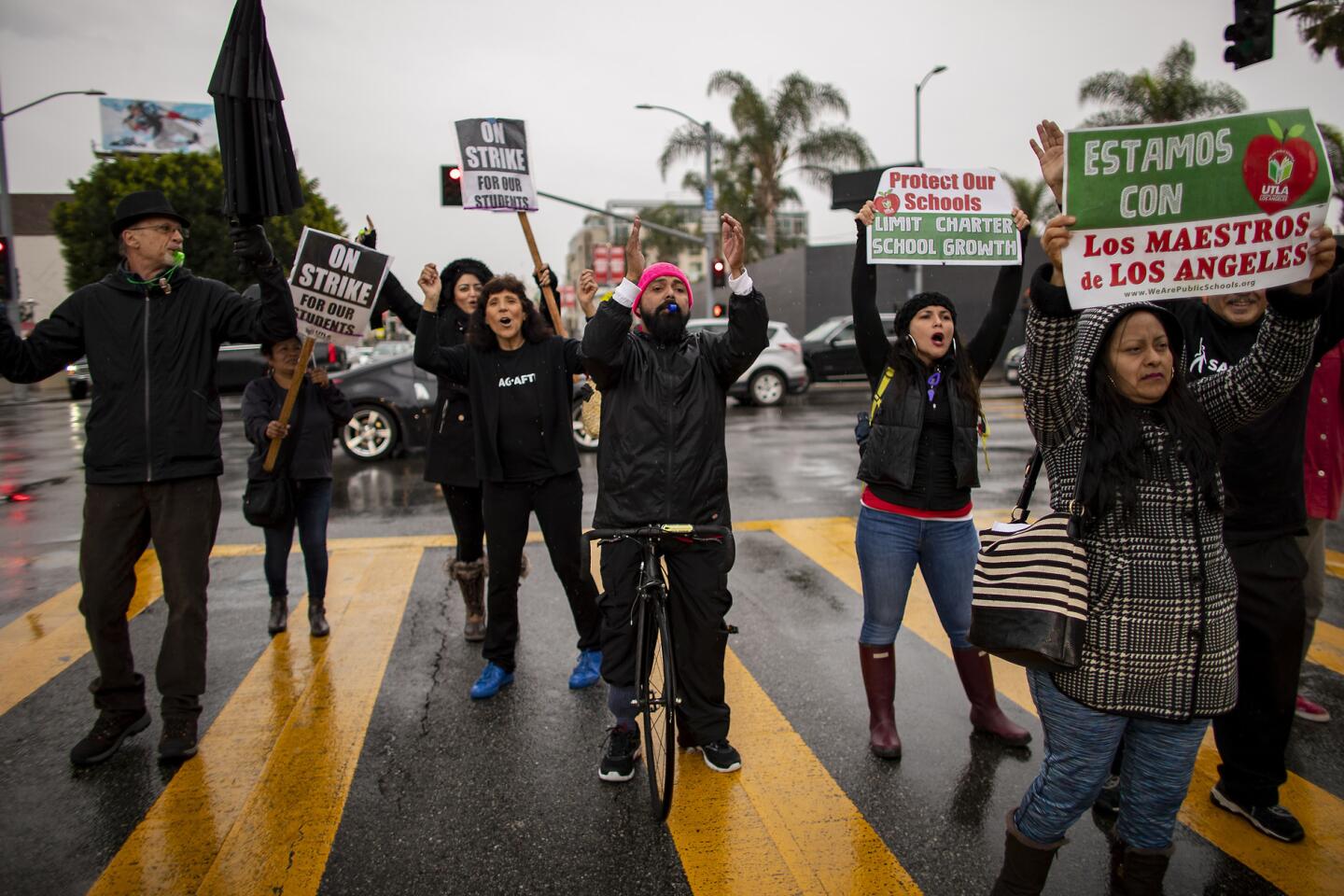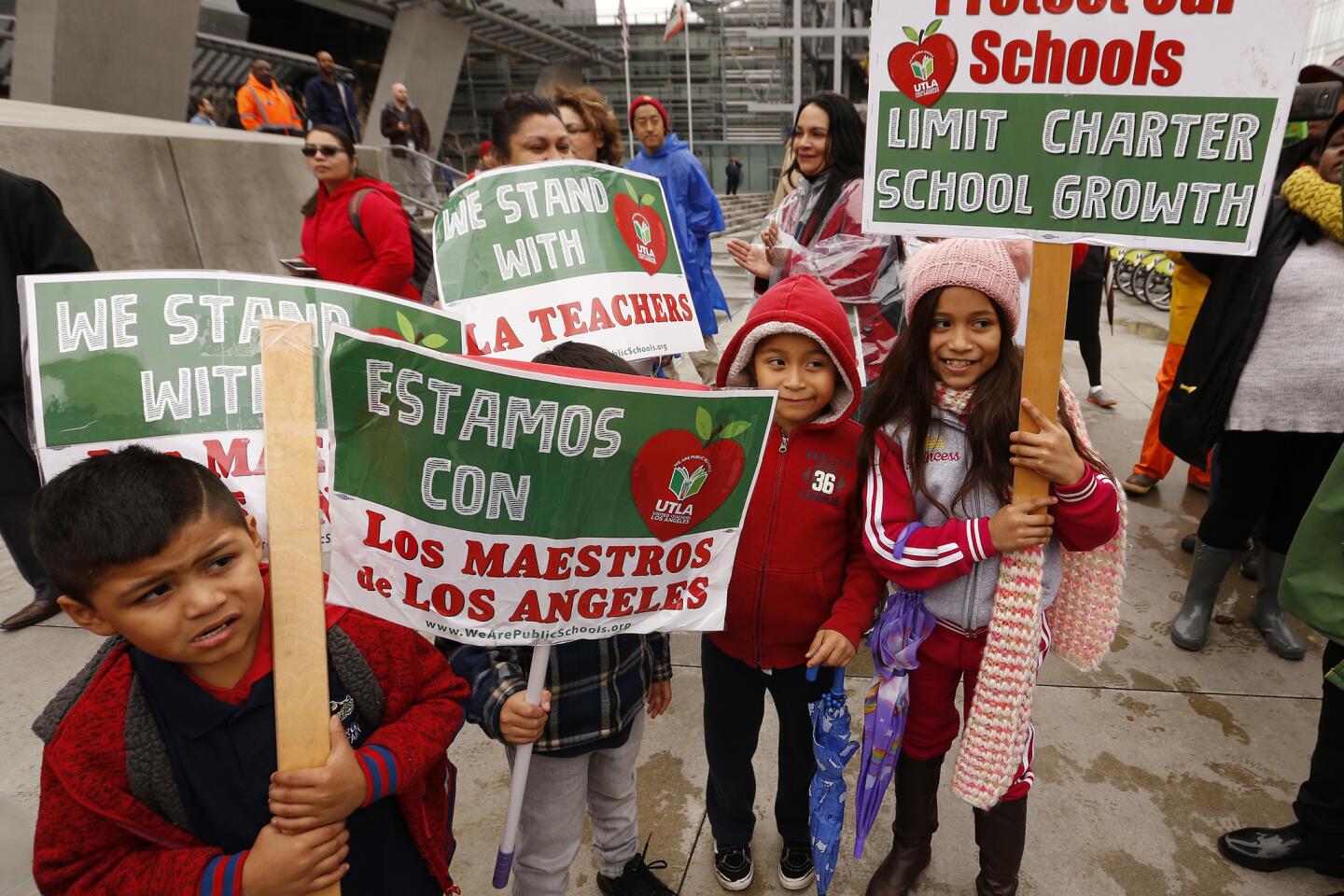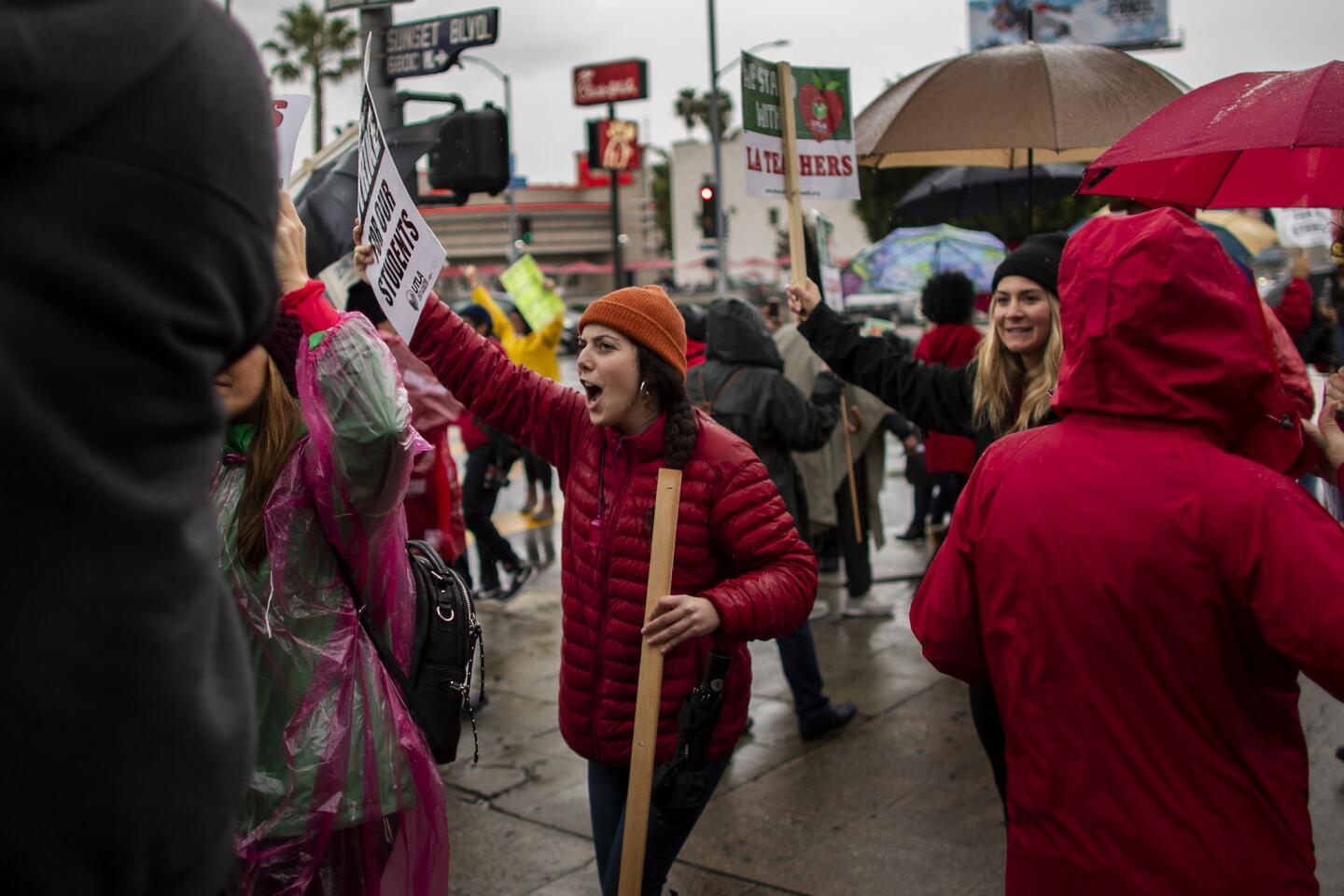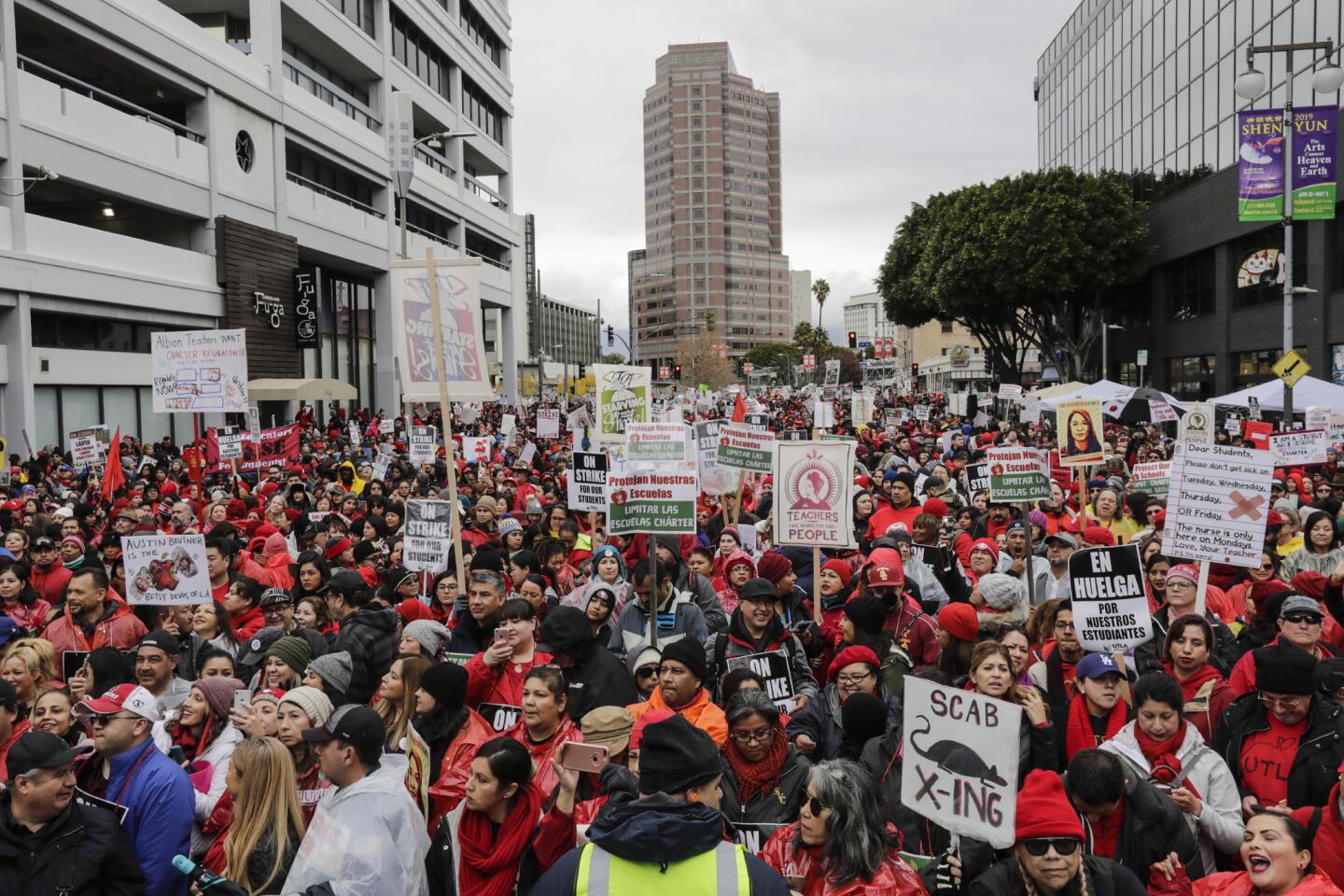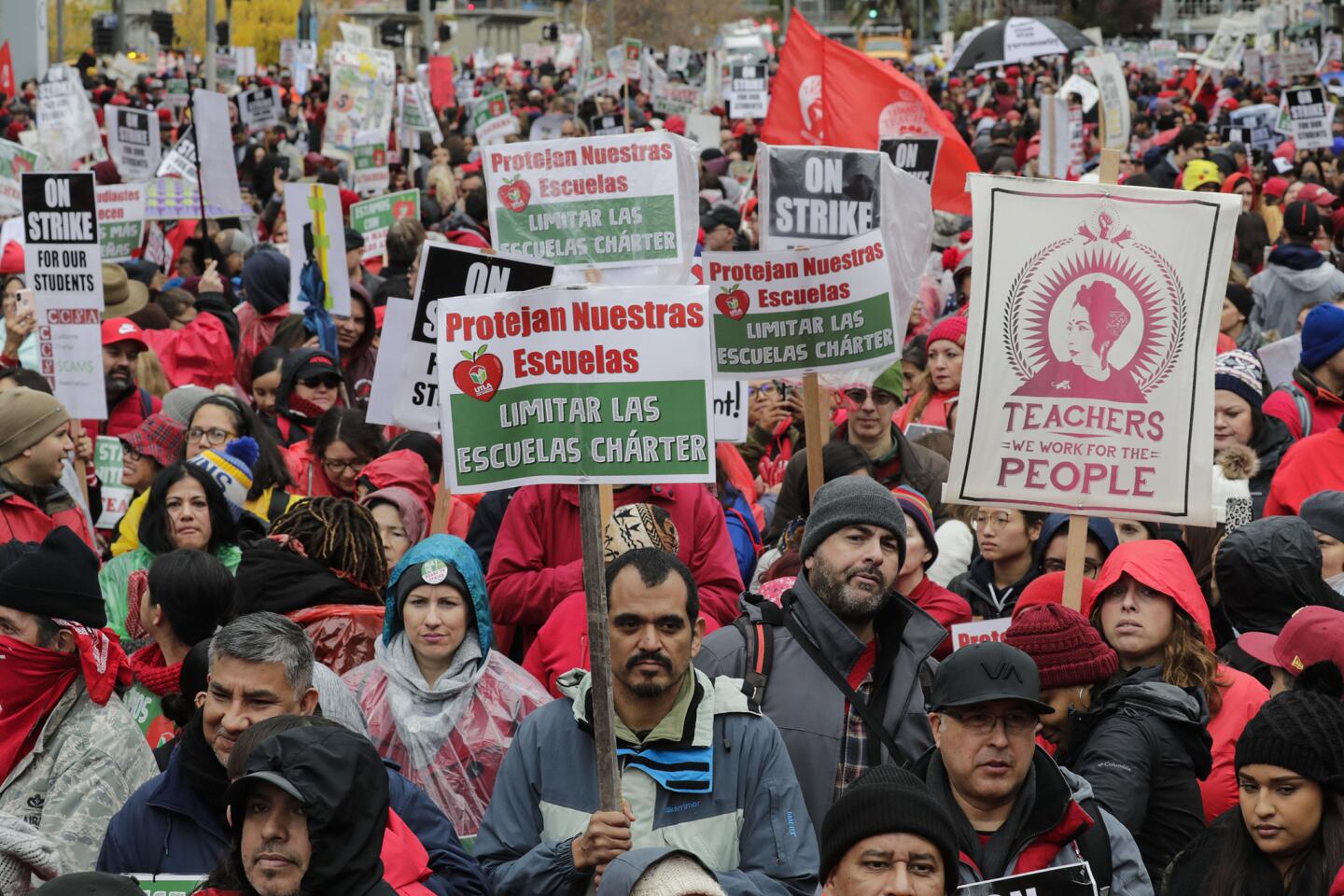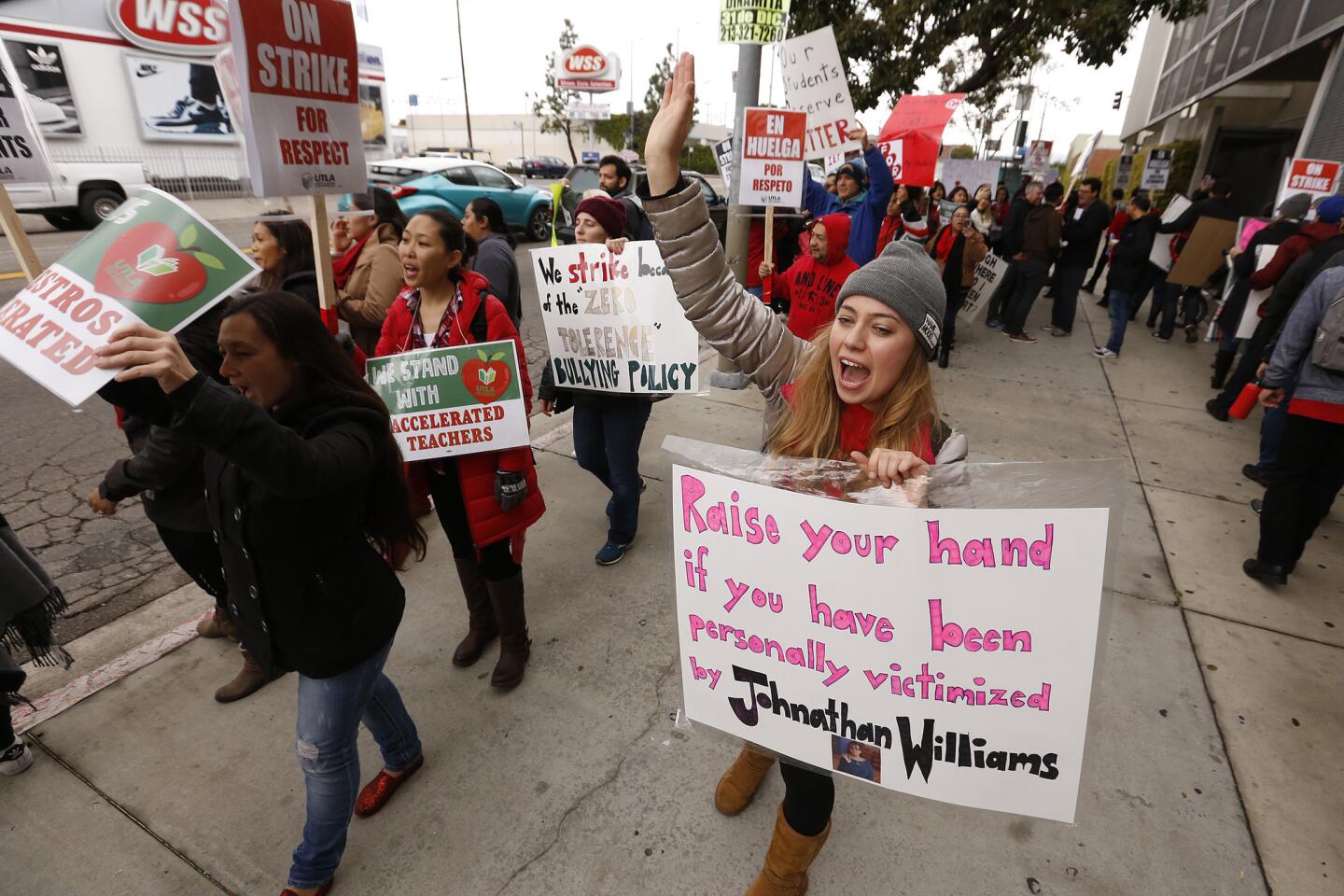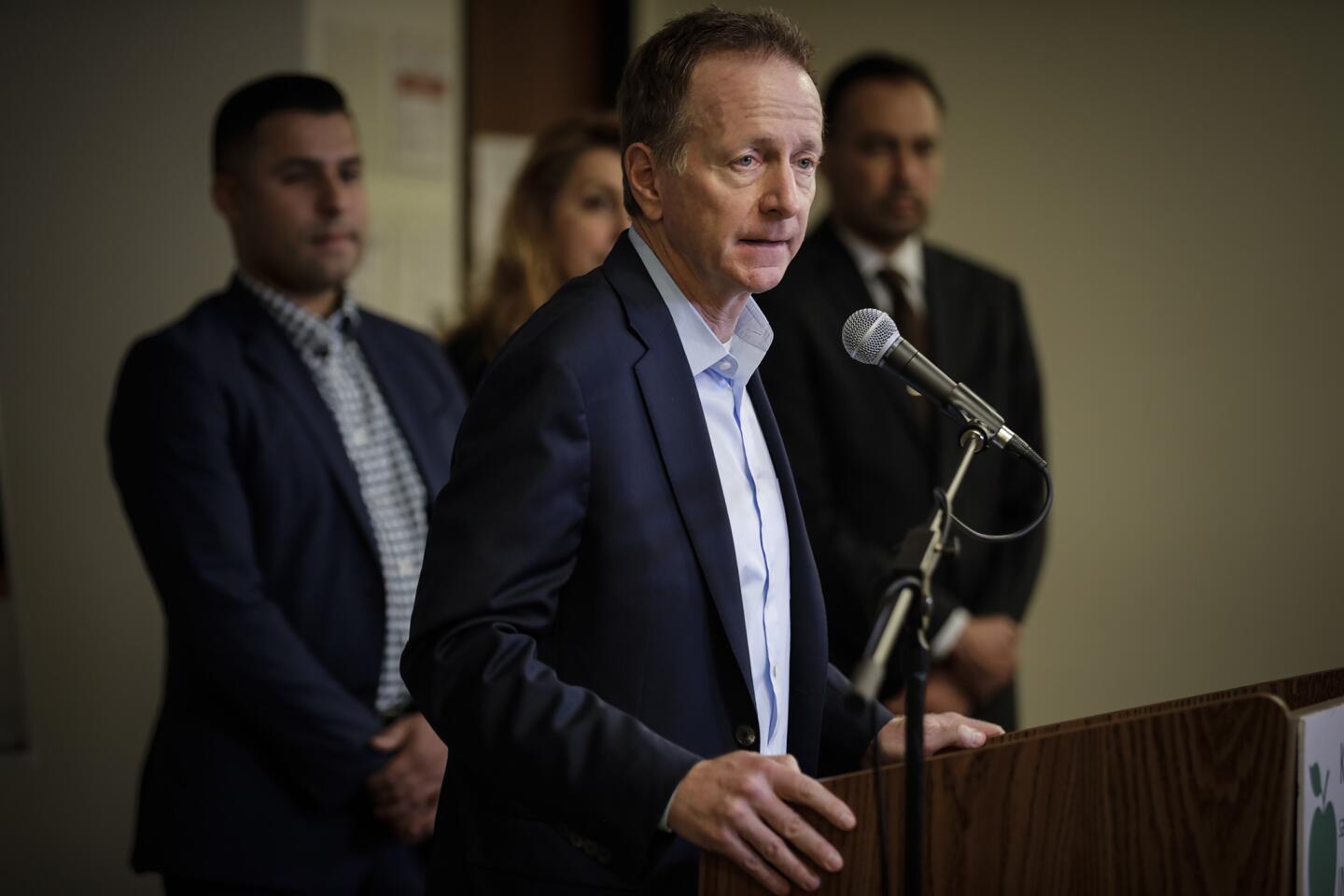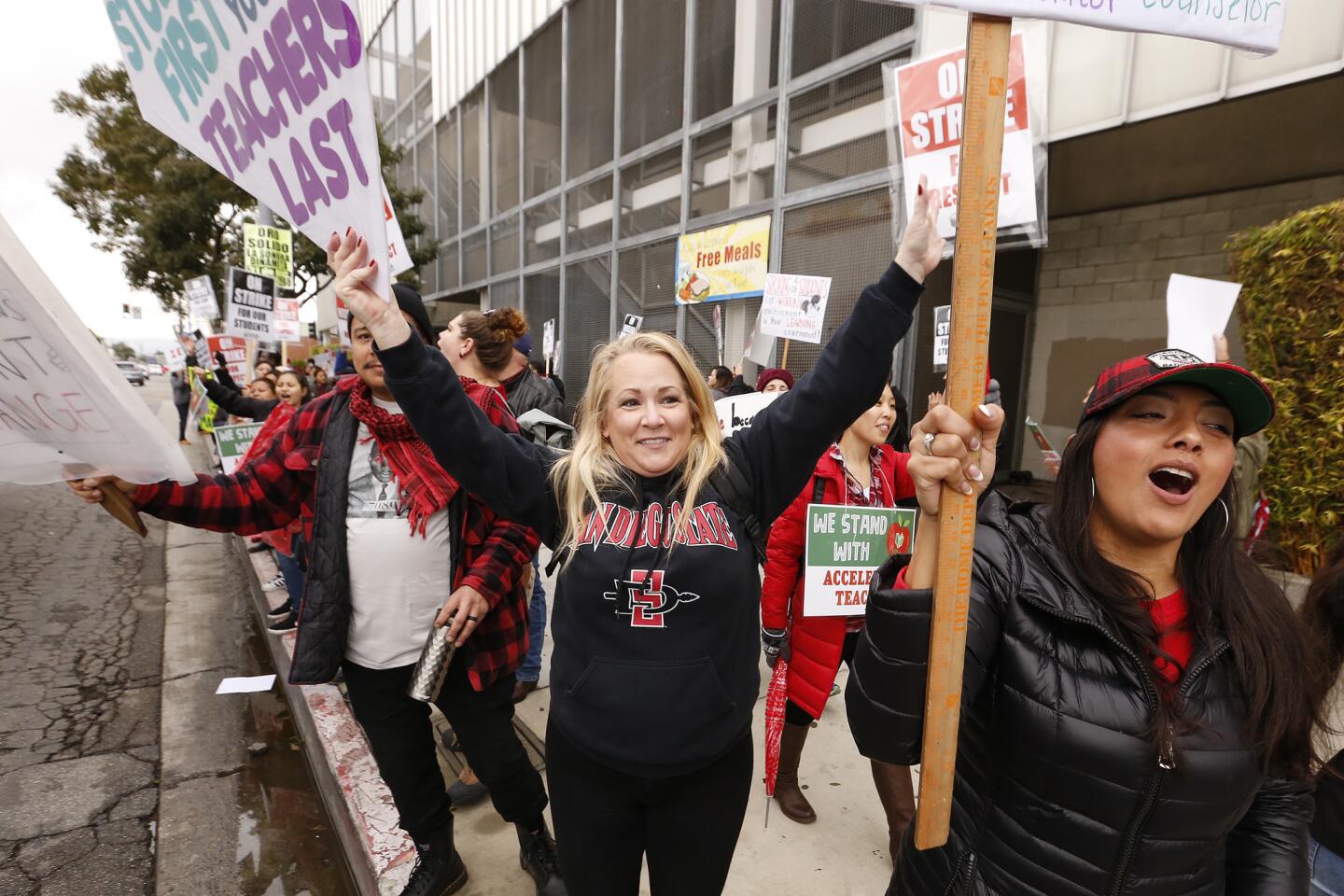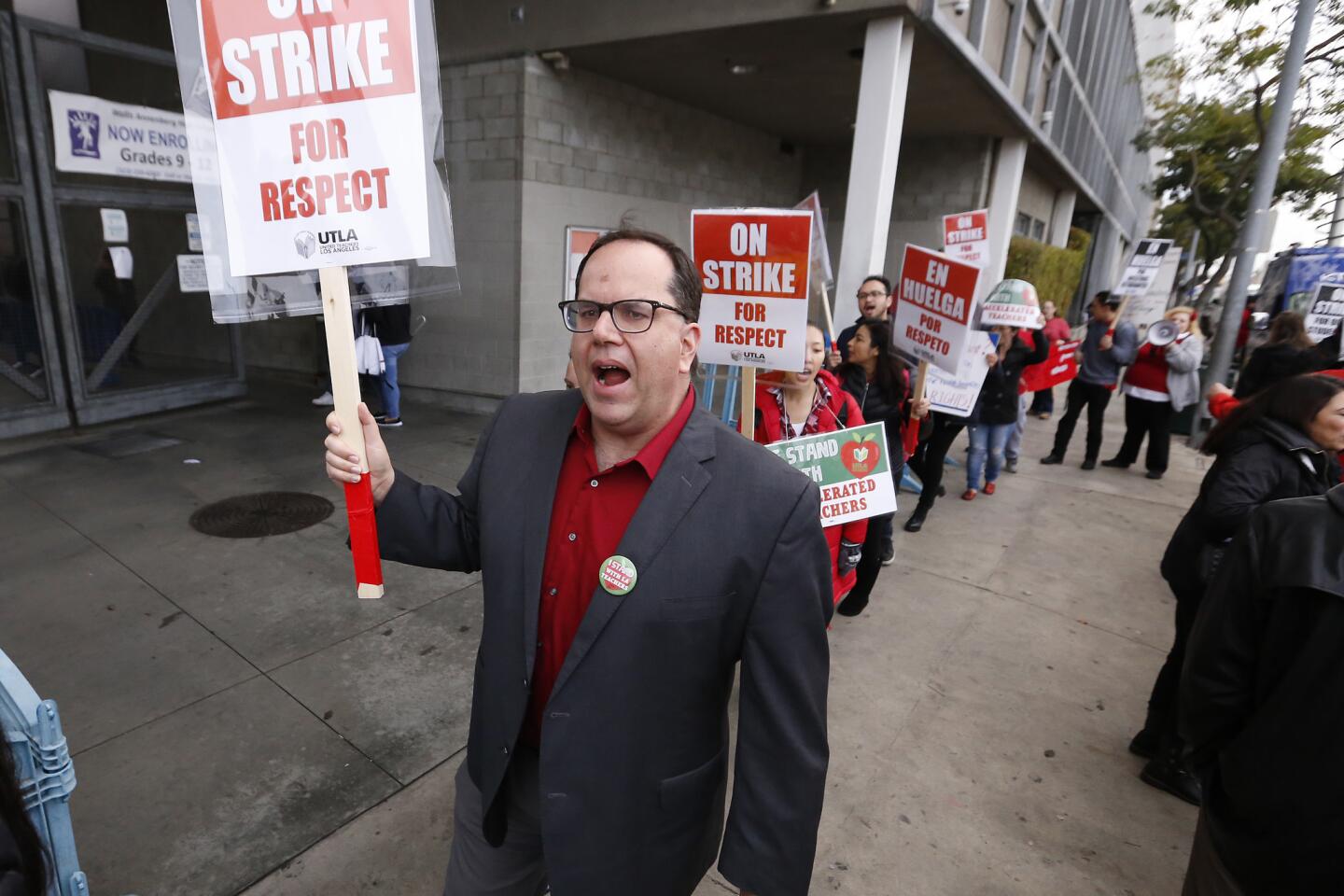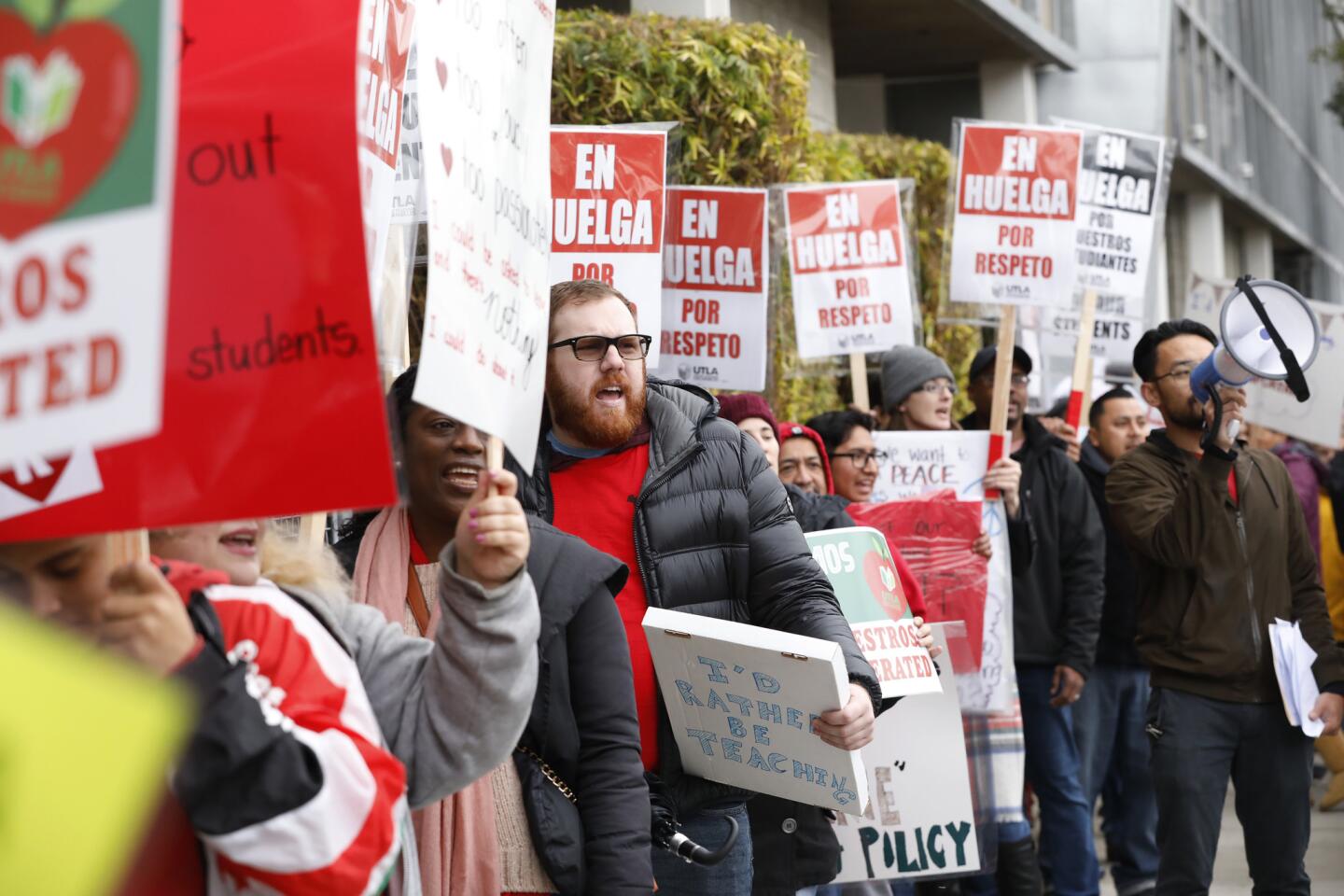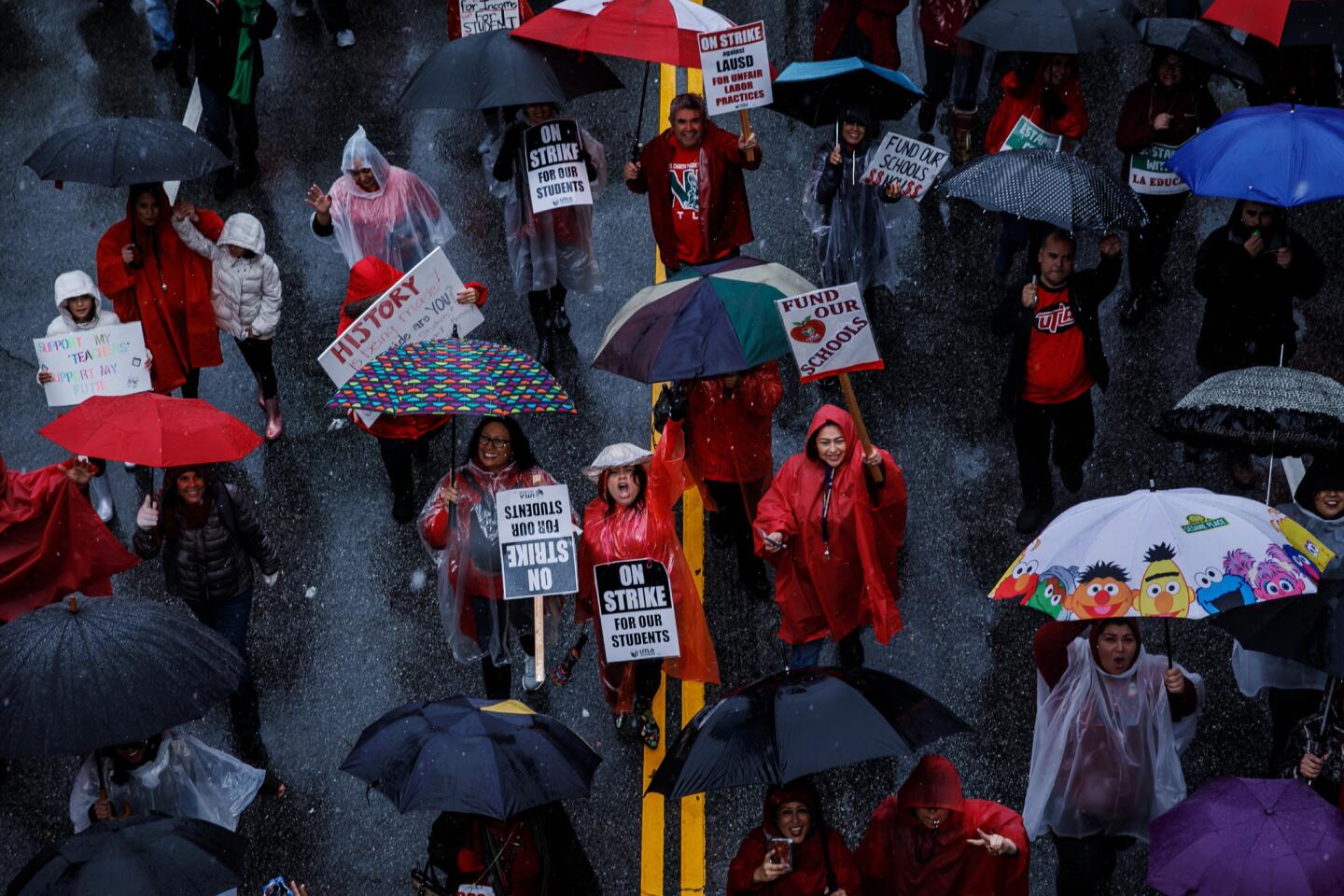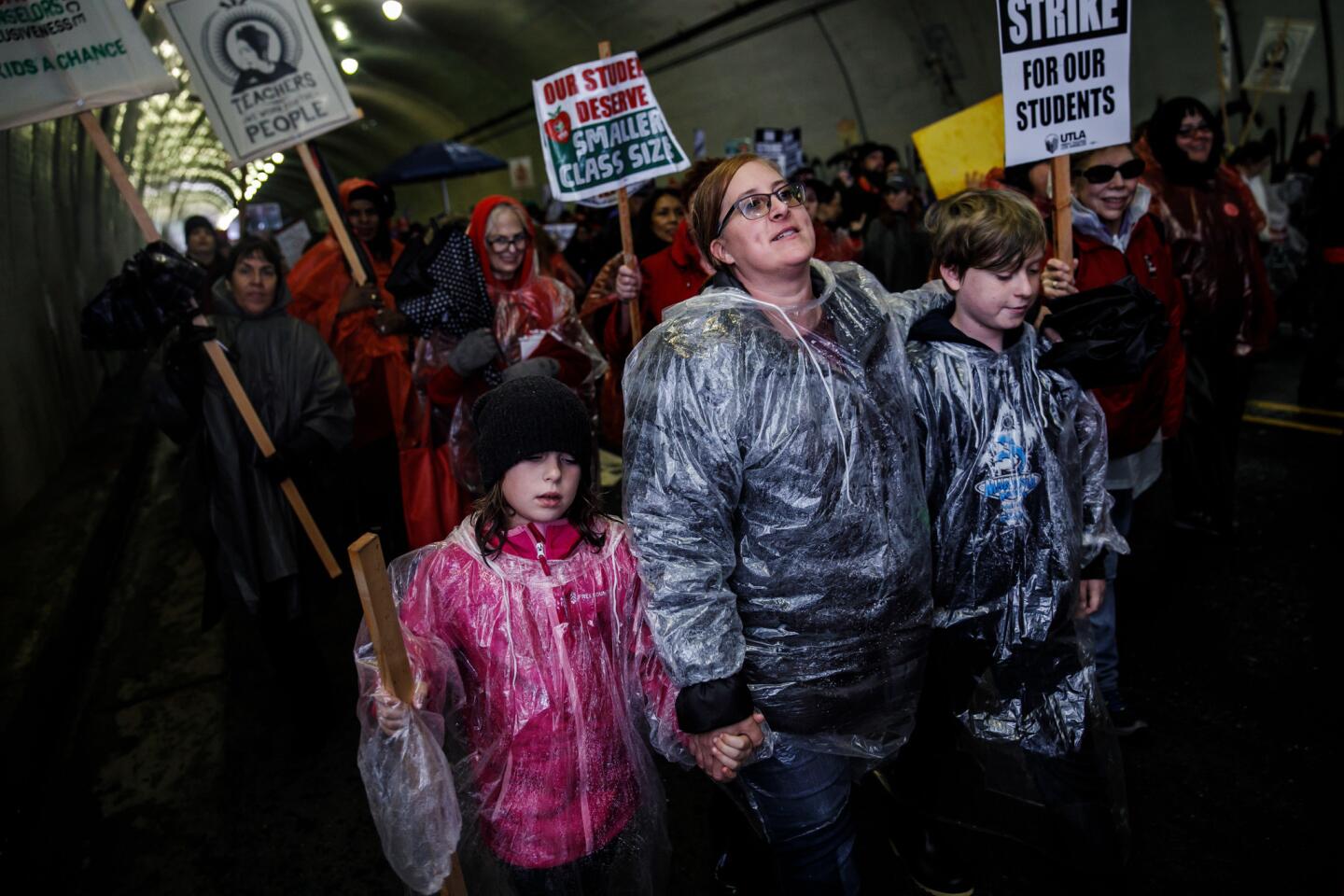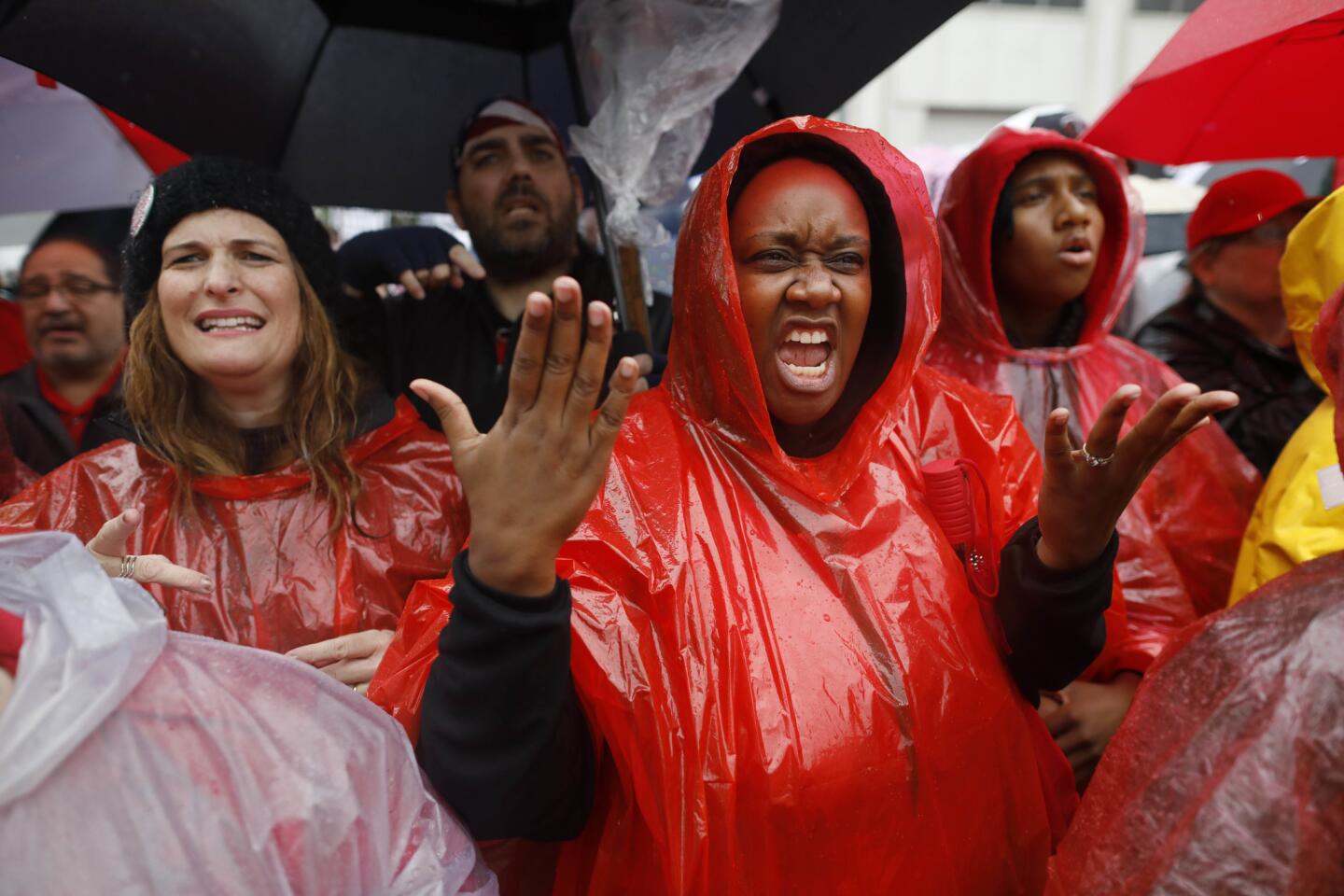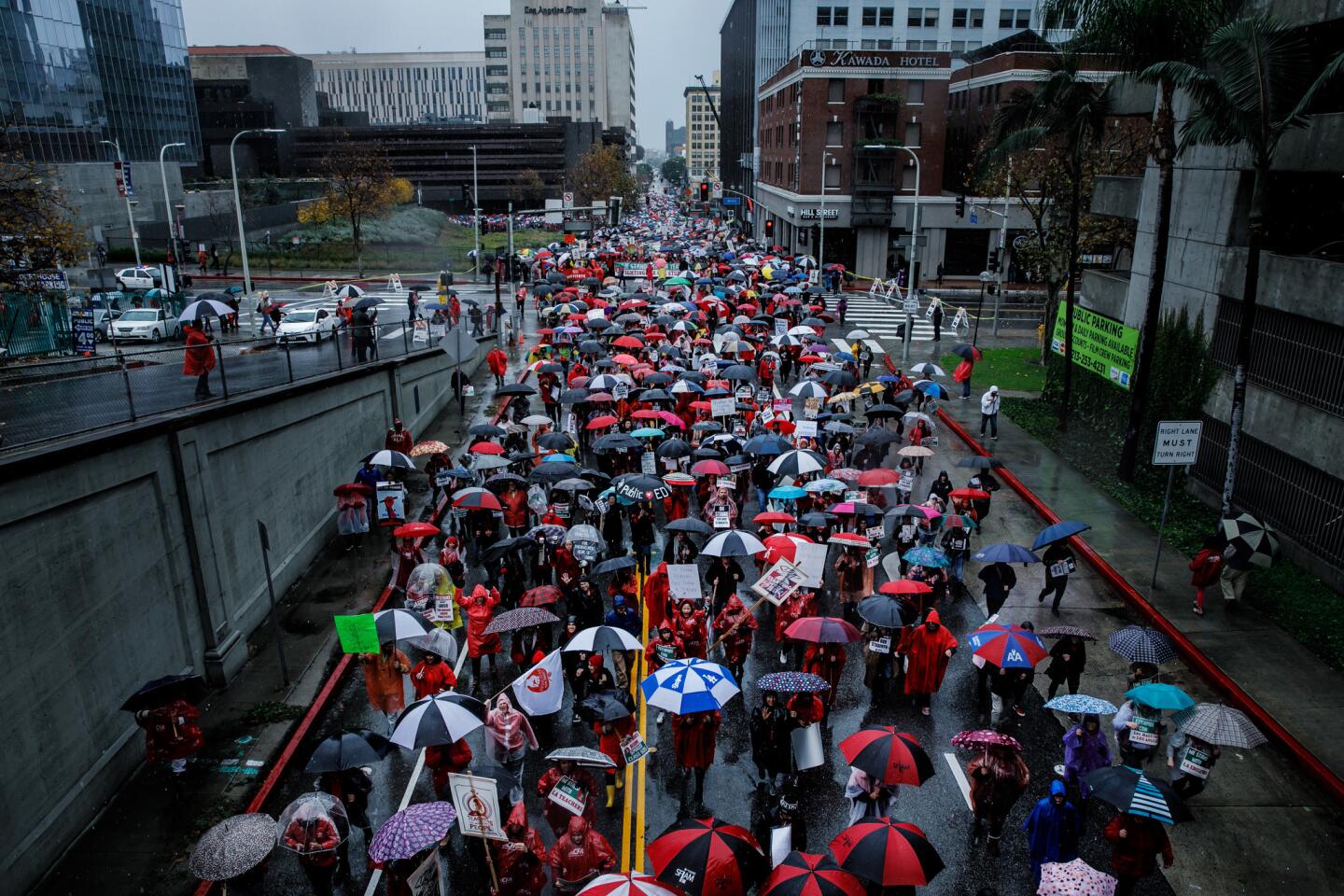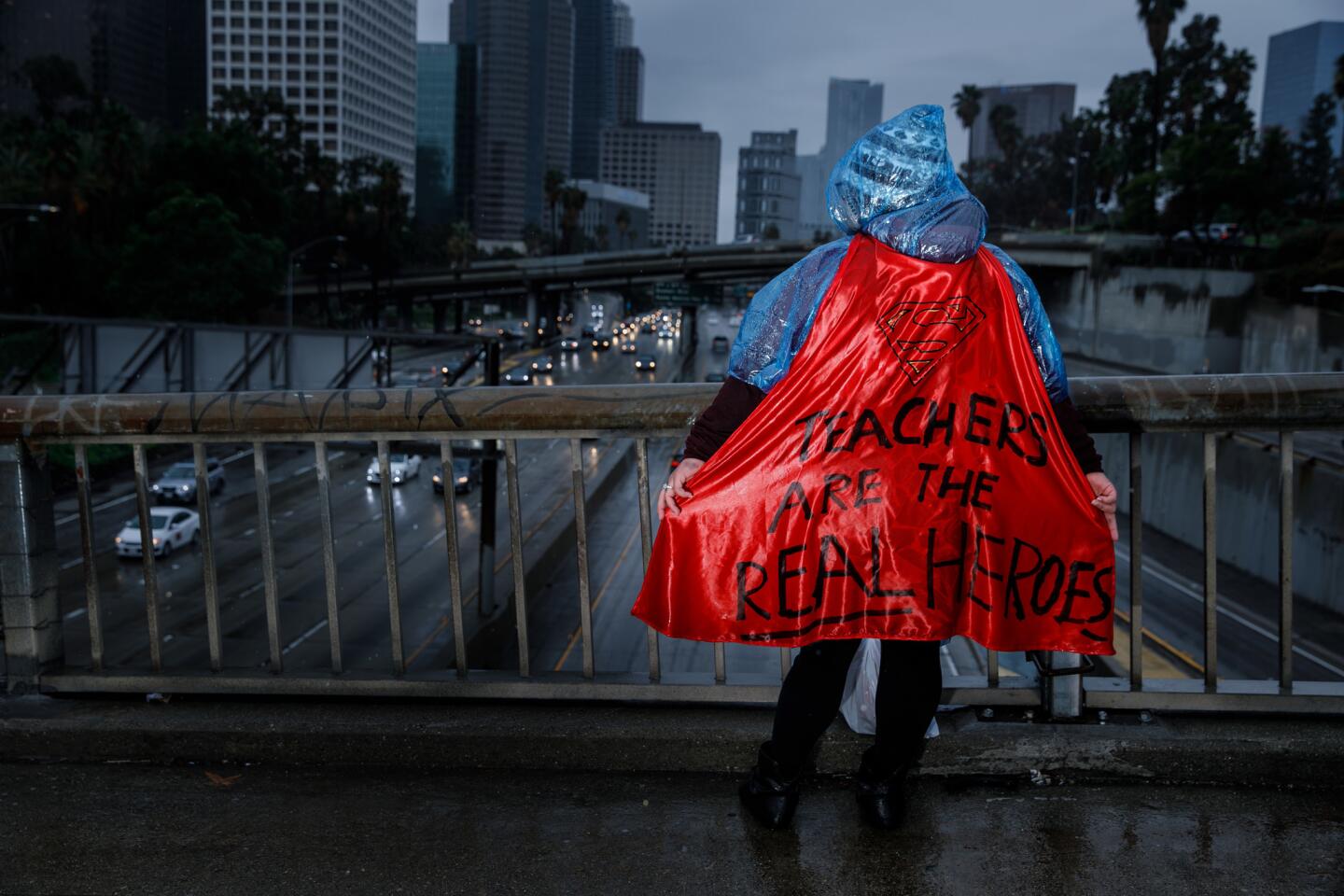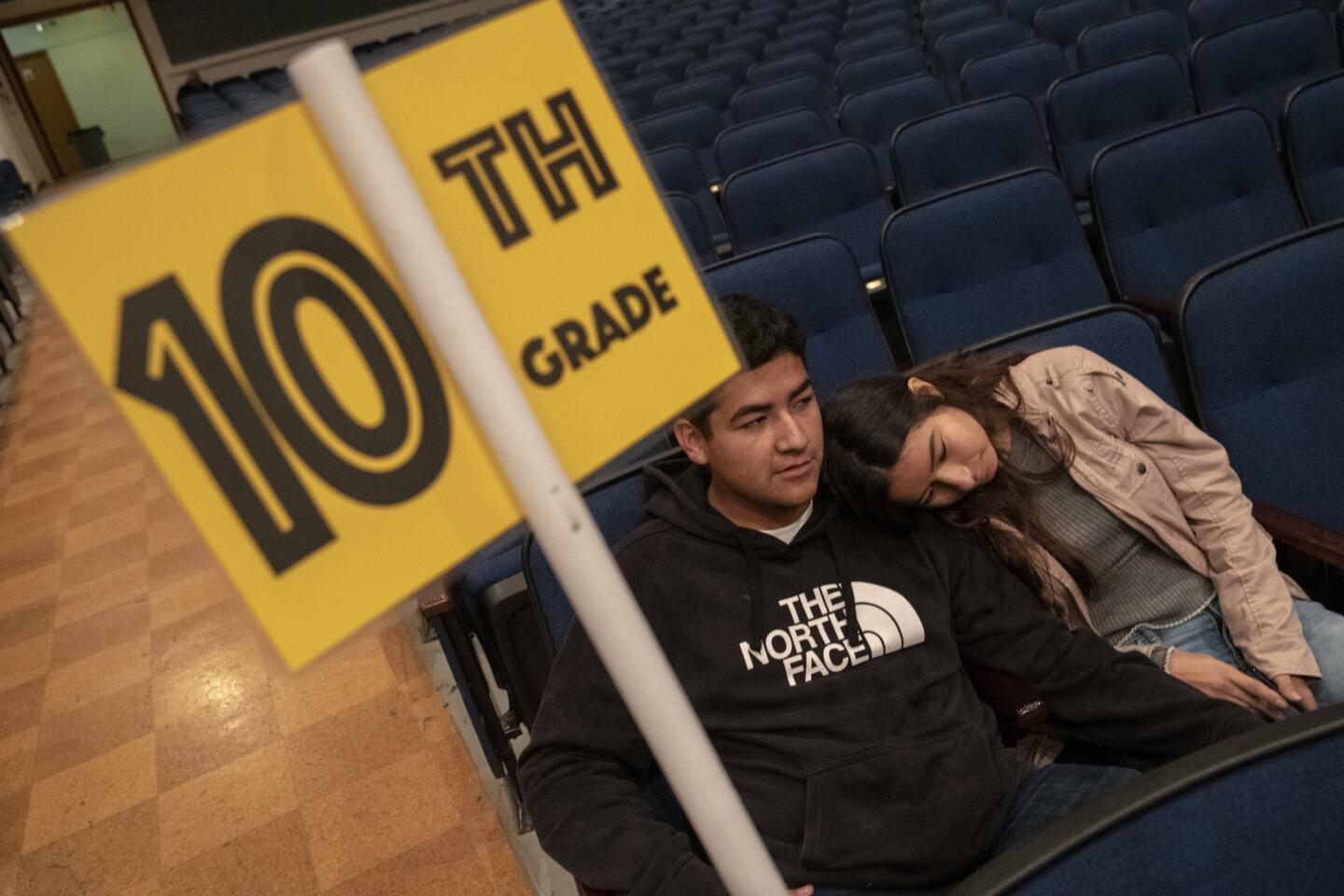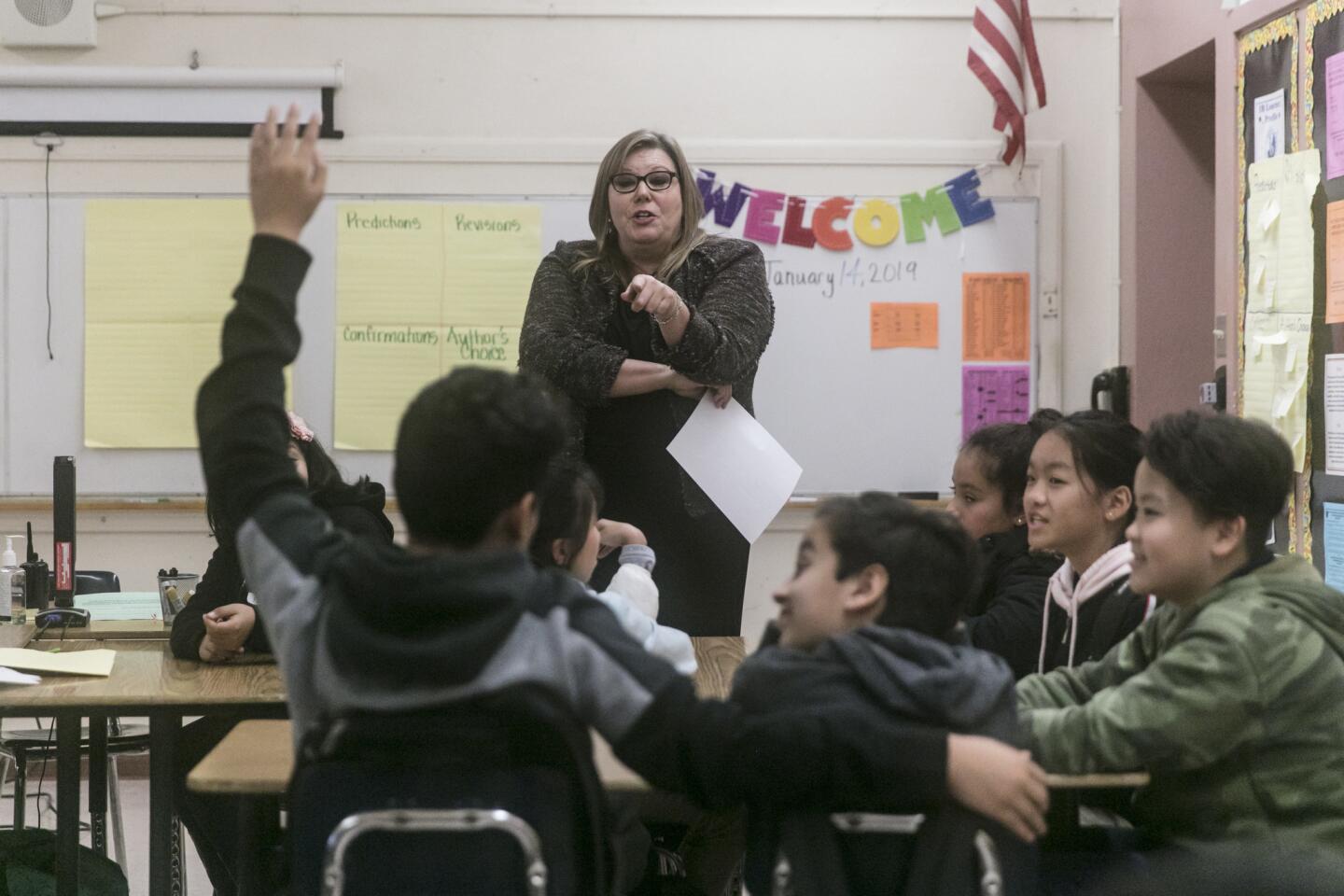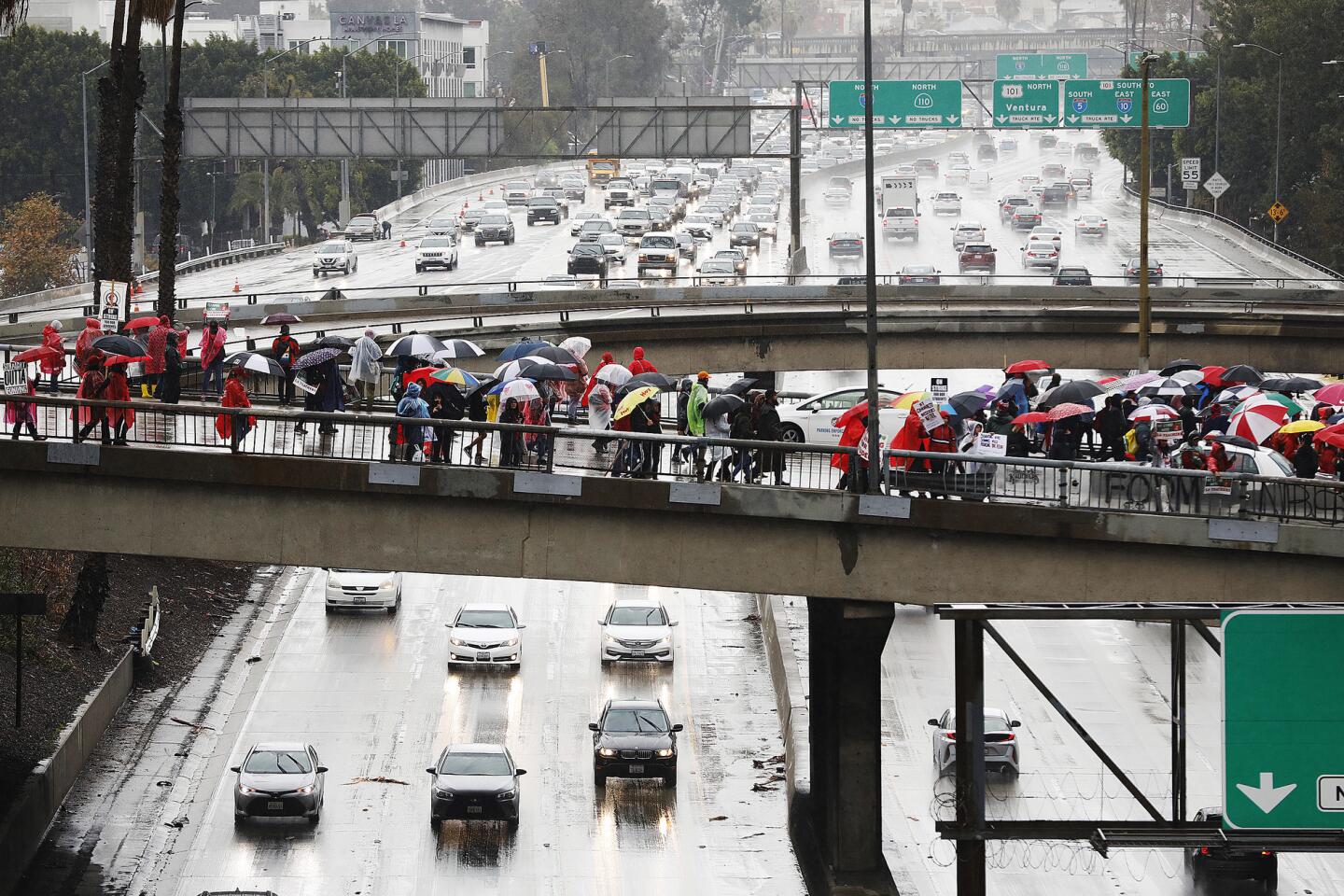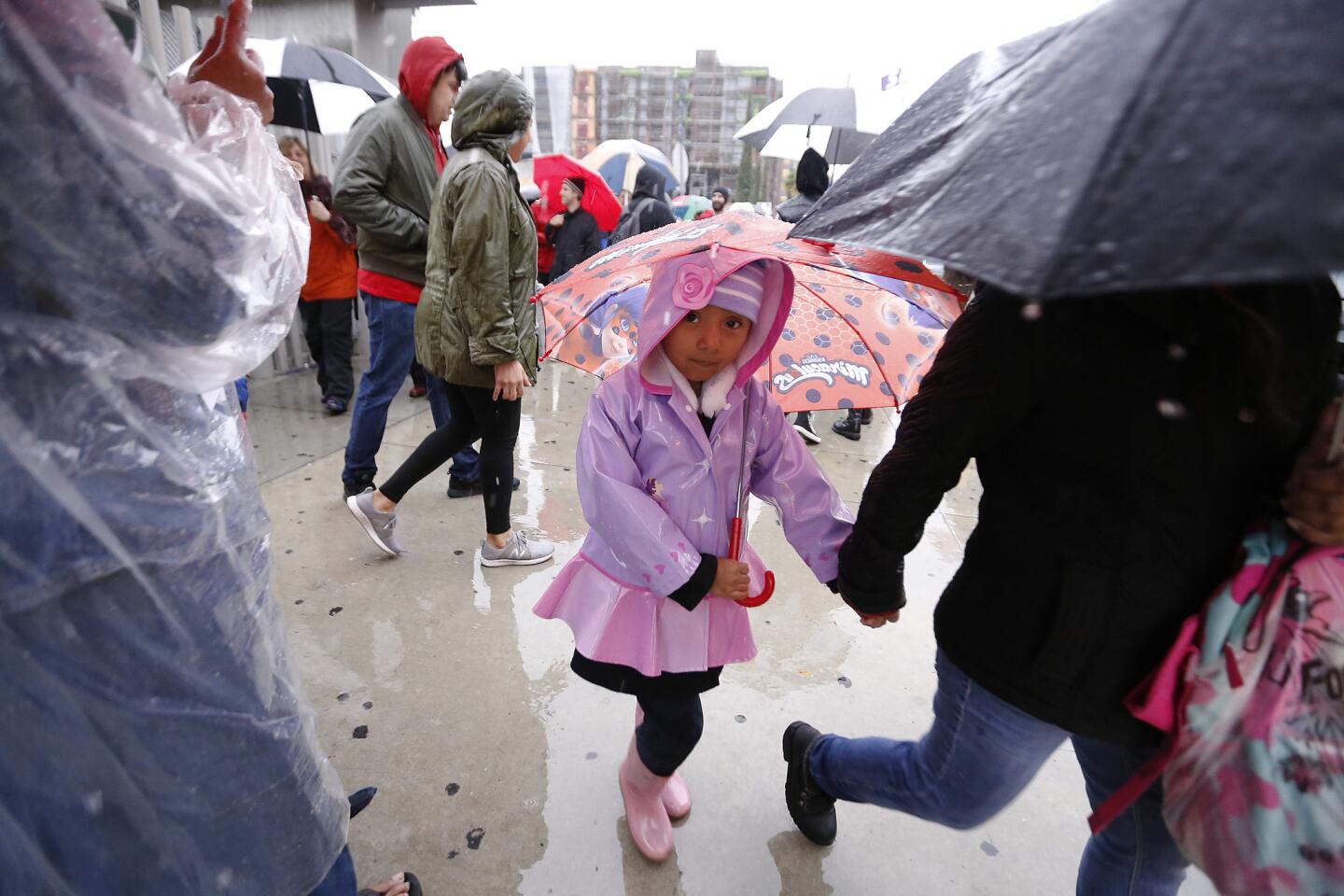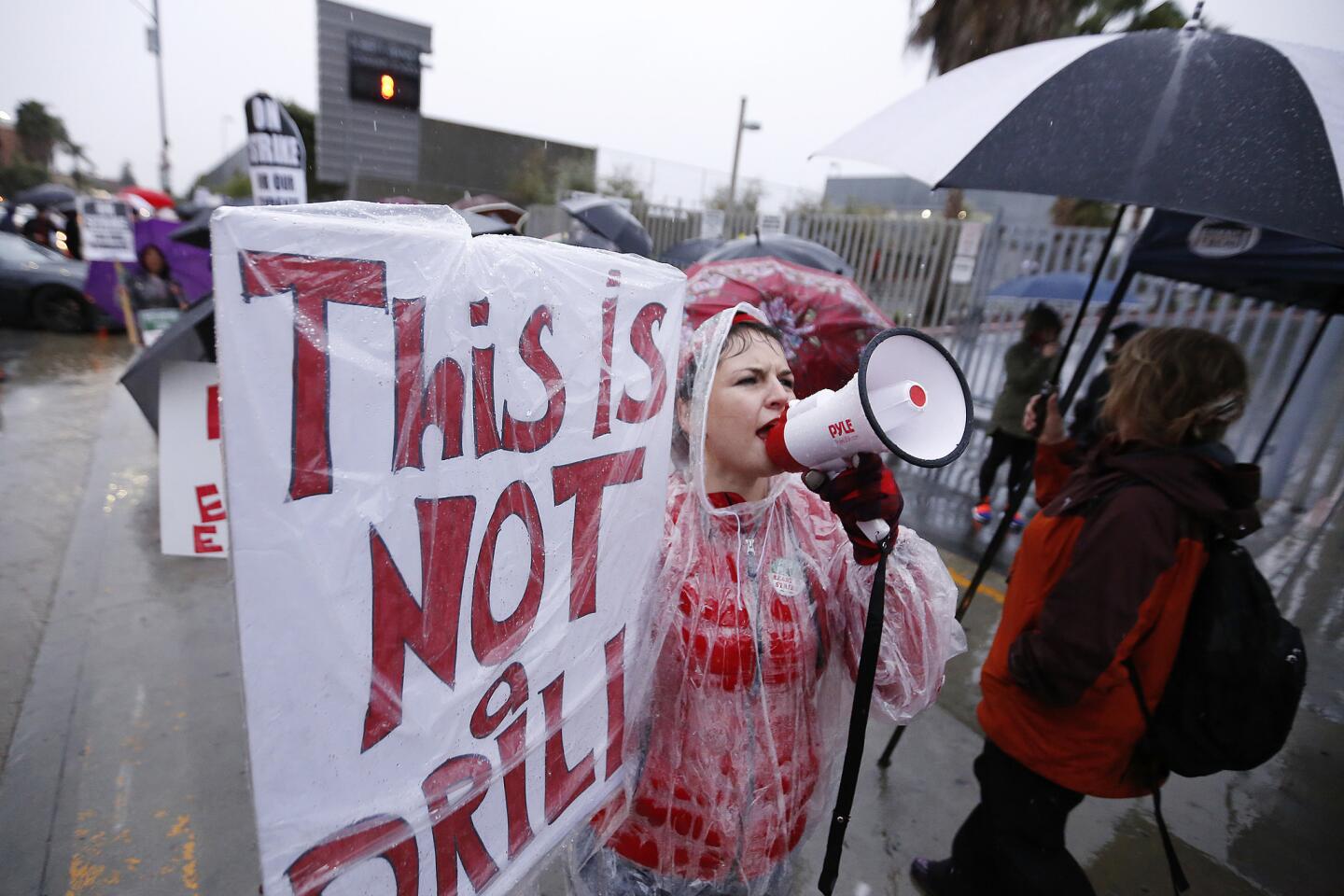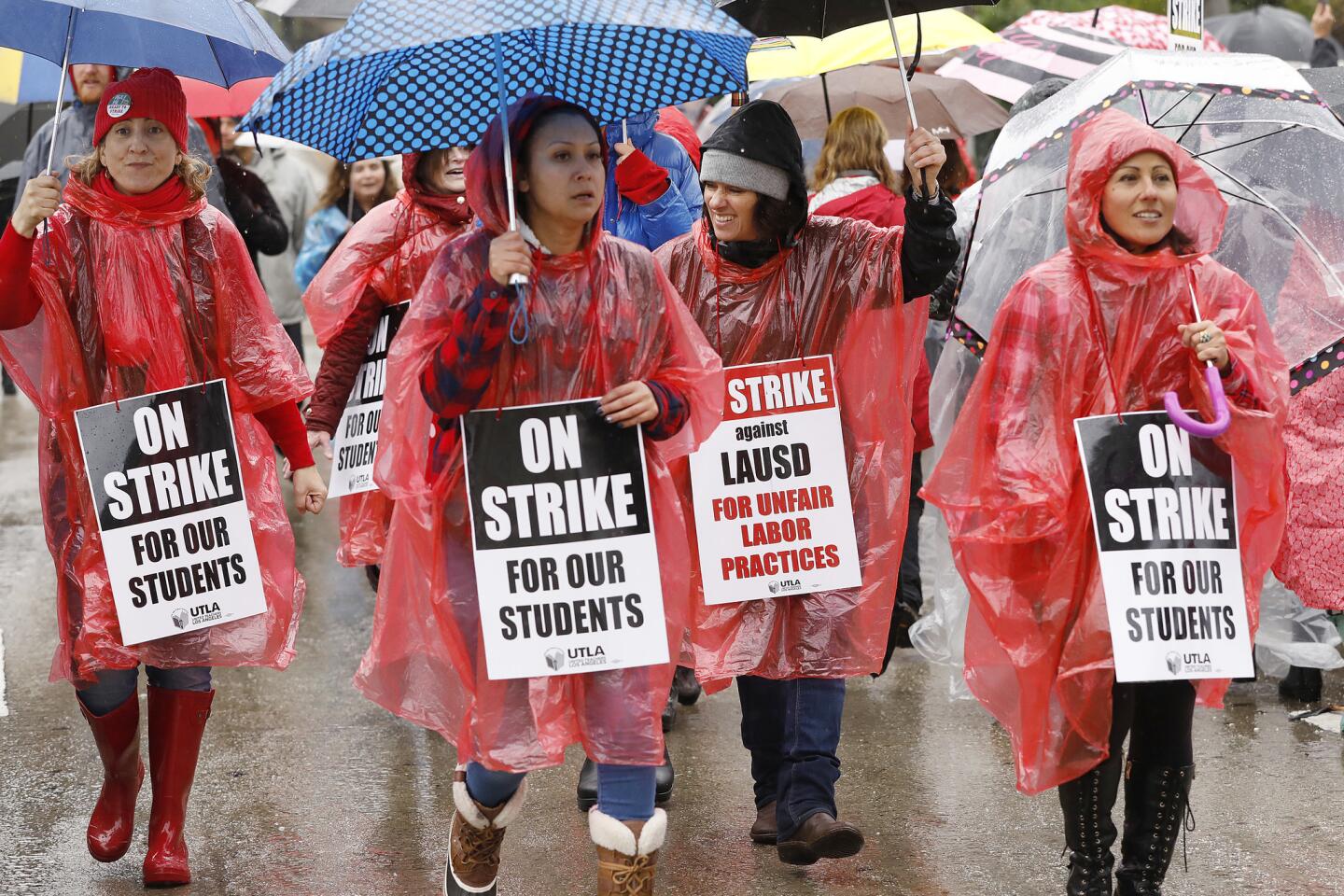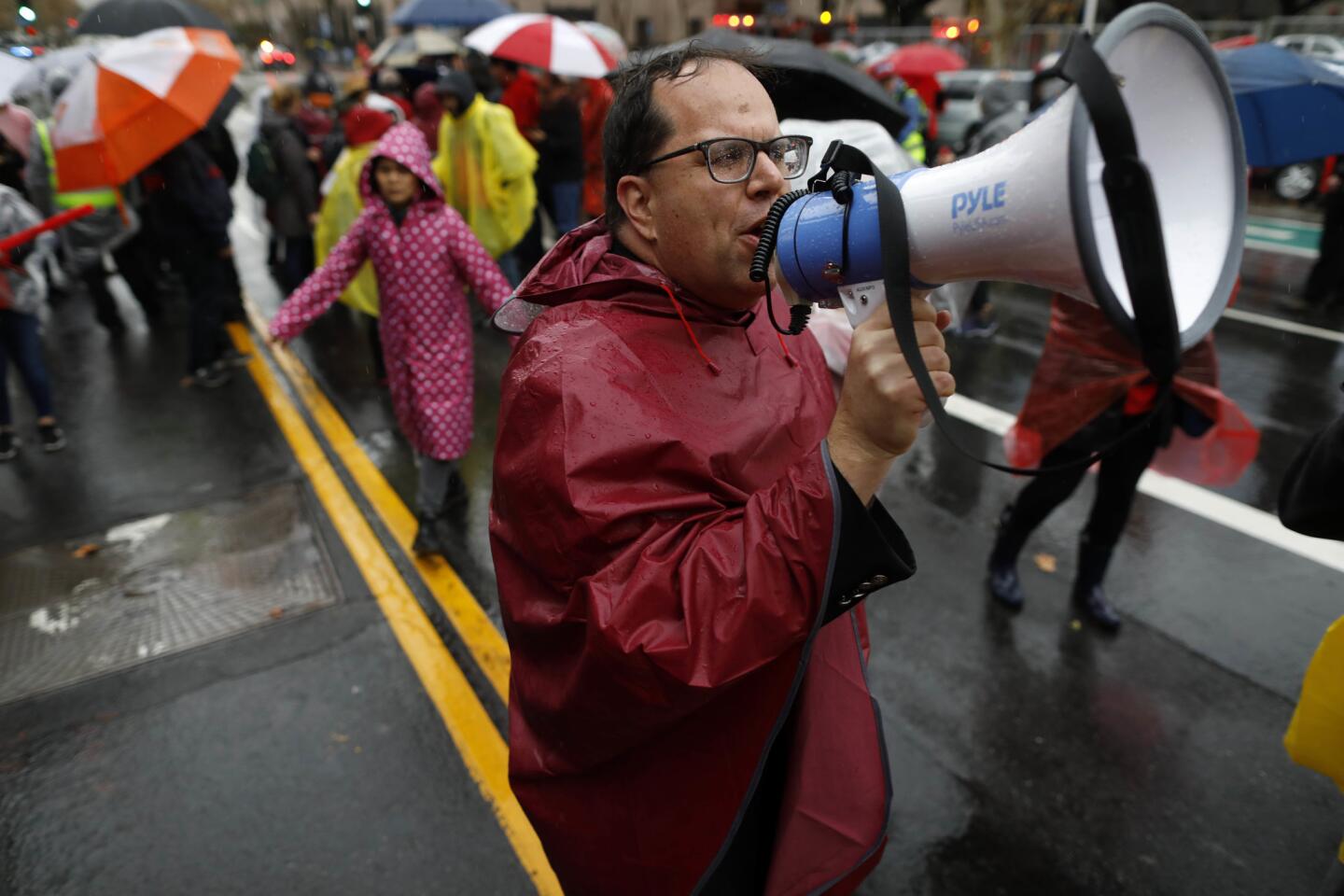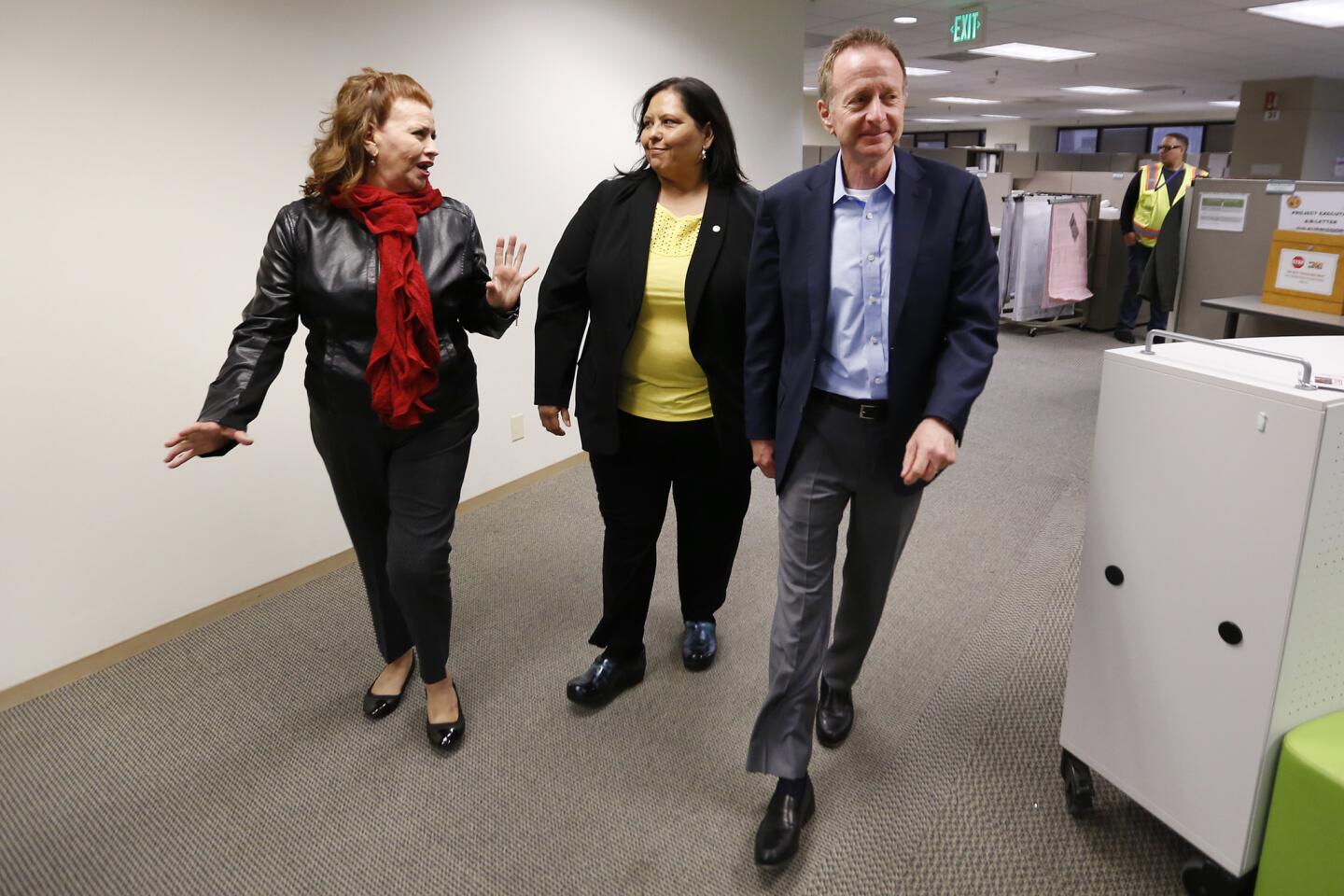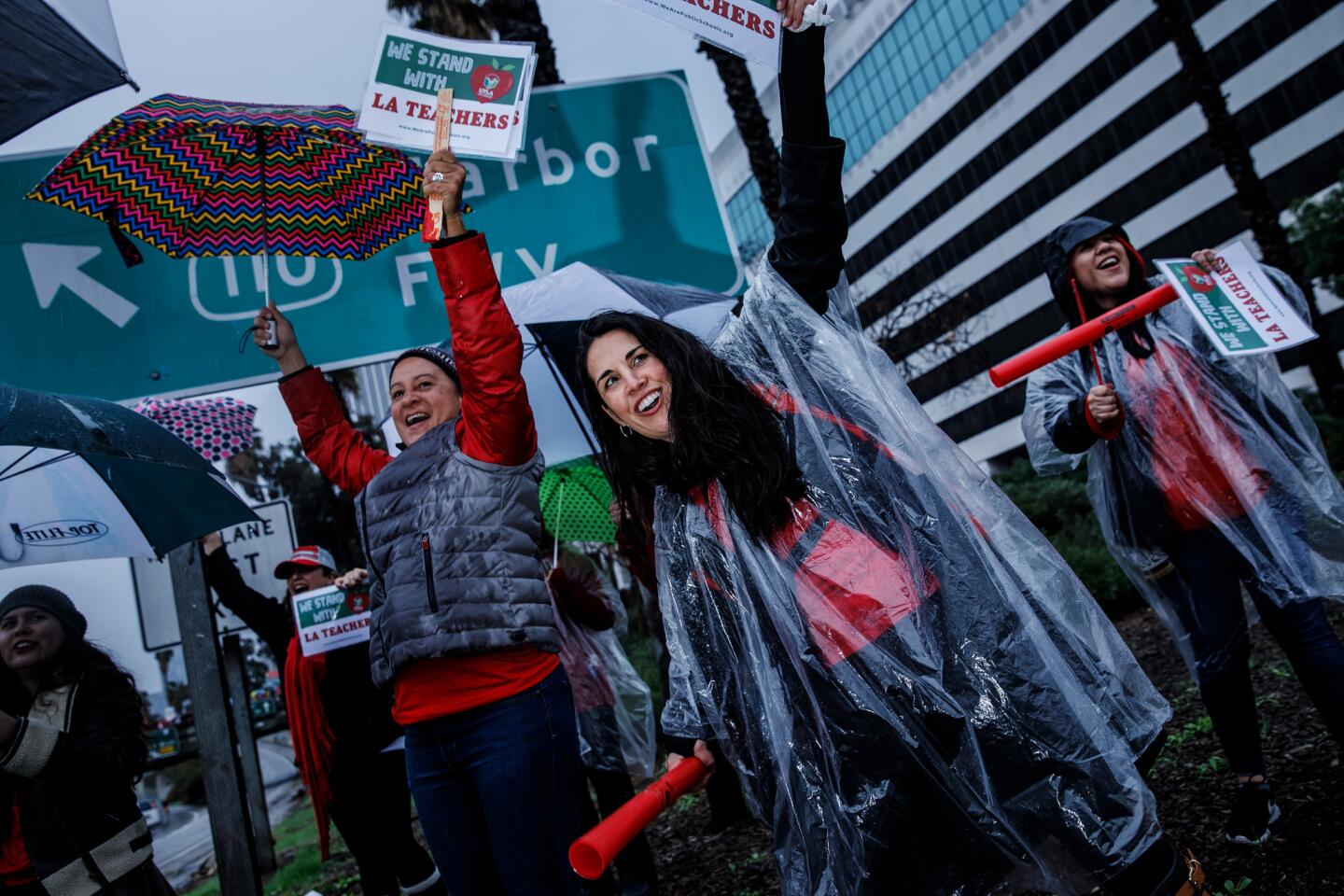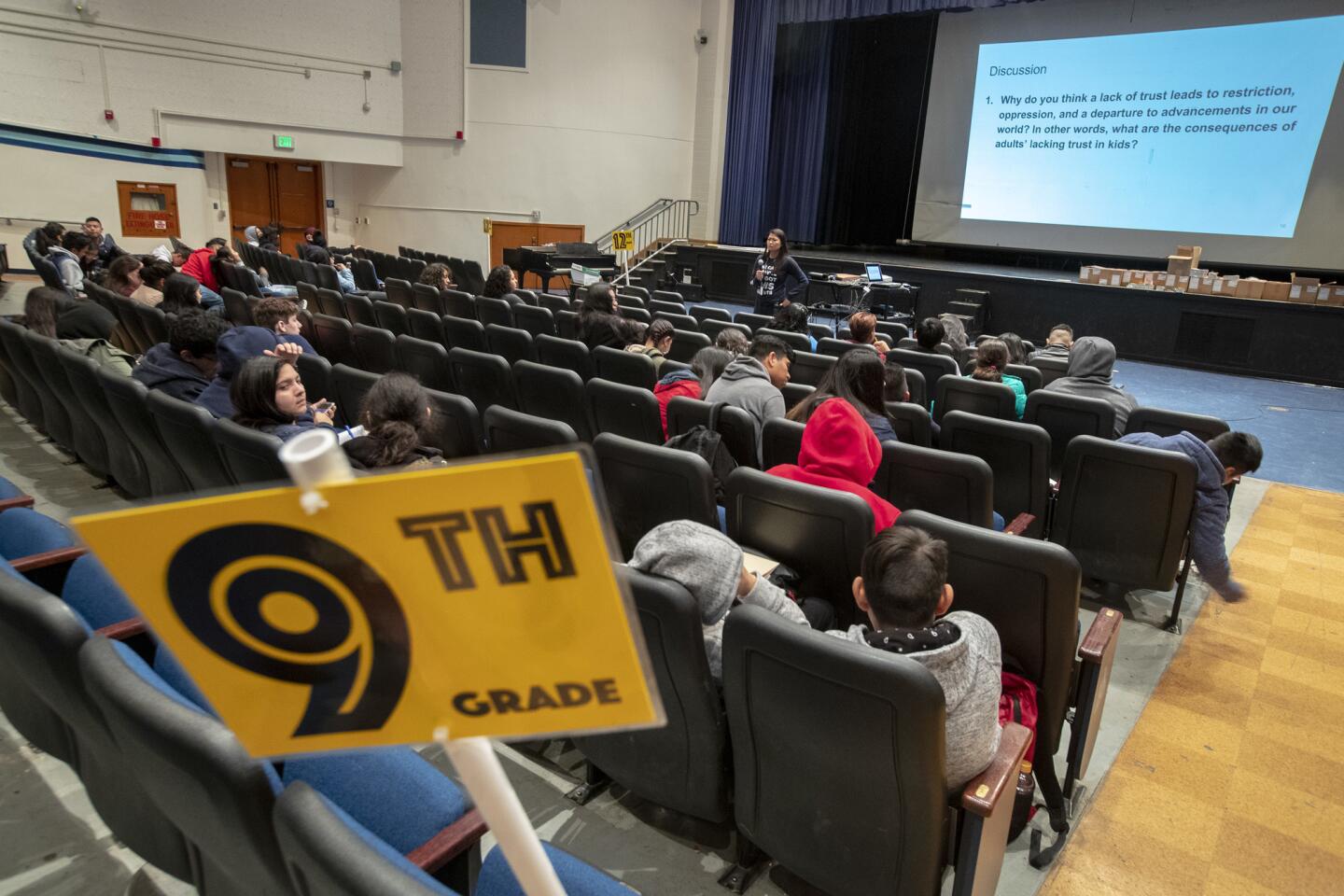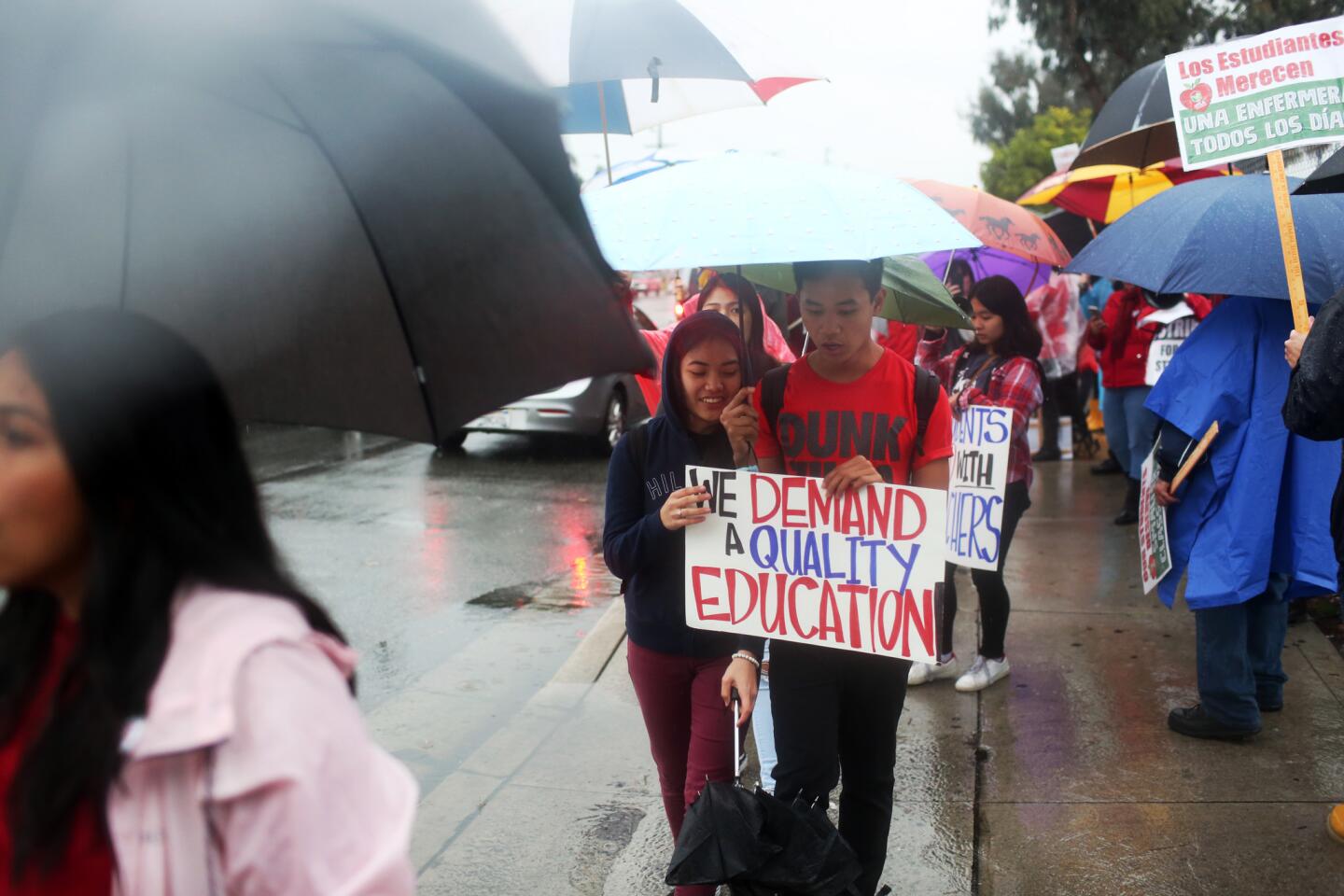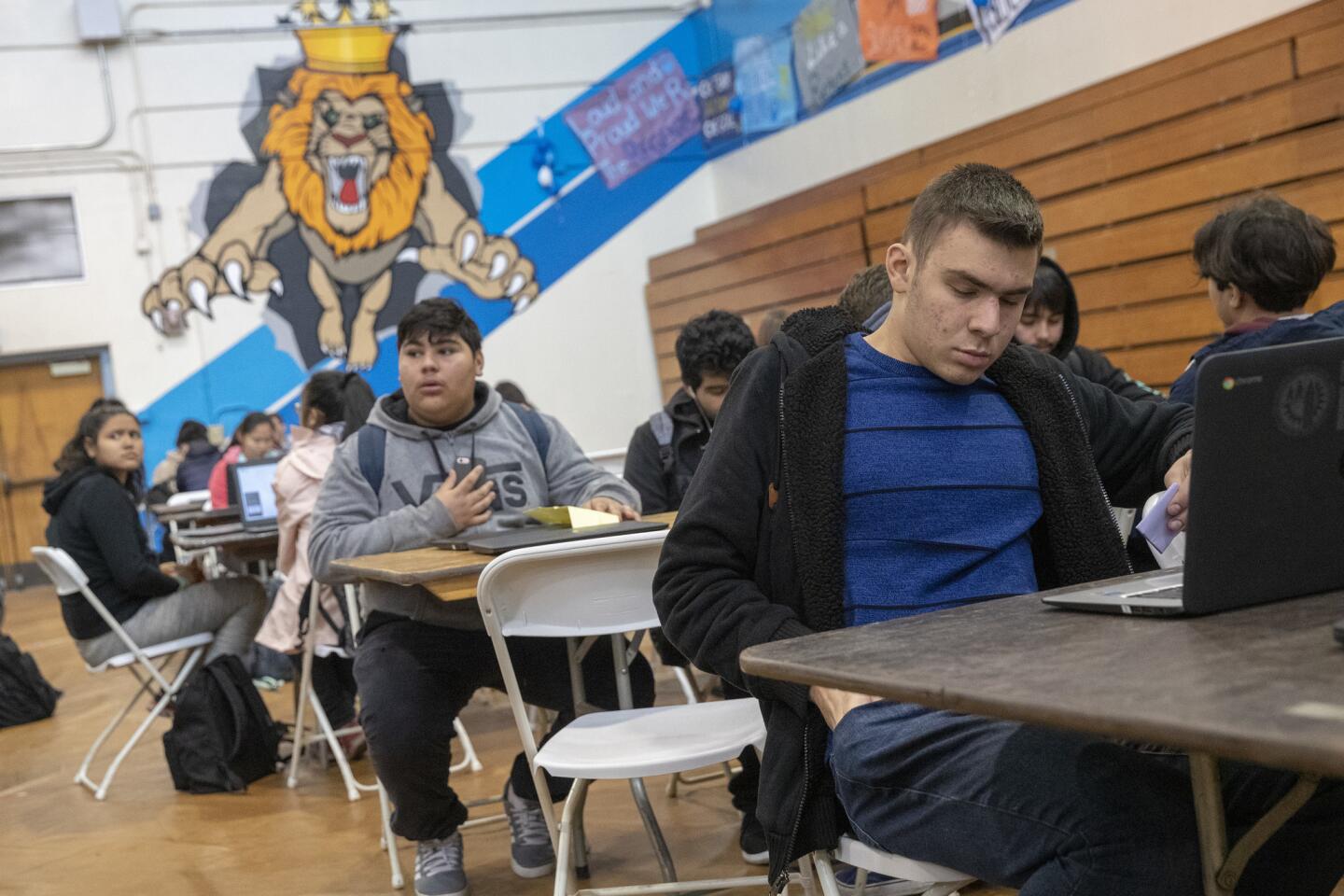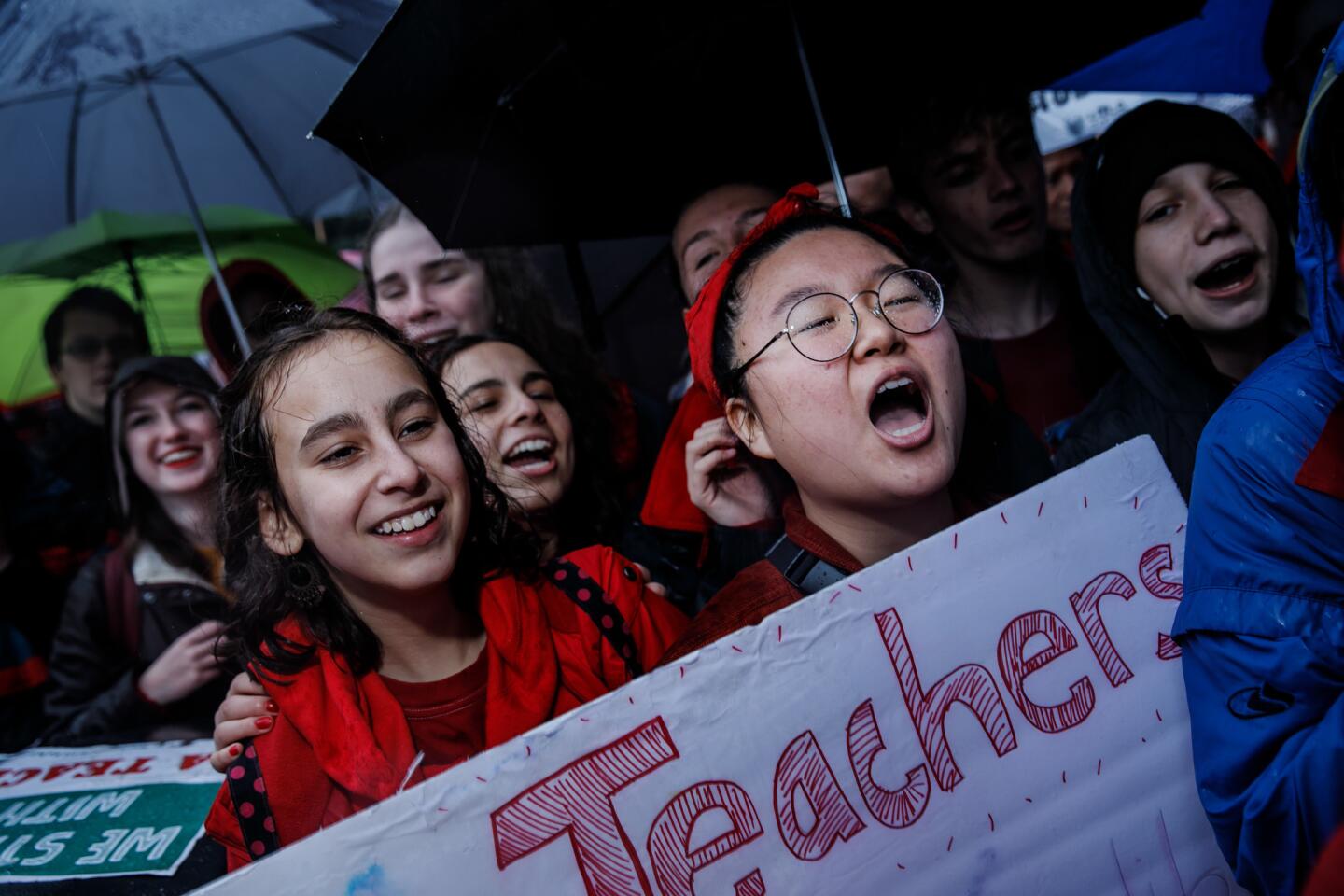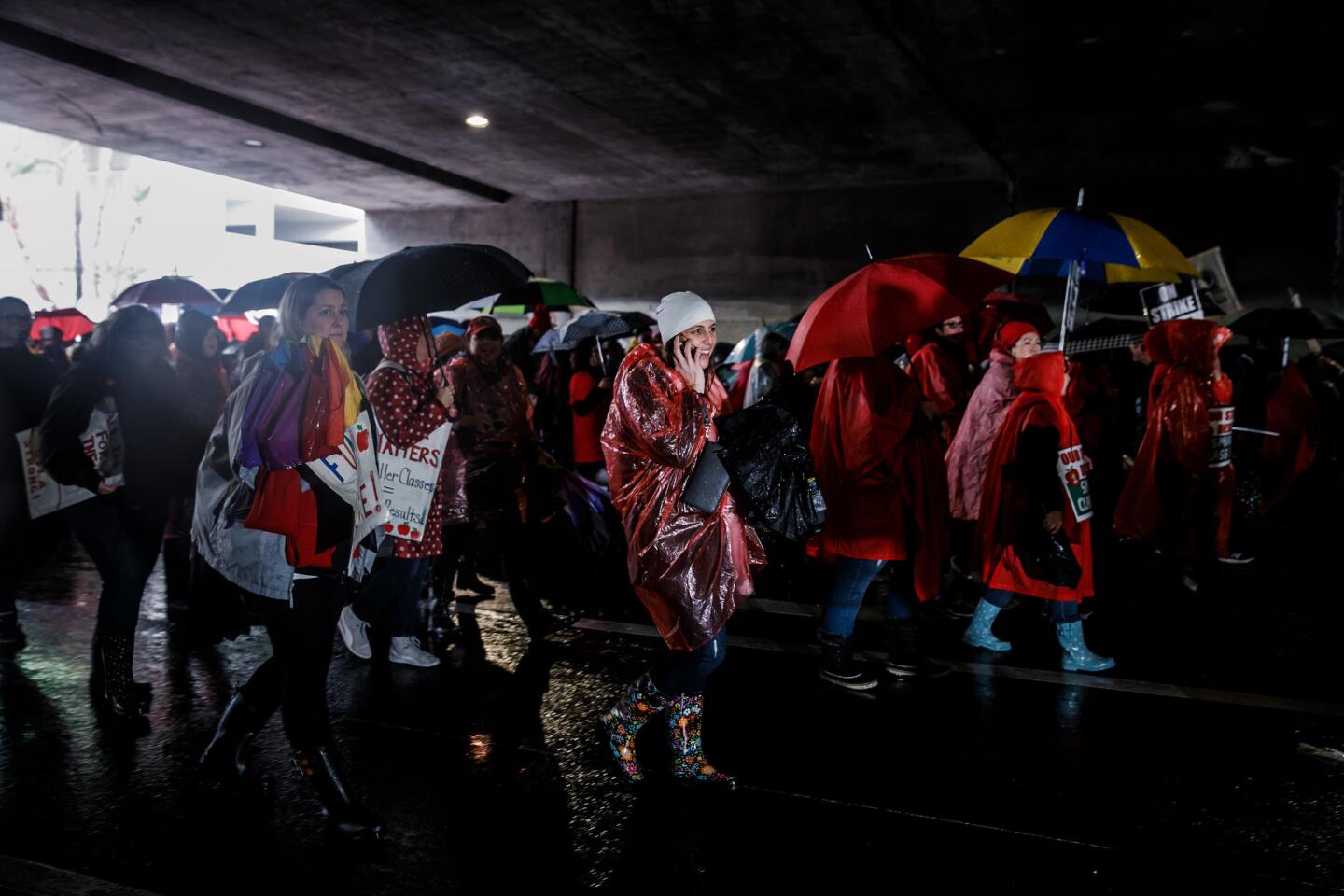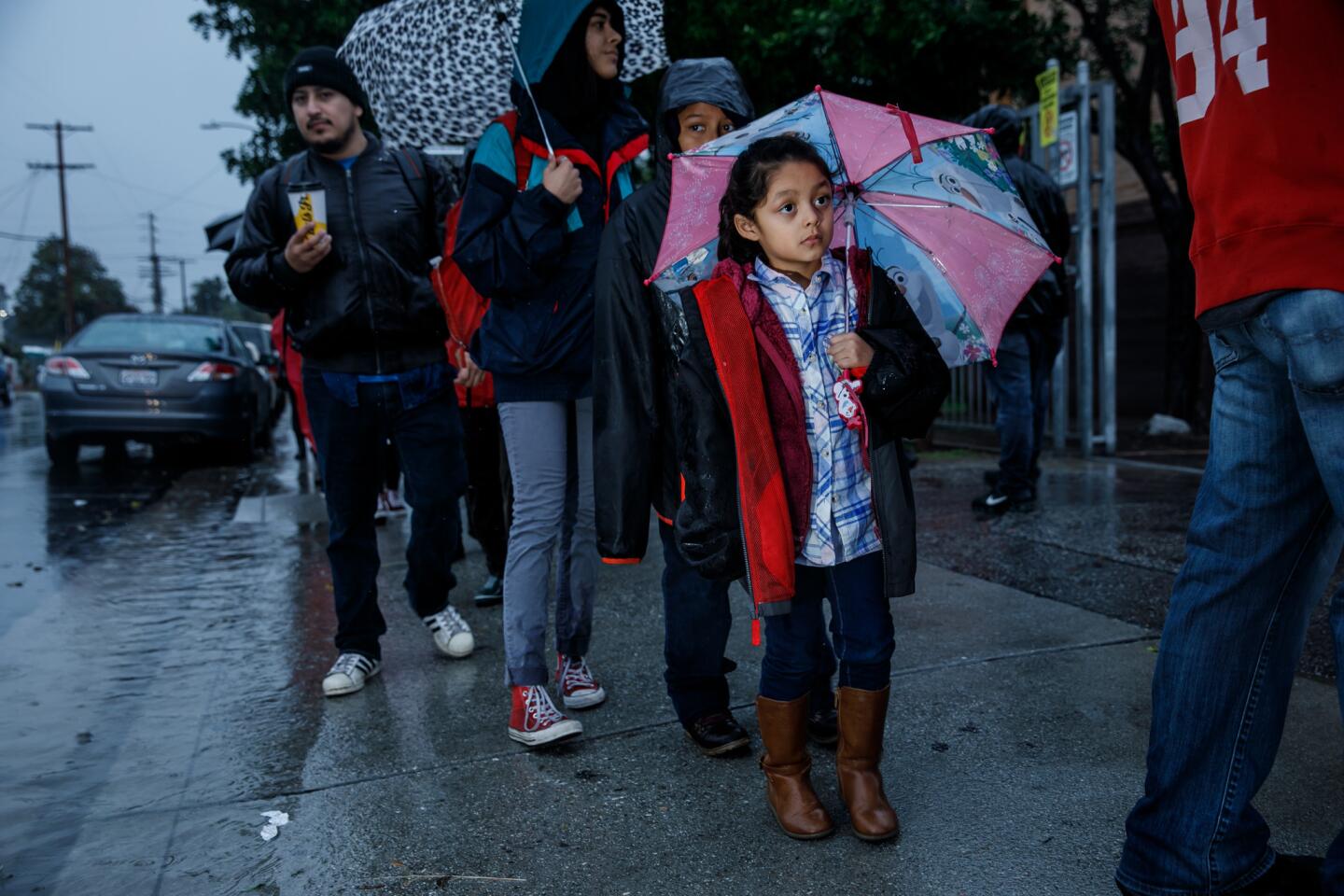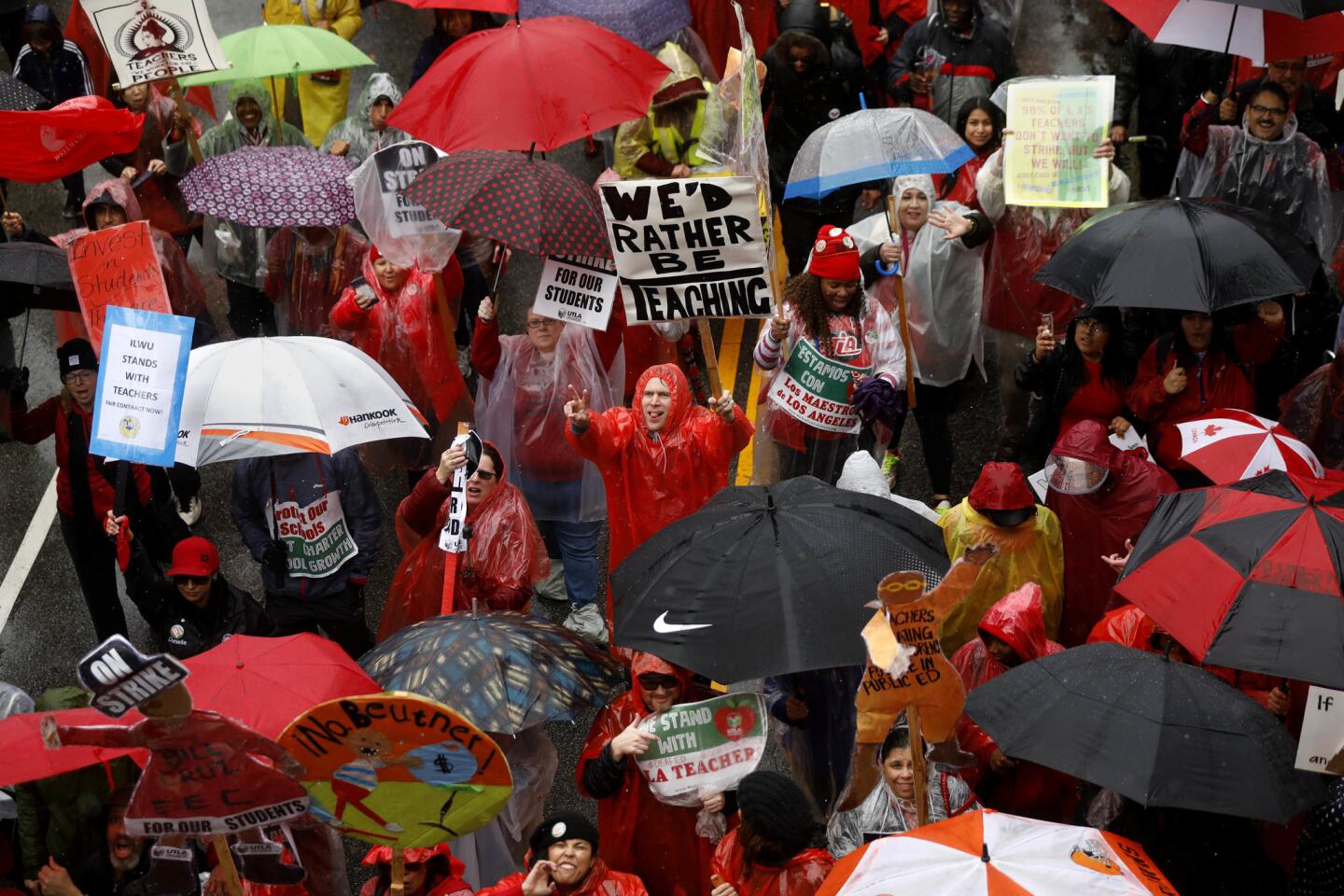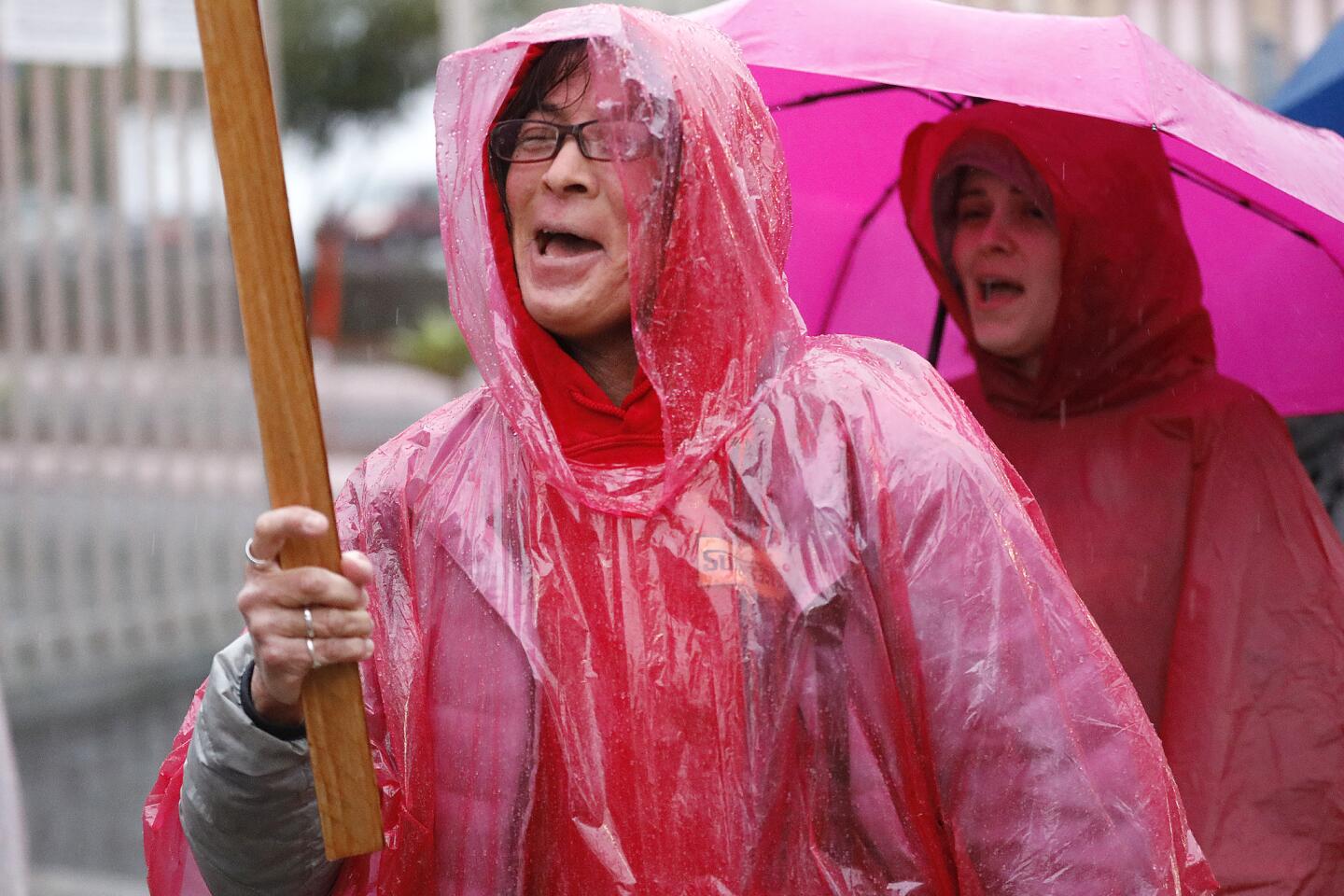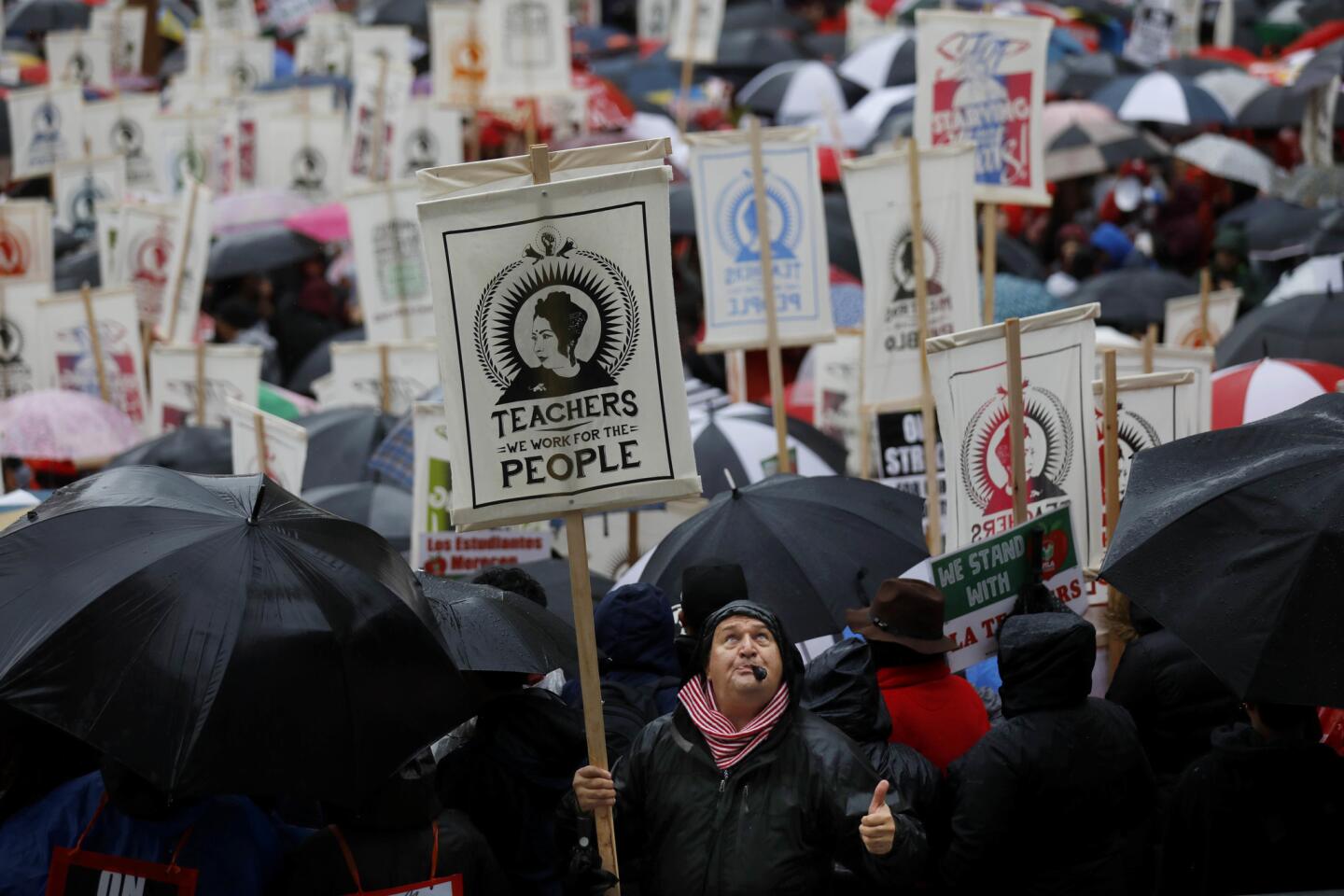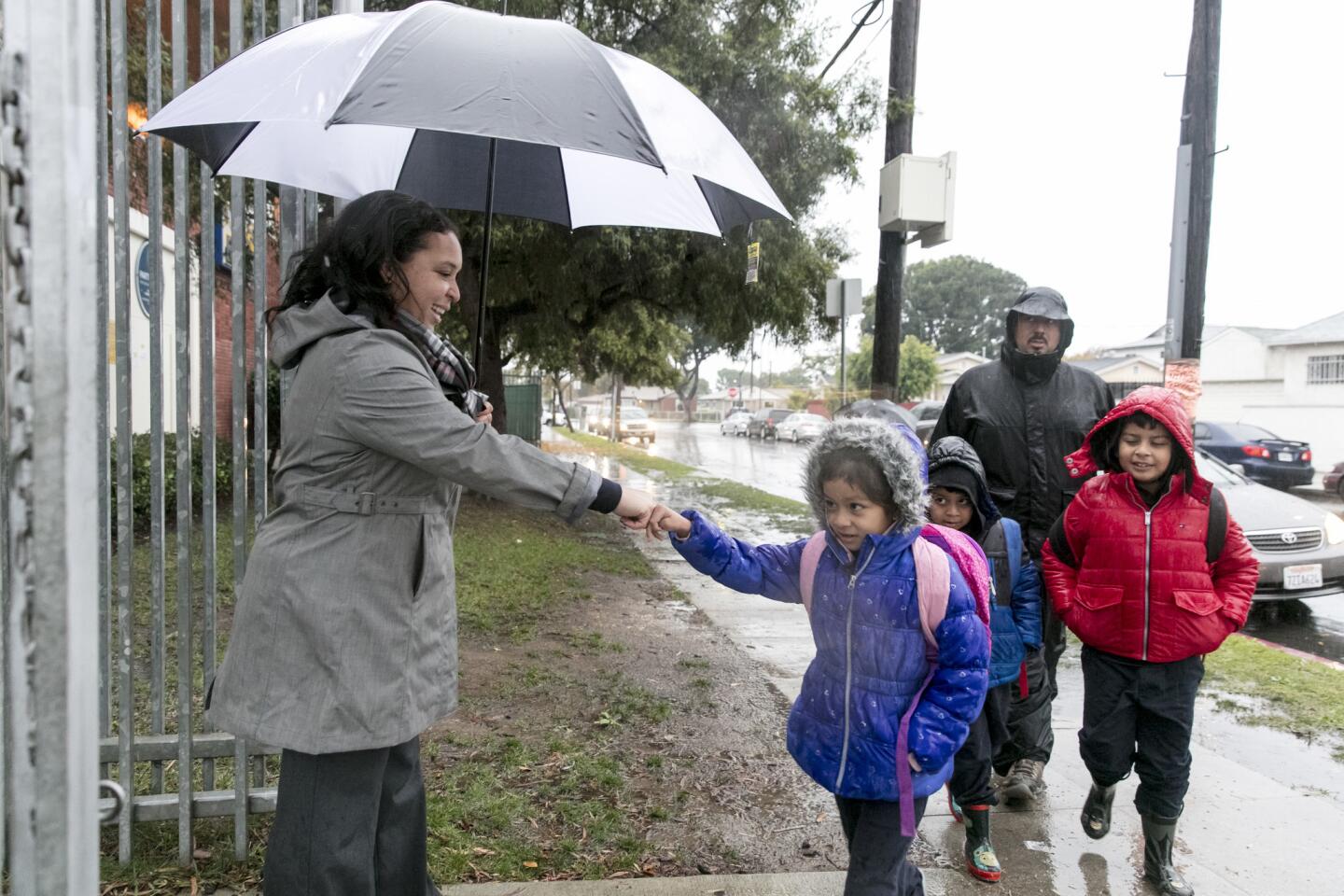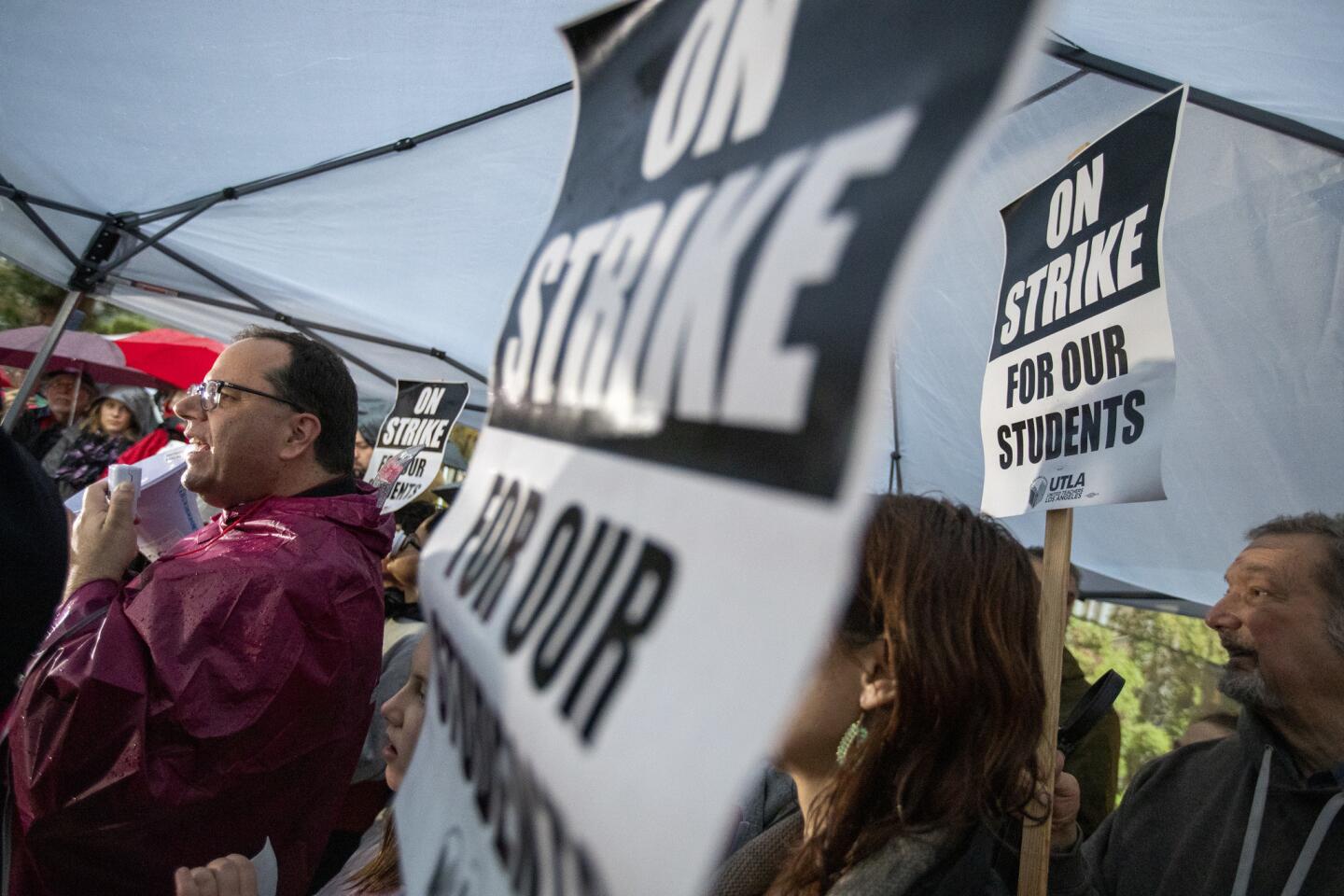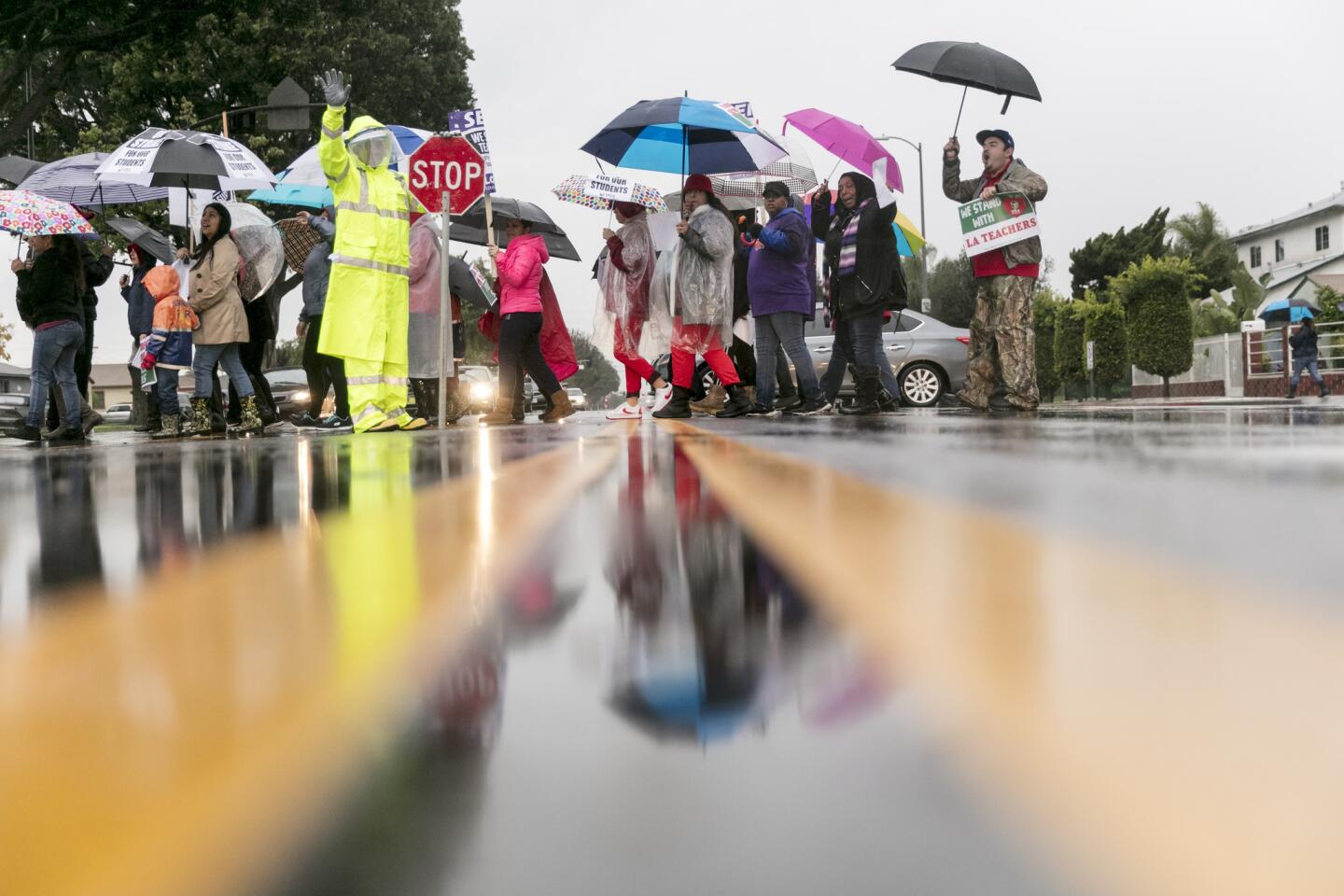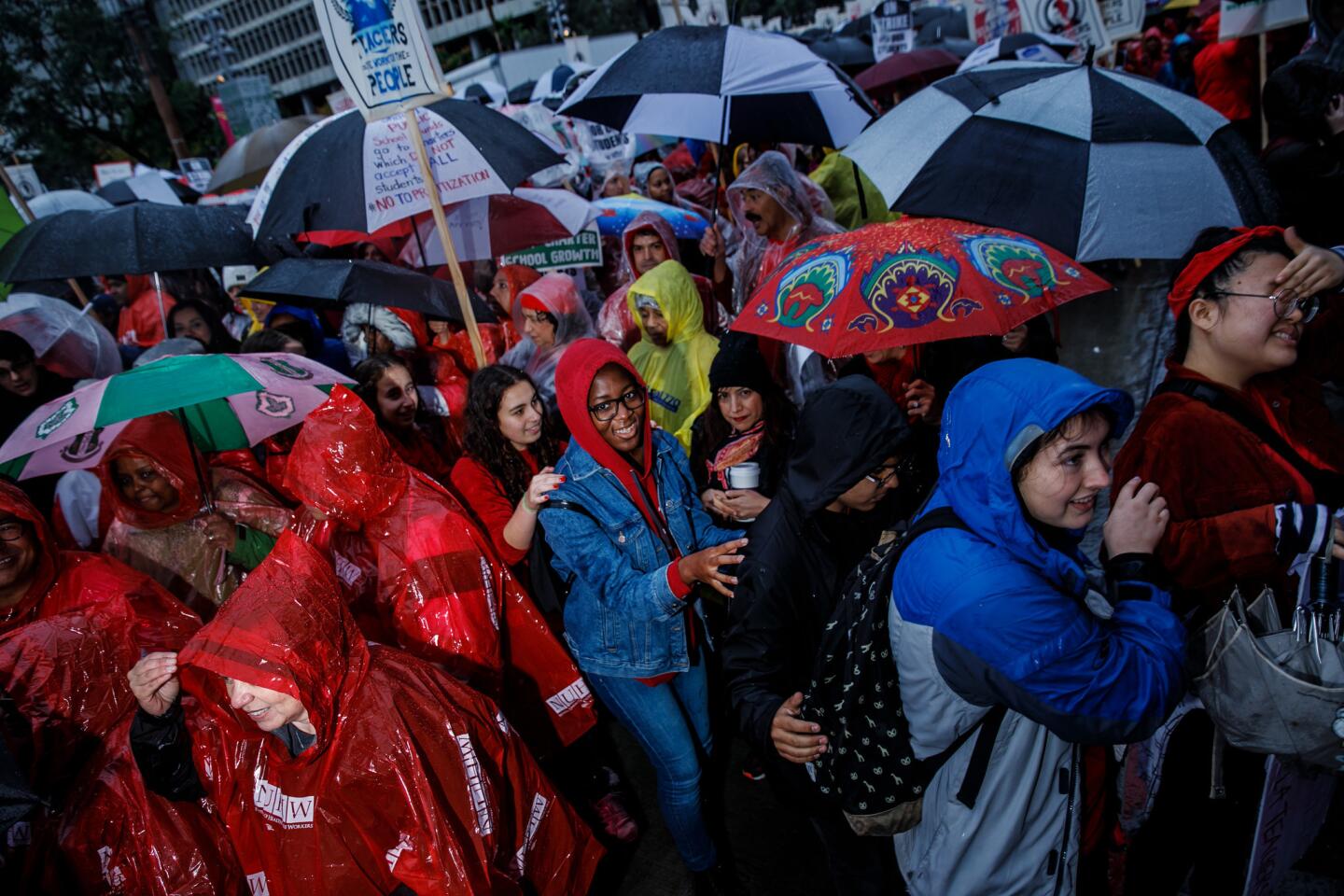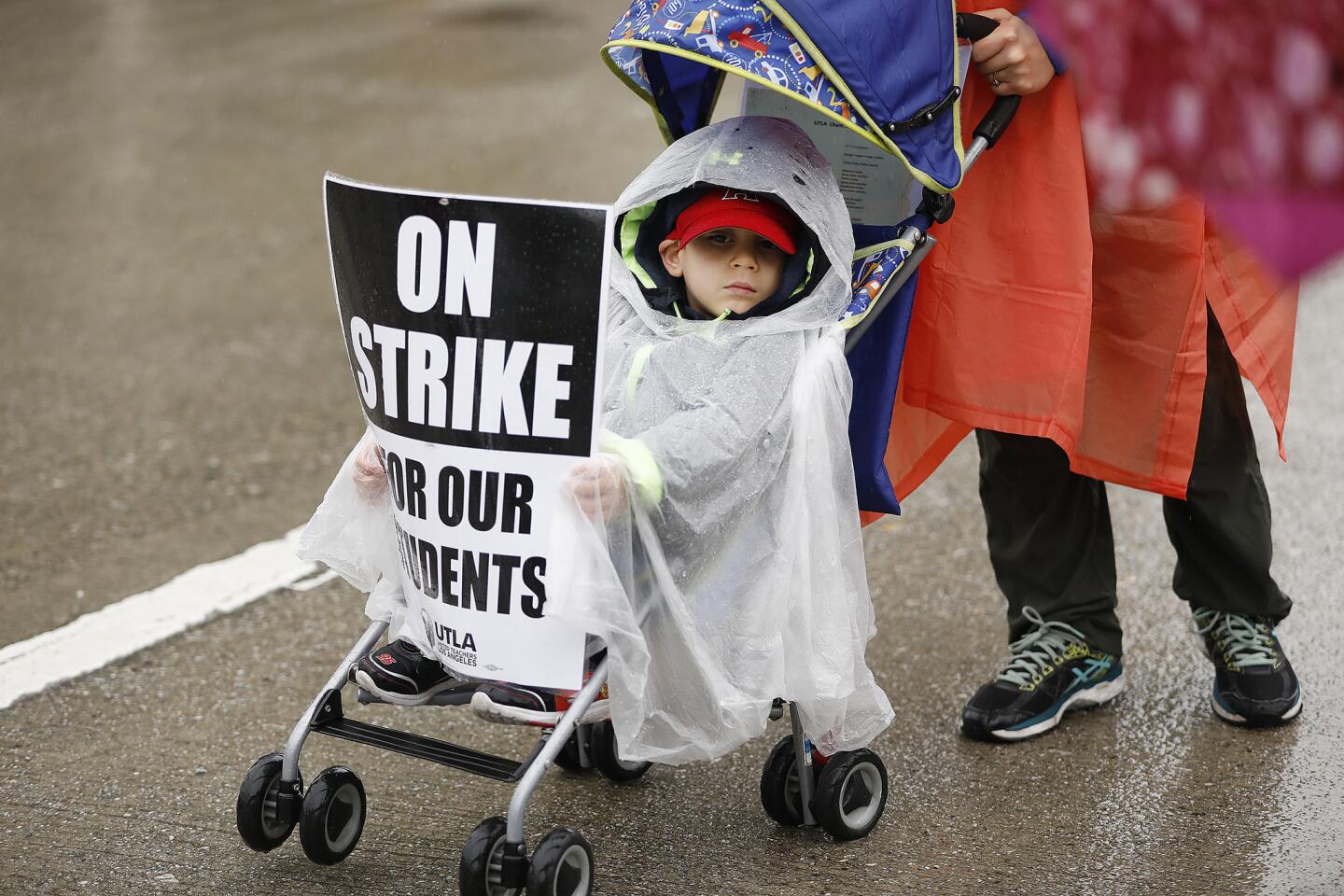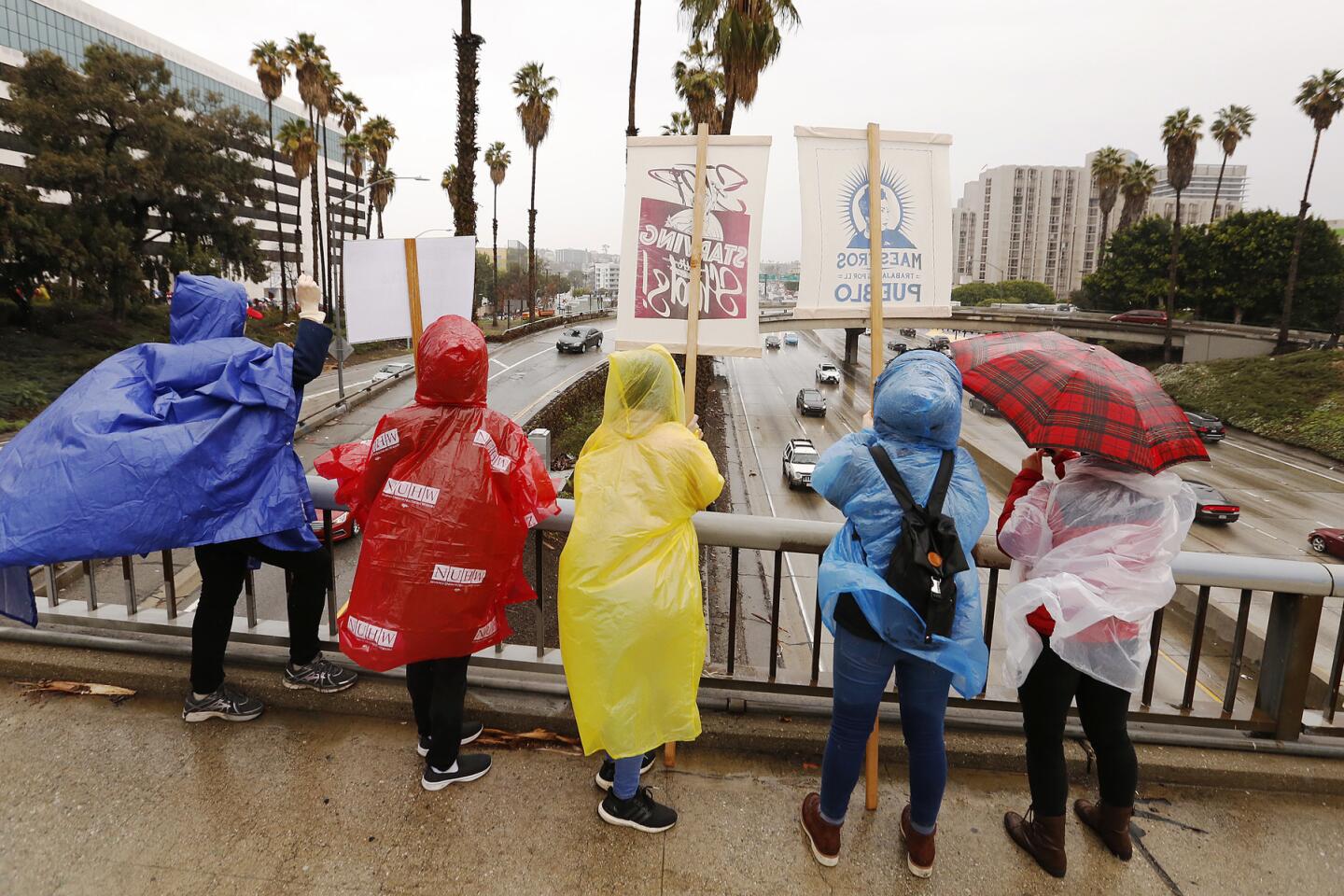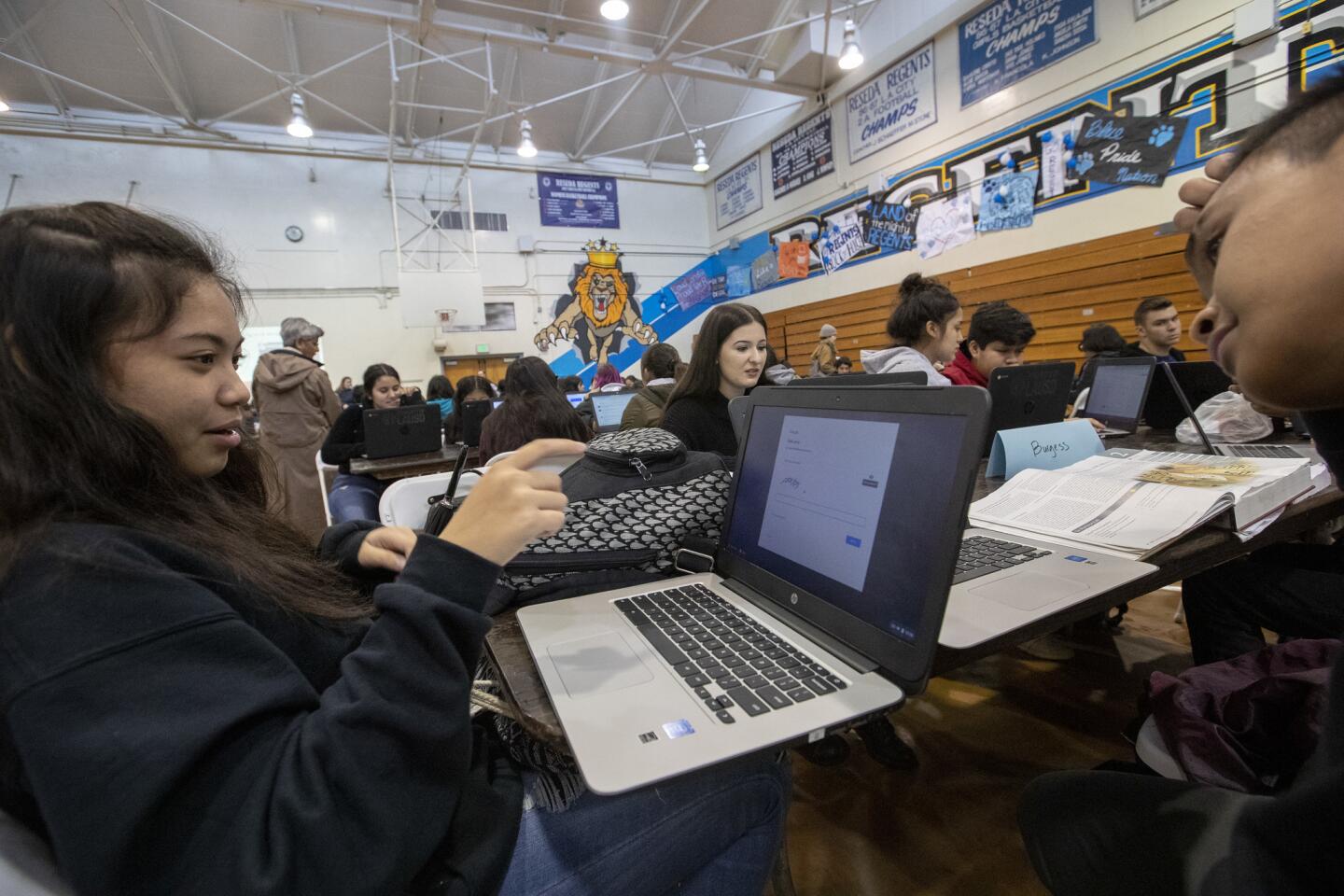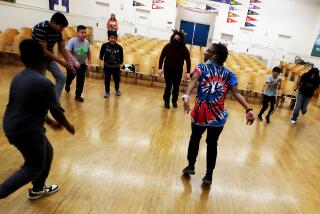What would a deal to end the LAUSD teachers’ strike look like?
The outlines of a deal that could resolve the three-day-old Los Angeles teachers’ strike are emerging, but sticking points and animosity could stymie a quick resolution.
Whenever it happens, an agreement is likely to depend on intervention by L.A. Mayor Eric Garcetti, Gov. Gavin Newsom and other outside participants. A deal also could hinge on commitments of outside resources and statewide changes to education policy.
One possible version of a deal would include everything the district already has offered to reduce class sizes and provide schools with additional nurses, librarians and counselors — perhaps with a little more. The union would have to further narrow its wide array of demands. It already has yielded some ground — dropping its call, for instance, to give teachers a say in limiting the number of standardized tests their students take.
On salary, L.A. Unified is offering a 6% raise spread out over the first two years of a three-year deal. The union wants 6.5% all at once, retroactive to a year earlier. Those differences seem bridgeable, but other district employees already have settled for 6% raises. Officials don’t want to trigger a “me too” clause, which applies to other employees if teachers win a larger raise.
A pact could include expanding green space and recreational opportunities on campuses. And there could be a pilot program to create what are known as community schools — which bring together social services and other support to help the broader needs of children and families. Such campuses would have full-time nurses, mental health services, perhaps health clinics. They would offer a rich curriculum that includes, for example, music, art and dance, and activities after school and on weekends. Parents and teachers would take part in key decisions about the budget, hiring and programs.
Versions of this school model are being tried out in Austin, Texas, and Cincinnati.
FULL COVERAGE: L.A. teachers’ strike »
The effort could be paid for by state funding that is earmarked for students who come from low-income families, are learning English or are in the foster-care system. To tap into that money, this pilot project would need to serve large numbers of these students.
A deal that includes these elements would give teachers a win on the improvements beyond salaries that they’ve been fighting for — and would also underline that solutions to the district’s long-standing problems require a community-wide effort. Both the union and L.A. schools Supt. Austin Beutner have spoken for months in strikingly similar terms on that front.
Thorny issues
Beutner had tried to narrow talks to a more routine contract negotiation over salaries.
But from the beginning, United Teachers Los Angeles wanted a more sweeping discussion, pushing to give teachers more voice and authority. The union also has called for a significant reduction in class sizes as well as schools that are “fully staffed” with librarians, nurses and counselors, who belong to the union too. UTLA proposals touch on early education, bilingual education, adult school and the teaching of children with disabilities.
In an unsuccessful last-ditch effort to avoid a strike, the district engaged on more issues and the union somewhat narrowed its demands.
A key remaining disagreement involves the district’s right to increase class sizes during periods of economic hardship. The union’s view is that L.A. Unified has used this provision to make class-size restrictions meaningless.
But even if this provision were eliminated, L.A. Unified could be forced to lay off teachers — and raise class sizes — if budget cuts became necessary.
The union quickly rejected the district’s offers last week because the positions for new staffers that officials agreed to hire — such as full-time nurses for every elementary school — were guaranteed for only one year.
“We need nurses every year, not just for one year,” UTLA President Alex Caputo-Pearl said.
But even if these positions were designated as permanent, nothing would prevent future layoffs.
Current school board member Nick Melvoin, a Beutner supporter, and former board member David Tokofsky, who is closer to the unions, have independently suggested a middle path forward: linking long-term funding of the new positions to a campaign for a local parcel tax in 2020.
“A joint project like that, with the union, could help usher in a new era of partnership,” Melvoin said.
Caputo-Pearl has said so far that he would not support a deal with contingencies of any sort.
A push from outside
Newsom’s role involves both money and policy. His budget proposal would bring new resources to L.A. Unified. Based on such anticipated revenue, the district in its latest offer added $15 million worth of new positions — to slightly shrink middle-school class sizes.
The union calculates that Newsom’s budget plan would bring in $140 million.
The governor already has pledged to push legislation to establish more oversight of charter schools, which can be privately operated and compete with traditional public schools for students and resources. Most charters are nonunion. Caputo-Pearl wants a moratorium on new charter schools.
For its part, the county on Tuesday approved a plan to find $10 million that could be spent to provide nurses to elementary schools every day. The district currently pays for one day a week. The bigger prize could be accessing millions in mental health funding from a past statewide tax measure. That money is largely under county control, Garcetti said.
The city can bring to the table job-training funds — which can be deployed to campuses — and staffing to keep schools open on weekends as recreation centers and park spaces.
In recent days, Garcetti — who has no authority over the school system — has stepped in as a primary mediator.
Mutual distrust
One topic of quiet civic debate is whether it helps or hurts to bring Beutner and Caputo-Pearl face to face. Caputo-Pearl has made Beutner — a wealthy businessman with no background in education — a target of intensely personal and sometimes demonstrably false attacks. At times, the onslaught has gotten to Beutner, who can get prickly, according to people who’ve worked with him. On Tuesday, Beutner abruptly walked out of a news conference after losing his cool over aggressive questions from reporters.
A respected local philanthropist, Beutner has not shown a deft touch in the give and take of negotiation, announcing proposals to the media before presenting them to the union. Such actions heightened tension.
Union leaders have never trusted Beutner because of how he came to the job. He was narrowly hired in May by a school board majority elected with substantial financial support from charter-school advocates. A key vote was cast by Ref Rodriguez, who was under criminal indictment but held off his resignation just long enough to help get Beutner in.
The distrust is mutual. Beutner believes the union was determined to strike from the moment he took the job and probably long beforehand.
Already mistrustful of Beutner, the union is particularly anxious about his confidential reorganization plan for the nation’s second-largest school system.
Garcetti said this strategic plan should become a vehicle for collaboration. Beutner should back up, the mayor said, and bring the union into the planning process. The union then should participate in good faith, not just to tear Beutner down, Garcetti said.
The union’s harsh rhetoric about Beutner has made this path difficult, with many teachers now demanding his departure.
Beutner said in a Wednesday interview that he sometimes feels like a marionette in a drama between the union and the state, which controls the purse strings for education.
As he spoke, his cellphone rang. It was Newsom. Beutner stepped out. When he returned from the conversation, he said there was no news that he was able to disclose.
Times staff writer Doug Smith contributed to this report.
Twitter: @howardblume
More to Read
Sign up for Essential California
The most important California stories and recommendations in your inbox every morning.
You may occasionally receive promotional content from the Los Angeles Times.
